SALVADOR NAYIB BUKELE THE COOL DICTATOR RE-RENEWED PRESIDENT
|
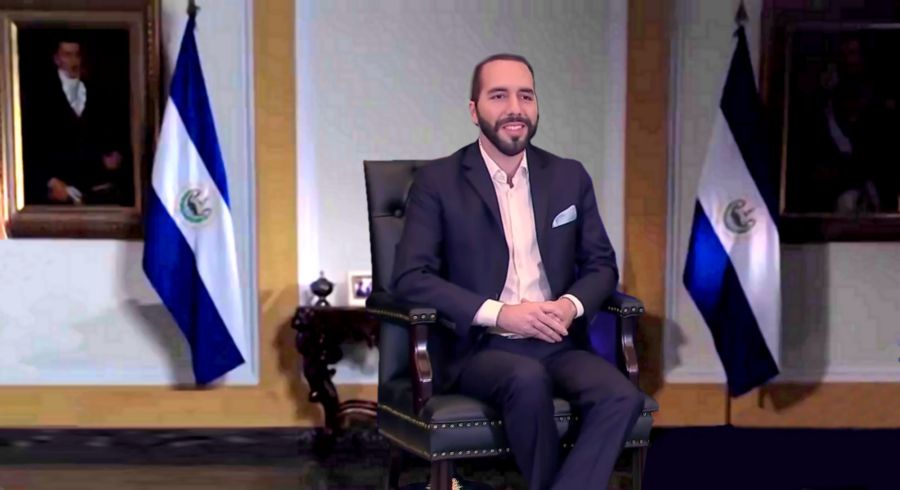
|
Nayib Bukele overwhelmingly won the presidential election in El Salvador on Sunday February 4, 2024, obtaining, according to a CID-Gallup exit poll, an impressive support of 87% of the votes. Nuevas Ideas, his party, is assured of a large majority in Parliament.
The 42-year-old re-elected president expressed his conviction that El Salvador now knows a true democracy. “This is the first time that there is democracy in the country,” said Nayib Bukele. “There is no dictatorship, people vote in democracy. The people say: I am not oppressed, I am happy.”
A relentless security policy
The indisputable popularity of this leader, often described as a "cool dictator", is attributable to his implacable security policy implemented during his first mandate. This merciless struggle, which began two years ago, transformed the capital, once ranked among the most dangerous in the world, into one of the safest in the space of a few months. Nayib Bukele's policy succeeded in reducing the number of homicides in the country by 70%.
75,000 arrests
President Nayib Bukele took a decidedly radical approach to remedying the situation in El Salvador: in March 2022, he established a state of emergency, authorizing the deployment of the army on Salvadoran streets and allowing warrantless arrests . Since then, as many as 75,000 people have been arrested, an unprecedented measure for a population of 6.5 million. In addition, the head of state oversaw the construction of a mega prison that he called a “terrorism containment center,” where no lawyers are allowed to enter and all contact with the outside world is prohibited.
For years, El Salvador had been ravaged by the two main maras (gangs), Salvatrucha and Barrio 18, which sowed terror in every street of the country. Their members, often sporting tattoos up to their faces to recognize each other, controlled a large part of the territory, practicing racketeering, assassination, and establishing a climate of extreme violence. The settling of scores often ended with the dismemberment or decapitation of the adversaries. Getting around the streets of San Salvador sometimes required significant detours if the taxi driver had not paid the required amount to the appropriate people.
Going out into the streets at night was unthinkable without the protection of one of the gangs.
Nayib Bukele compared El Salvador's previous situation to widespread cancer. “El Salvador had cancer with metastases. 85% of the territory was dominated by gangs,” he recalls. "We have done surgery, chemo, radiotherapy and we are going to come out cured, without the cancer in the bands. We have eliminated what was killing us. What now awaits El Salvador is a period of prosperity."
A broken economy
This February 4, Nayib Bukele promised an era of prosperity "because there is no longer any brake on business creation, no more brake on studies, no more brake on work, no more brake on tourism". According to the president, victory over insecurity will allow the country to deploy its economic potential, an urgent necessity given that 70% of jobs are in the informal sector, thus depriving workers of health and retirement benefits. The United Nations Economic Commission for Latin America and the Caribbean (Cepal) estimates that 30% of the Salvadoran population lives in poverty.
The country's economic reality is largely based on remesas, these money transfers made by expatriates, which generate 21% of GDP. In this dollarized economy, Nayib Bukele tried to make bitcoin the official currency in 2021, a decision criticized by the IMF due to the high volatility of this cryptocurrency.
Nayib Bukele's security policy and his successes are arousing keen interest in other Latin American countries plagued by insecurity, both from the new Ecuadorian president, Daniel Noboa, and from his Argentine counterpart, Javier Milei.
|
|
|
|
| | Jaimie Potts for DayNewsWorld |
 |
EMERGENCY MEETING OF ANDEAN COUNTRIES
FACING THE SECURITY CRISIS AND TERROR
IN ECUADOR | 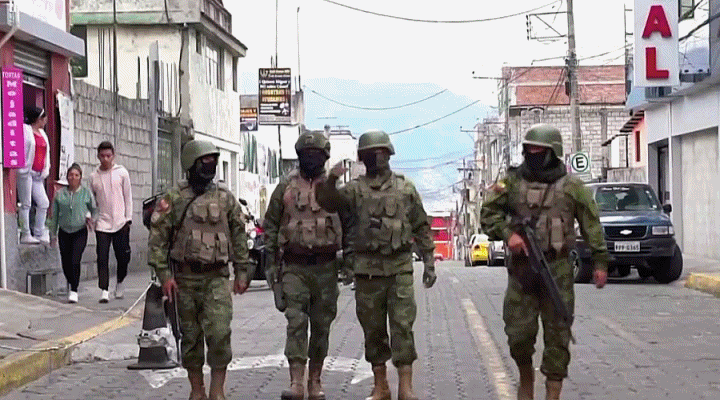
On January 9, a new threshold of terror was crossed in Ecuador with the assault live on public television TC by heavily armed and hooded men. These attackers briefly took journalists and channel employees hostage before the police intervened, freeing the hostages and arresting 13 attackers. Eight days later, anti-mafia prosecutor Cesar Suarez, responsible for investigating this spectacular attack, was assassinated in broad daylight in the center of Guayaquil.
An attempted assault on a hospital: 68 arrests
Faced with this escalation of violence, President Daniel Noboa declared a state of emergency and described the country as having an "internal war" against gangs, calling them "terrorists". More than 20,000 soldiers have been deployed on the ground. On Sunday, new violent incidents broke out in Guayas, in the southwest.
In response to this critical situation, Ecuadorian police made 68 arrests during an attempted assault on a hospital in Yaguachi, Guayas province. These alleged members of a criminal organization planned to take control of the installations to protect one of their own, injured and hospitalized in the morning. Law enforcement also seized guns and drugs, uncovering a clandestine rehabilitation center where members of the organization were hiding.
This intervention takes place in the context of a recent general insurrection by many drug trafficking criminals following the escape of the main gang leader from an Ecuadorian prison. The authorities also closed several clandestine rehabilitation centers, presented as hospitals, but run by gangs without adequate medical equipment. On Sunday, around 10 tons of drugs were seized near the town of Vinces, in the province of Los Rios, by the army.
Seizure of guns and drugs
At the same time, the police made a seizure of firearms and drugs, uncovering a clandestine “re-education center” where suspected members of the organization were hiding, according to information provided by the authorities. These illegal centers have been the subject of recent closures by the authorities, mainly establishments presented as clandestine hospitals run by gangs. According to the authorities, these structures are not equipped with the medical devices necessary to ensure adequate care for patients.
Furthermore, on Sunday, in the province of Los Rios, near the town of Vinces, the army reported the seizure of around 10 tons of drugs. This action strengthens the authorities' efforts to counter drug trafficking and dismantle criminal networks operating in the western region of Ecuador.
“Andean Security Network”
On January 21, an emergency meeting was held in Lima, the capital of Peru, bringing together member countries of the Andean Community of Nations (CAN), to discuss the critical situation in Ecuador. The country is currently undermined by violence linked to drug trafficking, generating unprecedented chaos and security crisis. Neighboring countries members of the Andean Community have expressed concern about this rapid deterioration of the situation in Ecuador.
These nations, namely Colombia, Peru, Bolivia and Ecuador, are uniting to define concerted actions against the proliferation and expansion of gangs involved in drug trafficking and racketeering. The international ramifications of these criminal groups have put border areas on alert, requiring a coordinated response.
The head of the Peruvian government, Alberto Otarola, underlines the imperative for concerted action in the face of this reality, affirming that no country is truly safe if its neighbor is under the senseless assault of these groups. The meeting, convened by the Bolivian rotating presidency, was an opportunity to strengthen regional cooperation to counter this growing threat.
At the end of the summit, the Ministers of Foreign Affairs, Interior and Defense of Colombia, Peru, Bolivia and Ecuador announced the creation of the first "Andean Security Network" against organized crime. This network will provide a 24/7 operational service, enabling the exchange of information between member countries on the activity of criminal groups operating transnationally.
Twenty gangs rule the roost
The expansion of gangs involved in drug trafficking and racketeering in Ecuador has sparked alarm at the borders, prompting Peru and Colombia to strengthen their controls, fearing the arrival of criminals fleeing growing repression in Ecuador.
Despite its reputation as a relatively safe country, Ecuador has experienced an escalation of violence over the past five years, accentuated by an economic slowdown and deterioration following the Covid-19 pandemic. The homicide rate has exploded, going from 6 to 46 per 100,000 inhabitants in 2023.
Historically protected from violence linked to drug trafficking, Ecuador, located between Colombia and Peru, the two main world producers of cocaine, is now an operational and logistics center for shipping this drug to Europe.
Around twenty gangs, sometimes acting from prisons, exercise worrying control over the situation.
In a report published in 2022, the Inter-American Commission on Human Rights (IACHR) highlighted the “significant internal control” exercised by the head of Los Choneros over the prison. She also noted that the latter, as well as Junior Roldan, another leader of the gang killed last year in Colombia, benefited from “differential and preferential treatment from the authorities”.
|
|
|
|
| Jenny Chase for DayNewsWorld |
 |
ECUADOR IN STATE OF EMERGENCY AFTER GANG LEADER FITO’S ESCAPE FROM PRISON
PUBLIC ENEMY N°1… | 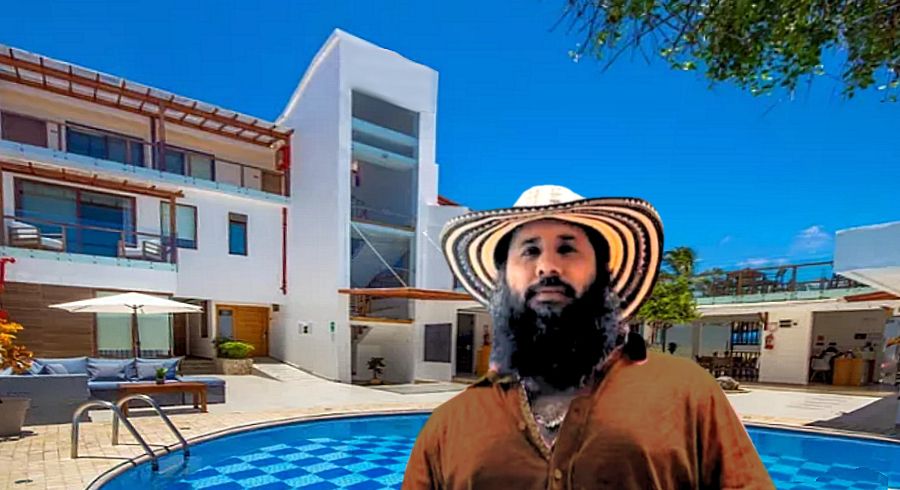
Since Sunday January 7, the country has been shaken by violent revolts in prisons and several localities across the country. A crisis situation which highlights serious dysfunctions in the judicial institution of this Latin American country. The new president's approximate security policy is already weakened.
President Daniel Noboa declared a state of emergency for the entire country following the escape of Adolfo Macias, nicknamed “Fito”.
Who is this leader of the largest criminal gang in the country nicknamed “Fito”?
He is public enemy number one in Ecuador: “Fito”, whose real name is Adolfo Macias, is the leader of the “Choneros”, the largest criminal gang in the country. A group of around 12,000 men who have become the main player in drug trafficking in the country.
Imprisoned since 2011 in a high security prison in Guayaquil (South-West) where he was serving a 34-year sentence for organized crime, drug trafficking and murder, "Fito" has been missing since Sunday January 7. Adolfo Macias, better known as "Fito", escaped from the penitentiary in this port city in southern Ecuador on Sunday, hours before a control operation carried out in the prison.
An escape which forced President Daniel Noboa to declare a state of emergency for the entire country, including in the prison system, this criminal being public enemy No. 1 and leader of the largest criminal gang in the country , responsible for uprisings in prisons.
The 44-year-old criminal had already escaped for 3 months in 2013 from a high security prison.
“Differentiated and preferential treatment from the authorities”, (CIDH)
“Fito” had also taken charge of the section of the Guayaquil penitentiary center in which he was incarcerated. The walls are decorated with paintings to his glory and videos show him partying inside the establishment, with musicians and pyrotechnic devices. He even recorded the video clip for a "narcorroccido", a popular song in honor of drug traffickers: "El corrido del Leon". In this sequence, "Fito" appears wearing a large hat, in the prison courtyard and alongside four other inmates. He strokes a fighting cock and laughs to a tune sung notably by his daughter, known as Queen Michelle.
In a report published in 2022, the Inter-American Commission on Human Rights (IACHR) highlighted the “significant internal control” exercised by the head of Los Choneros over the prison. She also noted that the latter, as well as Junior Roldan, another leader of the gang killed last year in Colombia, benefited from “differential and preferential treatment from the authorities”.
Presidential candidate executed
In recent months, "Fito", who obtained his lawyer's degree in prison, made the headlines in Ecuador after the assassination in early August of one of the main candidates in the presidential election. Fernando Villavicencio, a former journalist and parliamentarian, was shot dead by a Colombian hitman. Shortly before his execution, he said he was threatened with death by the leader of the Choneros
Los Choneros is a drug trafficking gang that appeared in the 1990s in the coastal province of Manabi, strategic for the export of cocaine to the United States and Europe.
Fito, who was only a modest taxi driver in another life, rose to the head of the gang after the successive deaths of the previous leaders. These changes have at the same time led to a fragmentation of the group made up of some 8,000 members, leading to “internal struggles” between its different offshoots, according to the Insight Crime research center. For example, the Tiguerones and the Chone Killers have disassociated themselves, becoming powerful rivals. Insight Crime affirms that, in this situation, Los Choneros have “progressively lost power to the benefit of an alliance led by Los Lobos”. The leader of the latter, Fabricio Colon Pico, also escaped this Tuesday from the prison in which he was incarcerated.
To strengthen themselves, the Choneros therefore established links with powerful criminal organizations in Colombia, such as the Clan del Golfo, and in Mexico, with the Sinaloa Cartel. The Ecuadorian Organized Crime Observatory also credits them with links to networks in the Balkans.
Ecuador in “internal armed conflict”
This Tuesday afternoon, a group of men terrorized journalists by arriving armed and hooded on the set of a television program in Guayaquil, in the southwest of the country.
The scene broadcast live shocked viewers. The journalists and other employees present were taken hostage by the attackers, forced to the ground and threatened with pistols, shotguns and grenades.
A situation which comes on top of the particularly tense context of the country, which was declared in a state of "internal armed conflict" by the president. The situation, becoming unmanageable, pushed the president to declare Ecuador in a state of "conflict internal armed force" and ordered the "neutralization" of the criminal groups involved, according to a decree made public Tuesday.
At least four police officers were also kidnapped in the southwestern coastal town of Machala and the capital Quito. These kidnappings occur in a high climate of tension which forced President Noboa to declare a state of emergency for sixty days throughout the country as well as a curfew from 11 p.m. to 5 a.m.
Daniel Noboa, the 36-year-old Ecuadorian president, elected last fall following a serious political crisis, is facing a very high-risk security situation. Since Sunday January 7 and the flight of the "most dangerous criminal" in the country, hostage-taking and kidnapping of guards have continued in the country's prisons. The government cited “leaks of information” and the probable corruption of two prison officers in this mysterious escape.
The Ecuadorian president also spoke on the evening of Monday January 8 on Instagram, looking serious and concentrated, leather jacket half open, to announce that he was declaring a state of emergency and a curfew in all the countries. The security forces "are hard at work to find this extremely dangerous individual" who allegedly fled on Sunday "a few hours" before a control operation carried out in the Guayaquil prison. The prosecution opened an investigation against two prison officials “who allegedly participated in the escape”.
Images posted on social media, which could not be verified, showed guards being held at knifepoint by hooded men, pleading with the government to "act with caution" and "not send troops into prisons.”
Country ravaged by gang and drug trafficker violence
The name "Fito" has made headlines in the South American press in recent months, following the assassination in early August of one of the main candidates for the presidential election. The victim, a former journalist and parliamentarian, had reported death threats from the leader of the Choneros shortly before his execution.
A country that has become a logistics center for shipping cocaine to the West, Ecuador is ravaged by the violence of gangs and drug traffickers.
|
|
|
|
| Jenny Chase for DayNewsWorld |
 |
BORDER CONFLICT BETWEEN VENEZUELA AND GUYANA AROUND THE ESSEQUIBO WITH VAST OIL RESOURCES |
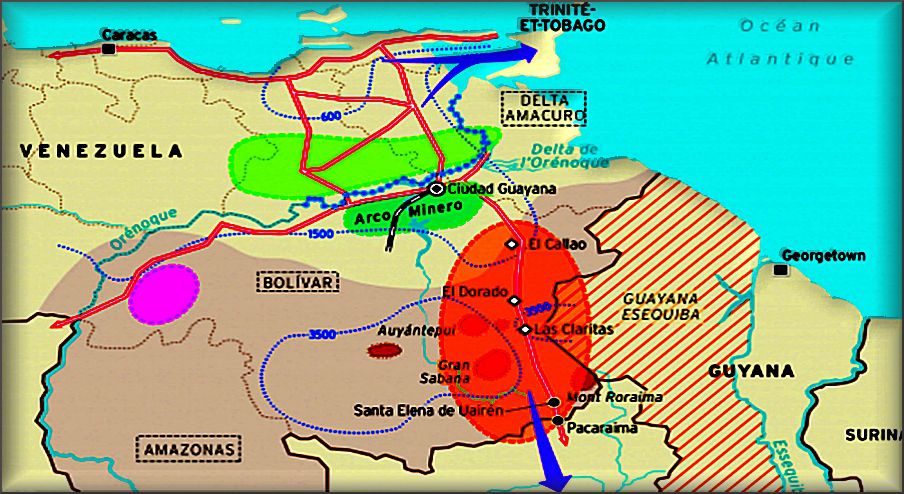
Tensions continue to rise between the two neighboring countries of Venezuela and Guyana, a situation that worries Brazil, and more generally the rest of South America.
Brazilian President Luiz Inacio Lula da Silva also urged his Venezuelan counterpart Nicolas Maduro not to take “unilateral measures” that would aggravate the border conflict between Venezuela and neighboring Guyana, during a telephone call on Saturday.
“Lula stressed the importance of avoiding unilateral measures that could worsen the situation” in the disputed oil-rich Essequibo region, the Brazilian presidency said in a statement.
The President of Brazil, which borders the two countries, repeated the "growing concern" of other South American countries which had in a joint statement Thursday evening invited "the two parties to dialogue and the search for a peaceful solution ". “If there is one thing we do not want, it is a war in South America,” Lula clearly said.
Referendum on annexation of Essequibo to vast oil fields
Some 125,000 people, or a fifth of Guyana's population, live in Essequibo, which covers two-thirds of the country's land area. This territory, which extends over two thirds of Guyana, is the subject of a very old territorial dispute with Venezuela. The dispute was reignited by the strong man of Caracas, Nicolas Maduro, on December 3, with the organization of a referendum on its annexation. The Venezuelan president relied on hand-made results to advance plans to transform Essequibo into a Venezuelan province and to order state oil group PDVSA to grant oil and gas exploitation licenses in a rich region in fossil fuels and minerals of all kinds.
The discovery of vast oil deposits has therefore revived the old conflict over the Essequibo, a territory of 160,000 km² administered by Guyana, but which Venezuela claims by maintaining that the real border is that dating from the Spanish empire in 1777 This territorial dispute is a legacy of colonization, in this case British, but there are legal ways to resolve it, starting with arbitration by the International Court of Justice. This body was seized in 2018 and declared itself competent despite challenges from Caracas.
The dispute between Venezuela and Guyana is being brought before the International Court of Justice (ICJ), the highest court of the UN, which Venezuela refuses to recognize. Guyana maintains that the borders were established in 1899, when the United Kingdom was the territory's colonial power.
The United Nations Security Council finally addressed the dispute on December 8, without making a decision. However, mediation by Brazilian President Luiz Inacio Lula da Silva led to a first result. Nicolas Maduro is expected to meet his Guyana counterpart, Irfaan Ali, on December 14 on a Caribbean island. Despite this, the two countries continue to exchange harsh statements, and the UN Security Council met behind closed doors on Friday evening, without any comments filtering through.
On the eve of a presidential election scheduled for 2024
Russia, an ally of Venezuelan President Nicolas Maduro, who supported Vladimir Putin from the first hours of the Russian invasion in Ukraine, calls for “peaceful solutions acceptable to all”. Washington, an ally of Georgetown, affirms its “unwavering support for the sovereignty of Guyana”. In response, Washington abruptly announced the holding of joint air military maneuvers with Guyana, and Brasilia sent military reinforcements to the border between the three countries. The Venezuelan Defense Minister describes the air military exercises announced by the United States in Guyana as “provocation”.
Some analysts, however, believe that the nationalist rhetoric of the Venezuelan power on the Essequibo, as well as the Sunday referendum calling for 95% of annexation to Venezuela (according to contested official figures), are an attempt at political manipulation by Nicolas Maduro at least one year before the 2024 presidential election, where he is aiming for a 3rd term.
This tension is probably maintained by Venezuela for internal political purposes. On the eve of a presidential election scheduled for 2024, in which he intends to run again, the leader of Caracas has every interest in exploiting the nationalist rope to mask the slump in which his country is plunged and to weaken his opposition.
Arrest warrants have already been issued by a ministry of justice against opponents, accused of having tried to sabotage the referendum of December 3, in particular relatives of Maria Corina Machado, who won the primaries of the Venezuelan opposition in October and should therefore face the outgoing president. |
|
|
|
| Garett Skyport for DayNewsWorld |
 |
ARGENTINA ELECTS A LIBERTARIAN PRESIDENT
TO SHOCK PROPOSALS | 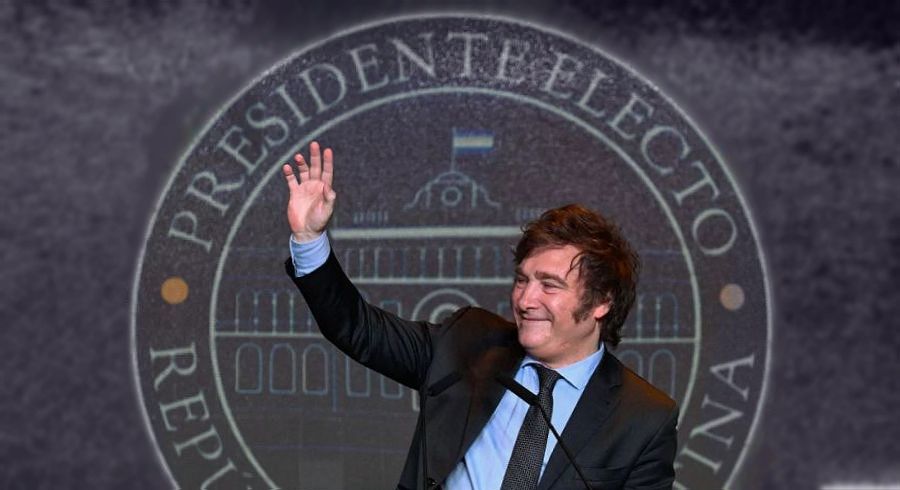
Jair Bolsonaro wanted to "change the destiny of Brazil", Javier Milei promises to tackle Argentina's problems "with a chainsaw". The libertarian economist, admirer of Donald Trump, won the presidential election on Sunday.
If he obtains the necessary support in Parliament, he could notably implement a radical economic policy.
He hailed “a historic night for Argentina”.
The ultraliberal Argentine economist Javier Milei, anti-system polemicist and admirer of Donald Trump, was elected president of Argentina on Sunday November 19, 2023.
He won the Argentine presidential election this Monday, with 55.6% of the votes against 44.3% for his opponent, the centrist Sergio Massa.
Repeated political and financial scandals have gradually eroded the confidence of the Argentine people in their elected officials.
In December 2022, former president Cristina Kirchner was sentenced to six years in prison for “fraudulent administration” to the detriment of the State. By distancing himself from politicians, Javier Milei managed to win the hearts of Argentines, sickened by years of corruption and strangled by inflation which amounts to 143% over one year.
The new Argentine leader, who readily defines himself as an "anarcho-capitalist", notably proposes a dollarization of the country's economy and a budgetary "shock treatment". He also rejects human responsibility for global warming and opposes the right to abortion.
Adoption of the dollar to replace the peso
The politician presenting himself as "anti-system" promised shock therapy to Latin America's third largest economy involving significant budget cuts, going so far as to suggest the total elimination of several ministries, including that of Health and Transportation.
An economist by training and elected deputy in 2021, he defined as a key measure of his mandate the dollarization of the Argentine economy, in the face of galloping inflation exceeding 142% over one year, according to the country's Central Bank. He plans to replace the peso, "described as excrement", with the dollar by 2025.
More than 200 economists consider this a “mirage”, anticipating increased fragility in the face of “external shocks” and periods of recession with a high unemployment rate.
At the same time, the new president wants to “energize” the Argentine Central Bank.
A “chainsaw” for public spending
During his presidential campaign, Javier Milei repeatedly brandished a chainsaw, a symbol of the drastic budget cuts to come in the event of victory. The new president intends to reduce public spending by 15% of GDP and put an end to "this aberration called social justice, synonymous with budget deficit".
It plans to reduce public spending by 15% of GDP, privatize the 34 public companies, remove subsidies on gas and electricity, and establish a private tender system for public works.
He also plans to reduce the number of ministries, end the retirements of former presidents, judges, and diplomats, while reducing funds paid to the provinces.
Although Javier Milei tried to allay concerns at the end of the campaign, ensuring that he would not privatize health and education, his anti-feminist positions raise concerns. He proposes to abolish the Ministry of Women, Gender and Diversity declaring in May 2022:
“I will not apologize for having a penis” and denying wage inequalities despite a gap of 27.7% in Argentina.
He opposes the right to abortion, legalized until the 14th week of pregnancy in December 2020, considering abortion to be murder. Javier Milei wants to organize a referendum on the subject: “Obviously, the woman has the rights to her body, but the child is not her body,” he believes.
The new president supports the primacy of individual freedoms on subjects such as the legalization of drugs, the deregulation of the sale of arms, and proposes a "market solution" for organ donation.
However, he defends the primacy of individual freedoms over other subjects, such as the legalization of drugs "as long as it does not involve state aid". The new Argentine president also says he is in favor of deregulating the sale of arms, but also of a "market solution" for organ donation.
A climate skeptic program
On the environmental front, Javier Milei adopts a climate skeptic position, denying global warming due to human activities. He refuses adherence to the UN 2030 agenda and goes so far as to defend the idea of privatizing rivers in Argentina.
“There is, in the history of the Earth, a temperature cycle,” he also declared at the beginning of October during the presidential campaign. The new Argentine president went so far as to defend the idea of privatizing rivers in Argentina
“If water becomes scarce, it stops being worthless and then a trade begins, and you will see how the pollution [from businesses] ends,” he declared in particular during the campaign.
A new president with “tied hands”
But between the initial exercise of charm and the materialization of campaign commitments, the road ahead proves to be particularly demanding. Populist leaders tend to present political proposals often focused on breaking with reality. This approach proves very effective when gaining power, but it takes on a whole new dimension once it is acquired, warns and author of Geopolitics of Latin America.
Although Javier Milei forged his image on the fringes of the corridors of Argentine power, it was nevertheless the support of the right that propelled him to the presidency.
According to the Latin America specialist, Christophe Ventura, research director at Iris, "the real architect of his victory is the right-wing bloc which supported him in the second round to prevent the Peronists, embodied by the candidacy of Sergio Massa, to stay in power."
However, alliances will be essential for him to carry out his program. In Parliament, his party is only the third force, behind the center-left and center-right blocs. For the moment, Javier Milei only has 38 deputies out of the 257 in the Argentine Parliament.
However, to legislate in Argentina, a quorum is required, that is to say half of the deputies plus one. He is very far from it.
The new president will "have his hands tied", because it is "unlikely that he will succeed in forming a majority" in Parliament. Half of the parliamentarians were renewed in the first round of the presidential election and the second half will be renewed during elections in two years.
Javier Milei therefore finds himself obliged to form alliances and, therefore, probably to put water in the wine of his shock campaign declarations.
If Javier Milei manages to obtain the necessary support, he wants to implement shock measures to put an end, as he says, "to Argentine decadence".
The crucial question therefore remains to know to what extent this alliance of circumstance could last.
The Argentines who "barely manage to survive", have chosen the "chainsaw" to the Peronist continuity which has continued to push them into poverty....
|
|
|
|
| Jaimie Potts for DayNewsWorld |
 |
PRESIDENTIAL IN ARGENTINA
TWO DIAMETRALLY OPPOSED CANDIDATES ARRIVE IN THE FIRST ROUND | 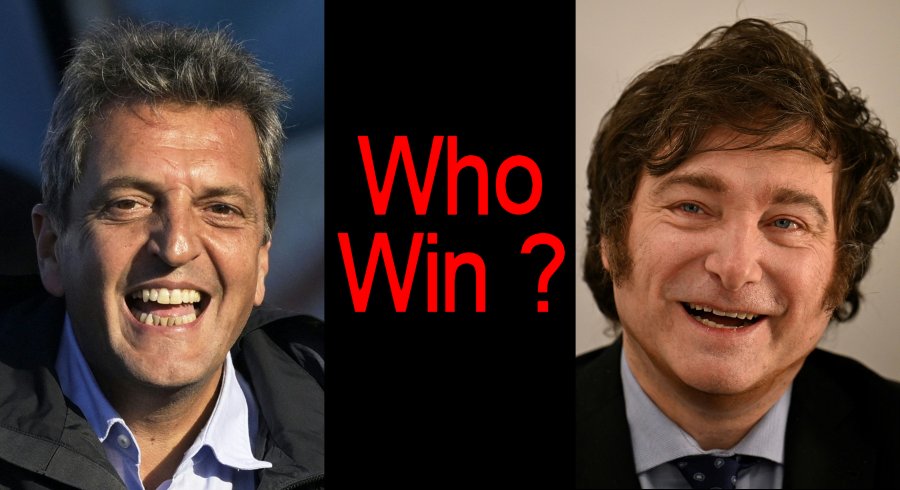
Sunday October 22, 2023, Argentinians went to the polls for the first round of the presidential election. The candidate of the government bloc and current Minister of the Economy, Sergio Massa, came first with 36.6% of the votes, ahead of the libertarian Javier Milei, at 30%. They will both contest the second round on November 19, with a view to an inauguration on December 10.
Javier Milei as an outsider.
In the current presidential campaign, Javier Milei stands out as an outsider. This trained economist became known thanks to his columns on Argentine television. Two years ago, he achieved an electoral breakthrough during the partial legislative elections in Buenos Aires, obtaining 17% of the vote. Nicknamed “El Loco” (“the madman”), Javier Milei is an atypical public figure. He named his dogs after liberal economists and reportedly used a psychic to make policy decisions.
Deeply reform the State.
While Argentines are exhausted by over-indebtedness and rising prices, Javier Milei, 53, highlights his training in economics and proposes shock measures. He advocates significant tax cuts, the flexibilisation of labor laws, privatizations and the abolition of social assistance. Javier Milei has the “paternalistic state” in his sights.
This “chainsaw plan”, as he calls it, must put an end to social justice, which he considers “synonymous with budget deficit”. A radical speech, even as Argentina struggles to get its head above water, with inflation hovering around 140% in 2023. If elected, Javier Milei has promised to “dollarize” the economy Argentina, ensuring that this would break the rise in prices.
Self-proclaimed "anarcho-capitalist", he describes himself as libertarian, with a libertarian touch. He thus says he is opposed to abortion, but envisages a market for the sale of organs.
He quickly gained popularity thanks to his bold ideas and incisive, sometimes insulting language. During his rallies, he urges his voters "Let them all go, so that there is not one left!", he chants during his meetings, where he promises to clear "with blows kick in the ass" the "political caste which parasitizes" Argentina. Self-designating as "anarcho-capitalist", he defines himself as libertarian.
Javier Milei is also a showman. During his rallies, he describes himself as "the lion" who will save Argentina, referring to his tousled hairstyle, and chanting his provocative slogan:
“Long live freedom, damn it!” He promises to restore Argentina to its status as a "world power" and to make the country a "promised land" of emigration, like the beginning of the 20th century. This quest for a “rediscovered greatness” recalls the admiration he has expressed on several occasions for Donald Trump. In the past, Javier Milei was also a footballer and a rock singer, elements that he highlights on social networks to boost his popularity.
In the midst of an inflationary crisis with a price increase of 138% in one year, the "anti-system" candidate who wishes to put an end to "social justice" maintains a solid chance of winning the election.
Economy Minister Sergio Massa, heir to Peronism
On the other hand, his opponent Sergio Massa places the economy at the center of his program, seeking to strengthen public companies. Having previously granted numerous budgetary expenditures to mitigate the impact of inflation, the centrist candidate must now defend his record. He undertakes to increase the trade balance surplus, to repay the debt contracted with the International Monetary Fund, and to restore fiscal order.
Positioning himself above political divisions, Sergio Massa aspires to be the candidate of unity. After the announcement of the results, he promised to form a "government of national unity", thus opening the door to alliances on the left and the right. He appeals to all those who share democratic values.
As for Javier Milei, he reaches out to the center-right coalition which obtained 23.6% of the vote, declaring: "Let's work together to change our country."
The outcome of the election remains uncertain, and the second round is scheduled for November 19.
It remains to be seen how voters who did not vote for the two main candidates will influence the outcome, with Sergio Massa having a reserve of votes on the left, but potentially needing to gain votes from the traditional right side that his appeal appeals to rival.
|
|
|
|
| Jaimie Potts for DayNewsWorld |
 |
ECUADOR THE DADDY GANG LOS CHONEROSRESPONSIBLE FOR THE ASSASSINATION OF THE CANDIDATE TO PRESIDENTIAL FERNANDO VILLAVICENCIO ? | 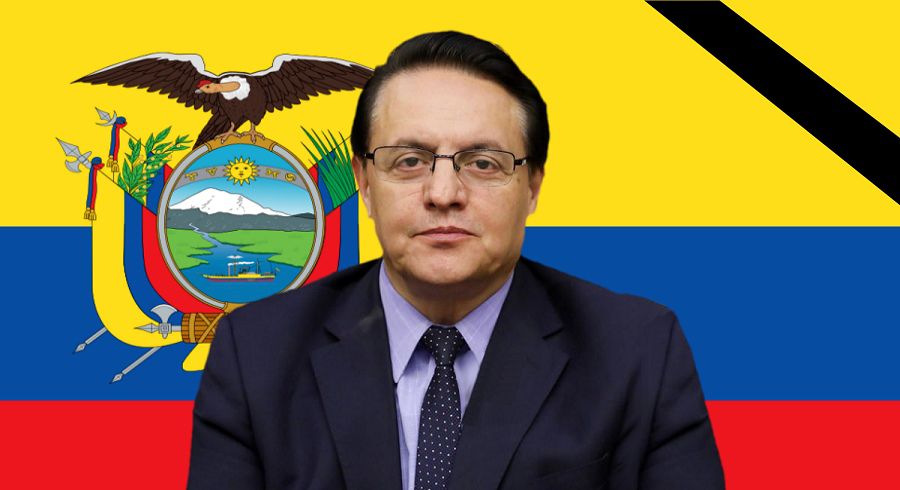
Last week, centrist presidential candidate Fernando Villavicencio, the second favorite in the polls, was shot dead during a political rally.
Six Colombians were arrested and a seventh died in an exchange of fire with the police.
The politician's assassination, which shocked the country, occurred ahead of general elections scheduled for August 20. This former journalist had denounced corruption and received death threats from the Los Choneros trafficking gang.
The investigation into the assassination of the candidate for the Ecuadorian presidential election, killed in the middle of the street on Wednesday in Quito, has only just begun, but the suspicions of the police are indeed focused on Adolfo "Fito" Macias, their leader .
Adolfo "Fito" Macias, their leader.
"Fito", leader of the fearsome "Los Choneros" gang, was transferred to a high security prison on Saturday. An operation carried out by 4,000 heavily armed soldiers and police, three days after the assassination of presidential candidate Fernando Villavicencio.
"Fito", whose real name is Adolfo Macías, is today the only founding member of the "Choneros" still alive. Created in the 90s, the criminal organization is structured around drug trafficking, not hesitating to use violence to reign over the cocaine trafficking routes in the Pacific. In the country, many rival gangs have been fighting each other for years to maintain their influence and their networks of illegal trade.
The man is described as acting "under the radar" by the NGO Insight Crime, a foundation that analyzes the dynamics of armed gangs in Latin America.
"Fito" had since kept a low profile publicly, until a video appearance days before Villavicencio's death. He then announced a truce with rival armed groups, such as "Los Lobos" or "Los Tiguerones", two other gangs who sow terror in Ecuador.
"Extreme criminal violence"
The homicide rate linked to drug trafficking, of 26 per 100,000 inhabitants since the beginning of the year, has almost doubled compared to last year and marks a record. The victims of violence are mayors, judges, prosecutors and dozens of civilians without criminal records. Reminiscent of the methods of Mexican narcos, dismembered corpses began to appear in the streets of the country, bodies hanging from bridges and kidnappings for extortion multiplied, leaving in the best of cases, the victims amputated of a finger or with one ear.
26 gangs linked to drug trafficking.
President Guillermo Lasso, who fought against gangs but failed to stem crime, accused "organized crime" of having ordered the murder of Mr. Villavicencio.
According to Interior Minister Juan Zapata, more than 13 criminal organizations operate in Ecuador, including Los Choneros, the oldest and most powerful, now allied with Mexico's Sinaloa Cartel.
But military intelligence lists up to 26 gangs linked to drug trafficking. Los Lobos, the main rival gang to Los Choneros, is associated with the Mexican cartel Jalisco Nueva Generación.
The war on drugs in Mexico and Colombia has led cartels from these two countries, in addition to Albanian mafias, to settle in Ecuador, where to benefit from the porous borders, the "dollarized" economy, the State corruption and the lack of control over money laundering. For drug trafficking, the Pacific ports, the starting point for cocaine to Europe and the United States, are strategic.
The first round of the election is still scheduled for August 20. The current president, Guillermo Lasso, has declared a state of emergency to guarantee the smooth running of the ballot. |
|
|
|
| Jenny Chase for DayNewsWorld |
 |
TOWARDS AN ESCALATION OF THE CONFLICT
WITH THE DELIVERY OF NUCLEAR WEAPONS
TACTICS BY RUSSIA TO BELARUS ? |
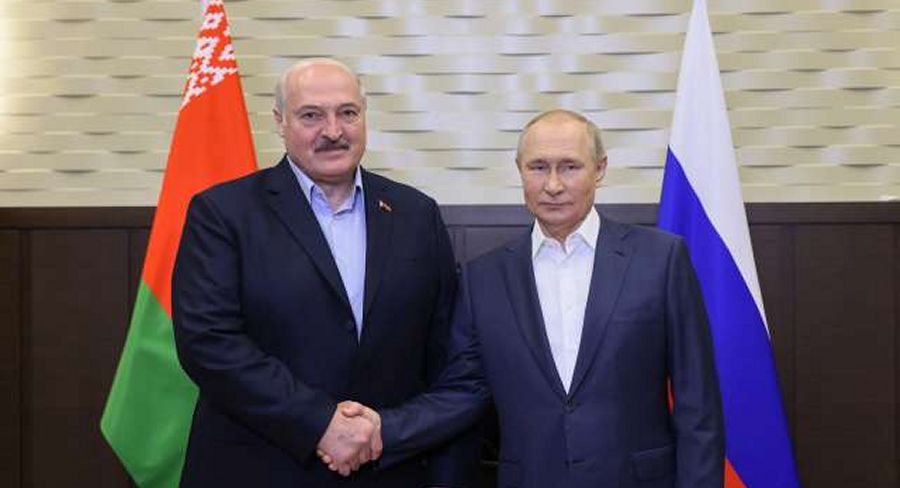
On March 25, and as Russia suspended its commitments under the New START disarmament treaty, the head of the Kremlin confirmed that tactical nuclear weapons would soon be stockpiled on Belarusian territory.
"Ten aircraft are ready to use this type of weapon. From April 3 we will start training crews, and on July 1 we will complete the construction of a special warehouse for tactical nuclear weapons on the territory of Belarus ", said Vladimir Putin. This announcement is seen by some as a response to London's announcement last Monday to send depleted uranium ammunition to Ukraine soon.
"There is nothing unusual here: the United States has been doing this for decades. It has long deployed its tactical nuclear weapons on the territory of its allies," Putin continued in a television interview. "We have agreed to do the same," he added, assuring that he had the Minsk agreement.
Within the framework of NATO, Germany, Belgium, the Netherlands and Italy have at their disposal tactical nuclear bombs B-61, supplied by the United States according to the so-called principle of "double- key”, that is to say that they remain under American control, the countries concerned only providing the fighter-bombers responsible for possibly implementing them. In addition, B-61s are also stored at Incirlik Air Base [Tukey]. Moreover, Washington wants to accelerate the deployment of the B-61-12 LEP, ie version of this tactical nuclear bomb.
No violation of our international commitments...
However, Mr. Putin continued, "we have already helped our Belarusian colleagues and equipped their planes […] without violating our international commitments on the non-proliferation of nuclear weapons. Ten planes are ready to use this type of weapon ". A priori, the type of device concerned would be the Su-30SM since the Belarusian air forces operate precisely ten copies.
On the other hand, the NPT, to which the Russian president alluded, prohibits nuclear powers [at least, declared as such] from transferring nuclear weapons and nuclear technologies to non-nuclear countries… but allows the deployment of such weapons to the outside their borders, provided that they remain under their control [as is the case for the American B-61s within NATO].
"We handed over to Belarus our well-known and very effective Iskander system that can carry [nuclear weapons]. From April 3, we start training the crews. And on July 1, we will complete the construction of a warehouse for tactical nuclear weapons on the territory of Belarus," Putin said.
Remarks which follow the British will to deliver depleted uranium shells to Ukraine. A subject on which Vladimir Putin also wanted to provide some clarification. Russia has something to answer for. "We have, without exaggerating, hundreds of thousands of shells of this type that we are not using at the moment," warned the Russian president.
He qualified this type of weapon shell among "the most dangerous" and which "generates what is called radiation dust".
British Deputy Defense Minister Annabel Goldie confirmed on Monday that the United Kingdom would supply Ukraine with depleted uranium shells, effective against tanks and other armored vehicles. Vladimir Putin also said on Saturday that he considered Western arms supplies to Ukraine, vital to Kiev's war effort, to be a "threat" to Russia.
A request from nuclear-free Belarus
But it was the strong man of Minsk, Alexander Lukashenko, who from 2022 and before Russia entered the war in Ukraine, who asked Russian President Vladimir Putin for tactical nuclear weapons.
Indeed, by signing the Budapest memoranda, shortly after the implosion of the Soviet Union, Kazakhastan, Ukraine and Belarus committed themselves to join the Non-Proliferation Treaty [NPT] and to return to Russia the nuclear weapons then in possession against the guarantee of their territorial integrity.
Moreover, Belarus enacted its denuclearization in article 18 of its Constitution, adopted in 1994. However, in 2022, and when the war in Ukraine was about to begin, this text was the subject of a revision to reauthorize the deployment of nuclear weapons on Belarusian territory. The strong man of Minsk, Alexander Lukashenko, made it known that he intended to make a request to Vladimir Putin, the Russian president, to obtain it.
Last June, during a meeting in Saint-Petersburg, the head of the Kremlin confirmed that Russia would hand over to Belarus "a number of Iskander-M tactical missile systems" capable of firing "ballistic and cruise missiles with conventional or nuclear warheads”. And that the Su-25 “Frogfoot” attack planes of the Belarusian air force would be “modernized”, while Mr Lukashenko had just asked him for devices capable of “carrying nuclear payloads” after denouncing the flights of bombers of NATO on the outskirts of his country.
This is one reason why former NATO Secretary General Anders Fogh Rasmussen said the West is still one step behind.
“Our strategy of taking it step by step has allowed Putin to continue his warlike escalation. (…) This approach does not work to win a war , you have to surprise and overwhelm your opponent!”
Vladimir Putin's remarks on March 25 come just days after he said, in his joint statement with Chinese President Xi Jinping, that a nuclear war should not be started, because there could be no winner... |
|
|
|
| Garett Skyport for DayNewsWorld |
 |
PERU FACING A SERIOUS POLITICAL CRISIS
AND SOCIAL IN A STATE OF EMERGENCY | 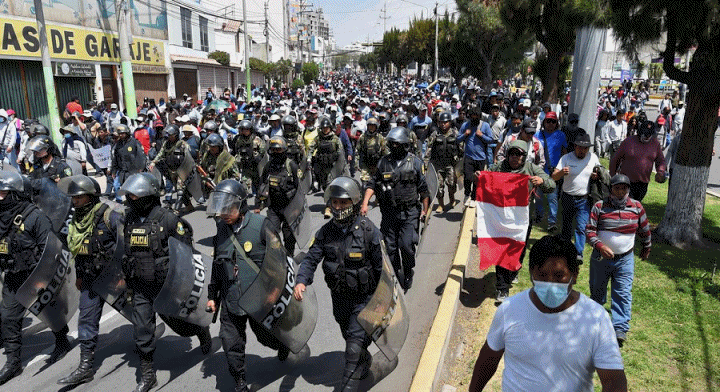
Nothing is going well in Peru where the anger is not coming down.
Thousands of Peruvians are preparing to converge on Lima on Monday, January 16, to demand the resignation of President Dina Boluarte, despite the state of emergency declared on Saturday in the Peruvian capital and three other regions. Sunday evening, dozens of demonstrators, framed by a large police force, marched peacefully from the city center to the tourist district of Miraflores, in Lima, to cries of "Dina filth, down with the dictatorship" or "Dina, corrupt murder! ".
In addition to the departure of the Head of State, the demonstrators demand the immediate holding of elections and the dissolution of Parliament. They want to reach Lima to give more weight to their claims. In the rest of the Andean country, the blockages, which began in mid-December, continue. The clashes between police and demonstrators have already left at least 42 dead.
State of emergency declared in several cities
The government therefore declared a state of emergency on Saturday January 14 in the capital Lima and several other regions to try to put an end to the demonstrations which have shaken the country since the dismissal of former President Pedro Castillo.
This measure, which had already been decreed in mid-December throughout the country, will be in force for 30 days. It authorizes the army to intervene to maintain order and leads to the suspension of several constitutional rights such as freedom of movement and assembly and the inviolability of the home, according to a decree published Saturday evening in the official journal.
In addition to the capital, the departments of Cuzco and Puno (south) are notably subject to a state of emergency, as is the port of Callao, next to Lima.
Dina Boluarte, the "traitor"
The protests erupted after the dismissal and arrest on December 7 of socialist President Pedro Castillo, accused of having tried to carry out a coup d'etat by wanting to dissolve the Parliament which was preparing to oust him from power.
Dina Boluarte, who was Pedro Castillo's vice-president, succeeded him in accordance with the Constitution and came from the same left-wing party as him. But the demonstrators, who see her as a "traitor", demand her departure as well as immediate elections.
Dina Boluarte refuses to resign.
“We hope that this situation will change radically and that the path of dialogue will be restored,” the president of the Peruvian Council of Ministers, Alberto Otarola, told the Latina television channel. He also reaffirmed that Dina Boluarte “will not resign”. “Out of a sense of historical responsibility and because the resignation of Dina Boluarte would open the door to anarchy. It would be irresponsible for Madame Boluarte to leave when the country is going through these problems. »
Early elections in 2024
In mid-December, Dina Boluarte announced that she wanted to advance the elections to 2024. “No life deserves to be sacrificed for political interests. I reiterate my call for dialogue and the renunciation of violence, “had launched the Peruvian president on Twitter, the day after deadly demonstrations which took place in Andahuaylas, 750 km from Lima.
"I have decided to take the initiative for an agreement (...) to advance the general elections to April 2024", instead of 2026, she added, in a televised message to the nation, for try to calm the demonstrators.
An investigation opened against the president
In Peru, an investigation for "genocide, qualified homicide and serious injuries" was opened by the Attorney General of the State, Wednesday, January 11, against President Dina Boluarte and several senior officials, after a bloody repression of demonstrations demanding the organization of early elections.
The State Prosecutor, Patricia Benavides, took the decision "to open a preliminary investigation against the President, Dina Boluarte, the President of the Council of Ministers, Alberto Otarola, the Minister of the Interior, Victor Rojas, the Minister of Defense, Jorge Chavez, "announced the prosecution. This investigation concerns acts of "genocide, qualified homicide and serious injuries, committed during the demonstrations of December 2022 and January 2023 in the regions of Apurimac, La Libertad, Punon, Junin, Arequipa and Ayacucho", he said. he adds.
Yet another twist in the serious crisis that the Andean country has been going through for several years, which has reached its climax since the dismissal of Pedro Castillo on December 7. The former president, candidate of a left-wing coalition elected in 2021, is accused of rebellion, after having tried to dissolve the Parliament which sought to oust him from power. He was kept in detention for 18 months by a decision of the Peruvian Supreme Court on December 15. Prosecuted for "rebellion" and "conspiracy", the ex-president faces ten years in prison, according to prosecutor Alcides Diaz.
"The conflict risks getting bogged down", according to a specialist
“I fear that a point of no return has been reached, worries Camille Boutron, researcher at the Institute for Strategic Research of the Military School (Irsem) and specialist in Peru. The opening of the investigation by the Attorney General for homicide certainly testifies to a form of judicial independence, but the conflict risks getting bogged down, especially after such a deployment of violence. It's going to be very difficult to calm things down."
In fact, the situation is explosive in Peru, where the demonstrators are demanding both the dismissal of the president, who nevertheless comes from the same Marxist political party as her predecessor, the organization of early elections and the drafting of a new Constitution.
Difficult demands to meet for President Dina Boluarte, faced with a Parliament refusing to dissolve, a climate of tension complicating the organization of a new election, and the political and institutional slump in which Peru has been mired for years .
An ungovernable country with five heads of state in six years
For 32 years, in fact, all Peruvian presidents, with the exception of two of them, have been imprisoned or indicted for corruption. The country has had no less than five different heads of state in the past six years, and the successive leaders between 2001 and 2018 have all been corrupted by the Brazilian construction company Odebrecht. We are in a cycle of extremely serious political and institutional instability.
Former President Pedro Castillo proved unable to govern during his year and a half in office. More than 80 ministers succeeded each other under his government, faced with the systematic blocking of a Parliament dominated by a right-wing opposition embodied by the daughter of the former president Fujimori (1990-2000), convicted of crimes against humanity.
A "game of massacre" between elites, which has been going on for years and prevents the implementation of structural reforms, however urgent.
A society plagued by deep divisions
Peruvian society is indeed plagued by strong social and racial inequalities and deep divisions inherited from the colonial era and the civil war (1980-2000), accentuated by the violence of the Covid-19 epidemic.
What explain the exasperation of the population, confronted with the decadence of its political class. This feeling is aggravated by the absence of political parties, civil society organizations or trade union structures capable of bringing about a dialogue between the population and its leaders. "There is no possibility of intermediation between the expectations of the population and its rulers,” laments Jean-Jacques Kourliandsky, director of the Latin American Observatory of the Jean-Jaurès Foundation.
"Voters only have the street to express themselves. I don't know how things will evolve."
"Peru has been completely ungovernable for years", analyzes Jean-Jacques Kourliandsky and associate researcher at the Institute of International and Strategic Relations (Iris). |
|
|
|
| Samantha Moore for DayNewsWorld |
 |
THE ATTACK ON PLACES OF POWER OR
THE HOLD OF BOLSONARISM IN
BRAZILIAN SOCIETY | 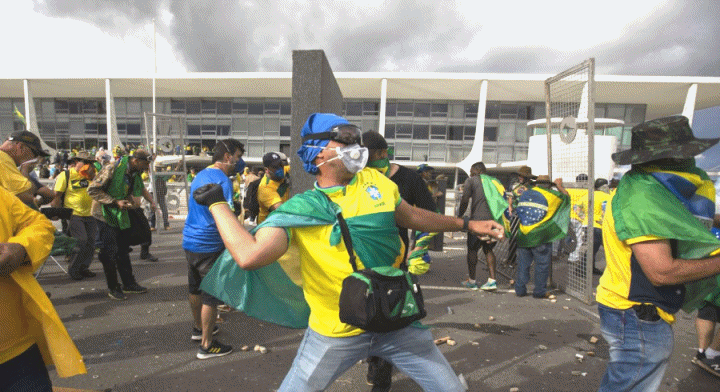
Democracy was attacked on Sunday January 8, 2023 in Brazil, but Lula's new power held. Hundreds of supporters of former Brazilian President Jair Bolsonaro invaded Congress, the presidential palace and the Supreme Court in Brasilia.
Facts
The area near the Three Powers Square, where the Presidential Palace of Planalto, the Supreme Court and the Congress meet, had been cordoned off by the authorities, but the Bolsonarists managed to break the security cordons. The police, who seemed completely overwhelmed, tried, in vain, to repel them with tear gas and stun grenades.
After several hours of chaos, security forces finally regained control of the invaded buildings and arrested more than 200 people, according to Justice and Security Minister Flavio Dino.
The message from the bolsonarists seems clear: they do not intend to give up, despite his investiture last week.
These activists have never recognized the victory - by a short head - of Lula against Jair Bolsonaro in the presidential election of October. This rampage comes a week after the inauguration of the new Brazilian president and this, in the absence of his predecessor: the far-right leader left Brazil at the end of the year to join the United States, thus fleeing trouble. judicial.
President Lula's reaction
The Brazilian president very quickly announced on Sunday a “federal intervention” – that is to say the takeover at the level of the Brazilian state of the command of the security forces – to regain control of the security of the capital.
The day after this invasion "unprecedented in the history of Brazil", Lula met with the presidents of the Senate, the Chamber of Deputies and the Supreme Court at the Presidential Palace of Planalto. The interview concluded with a joint statement calling for "the defense of democracy". Condemning an intervention carried out by "fascist vandals", he promised, about those responsible, "to find them all", assuring that they would be "punished"
The icon of the Brazilian left estimated Sunday that his predecessor Jair Bolsonaro had "encouraged" the "fascist vandals" to carry out this action.
Jair Bolsonaro reacted from Florida
From the United States, Jair Bolsonaro has, in a series of tweets, condemned “the depredations and invasions of public buildings”. But he also "rejected the accusations, without proof" of his successor that he had encouraged the violence.
Several of his allies, however, dissociated themselves from the violence, including Valdemar Costa Neto, president of the PL, Bolsonaro's party, who regretted "a sad day for the Brazilian nation". The governor of the Federal District of Brasilia, Ibaneis Rocha, another ally of Jair Bolsonaro, even apologized to President Lula in a video. He called those responsible for the depredations of public buildings "real vandals" and "real terrorists".
Unanimous condemnation from the international community
The Brazilian president can count on the support of the international community. The international community has massively condemned the attack on these symbols of Brazilian political life. US, Canadian and Mexican leaders condemned the attacks and assured Lula of their support, in a joint statement Monday. Argentine Pope Francis also denounced the violence. Joe Biden called the violence of the demonstrators "scandalous". “Using violence to attack democratic institutions is always unacceptable,” also tweeted its Secretary of State Antony Blinken. Mexican President Andrés Manuel Lopez Obrador for his part denounced “the conservative coup attempt in Brazil”.
The President of the European Council Charles Michel expressed on Twitter his "absolute condemnation" of this assault and his "total support for President Lula da Silva, democratically elected by millions of Brazilians after fair and free elections".
The lasting hold of Bolsonarism on Brazilian society
But it should be remembered that Lula only won the second round of the presidential election in Brazil by a narrow margin against incumbent President Jair Bolsonaro, at the end of a campaign marred by unrest until last day. And this extremely tense campaign will have confirmed the lasting hold of Bolsonarism on Brazilian society.
Bolsonarism is not dead as shown by researchers Bruno Ronchi (University of Rennes) and Lucas Camargo Gomes (Federal University of Paraná in Brazil) in an article published in TheConversation “ What future for Bolsonarism? » of which here are the analyses.
Indeed, despite the resurgence of food insecurity, the almost 700,000 deaths caused by the Covid-19 pandemic and the increase in deforestation, Jair Bolsonaro and his government have maintained strong popularity with the public throughout his mandate. an important part of the population. The last Datafolha poll organized before the election indicated that 38% of Brazilians considered the government "good" or "very good", while 22% considered it "average" and 39% "bad" or "very bad". where 48% of voters have a household income of two minimum wages or less, the support of the popular electorate remains fundamental to maintaining Bolsonaro's electoral potential.
In fact, adherence to the discourse of Bolsonarism is still widespread in the country, which sees the leader and his supporters as soldiers in the fight against “the system”. This “system” includes, among others, higher education institutions, judicial institutions, national and international NGOs, and even the United Nations.
In addition, Bolsonarist discourse insists on the need to moralize Brazilian society. This moralization revives the memory of the corruption scandals that erupted during the governments of the Workers' Party and exalts traditional values - as evidenced by the oft-repeated Bolsonarist slogan, "God, fatherland and family".
Bolsonaro then appears as the only one who can fight against these forces and "heal" Brazil by ridding it of a deeply corrupt system .
In addition, it is important to highlight the economic and moral support provided to Bolsonaro by certain sectors, such as part of the Evangelical Churches (in particular Pentecostals), agribusiness, the business world, the police and the government. 'army.
The attitude of some members of the security forces during the assault has also questioned observers. Haven't some been complacent towards the demonstrators? The metal barriers protecting the modernist buildings with large bay windows were easily broken down by the Bolsonarist militants who met practically no resistance from the police. Police officers even cleared the way for the demonstrators, whom they escorted to the Place des Trois-Pouvoirs. It is that the armed forces in the very broad sense are also divided and are in a conflict of loyalty with regard to the legitimation of the central power.
"Bolsonorisation of the State apparatus"?
The body of the military police is infiltrated by the Bolsonarists or in any case very sensitive to the theses of the extreme right: according to a recent study by the Brazilian Forum of Public Security, 27% of the members of this body interact on social networks with Jair Bolsonaro's most radical activists. This body is the largest police force in the country: approximately 500,000 men with one military police per state. In this case, during these assaults on the institutions, it was therefore the military police of the state of Brasilia, the capital, whose governor and head of public security, suspected of sympathy with the insurgents, were relieved of their duties last night. The name "military police" is misleading: it is really a police force, responsible for maintaining order.
The army, on the other hand, is a federal body and so far in any case, it presents a legalistic face and respectful of democratic institutions; the barracks remained calm, despite the calls from the foot of Bolsonarist militants who demand a "military intervention". Moreover, by deciding to place Brasilia under federal control, President Lula has de facto decided to trust the army, rather than the military police.
How can Lula govern?
Certainly Lula has already started the sweep. Brasilia's police chief, Anderson Torres, a Bolsonarian former justice minister, was removed from his post. As of Sunday evening, Supreme Court Justice Alexandre de Moraes suspended for 90 days the governor of the district of Brasilia, Ibaneis Rocha, who had appointed Torres. But if Lula has won the presidential election, he must deal with a Congress where the support of the ex-president is numerous and the federated states are mainly won over to Bolsonaro.
Lula will therefore have to work to regain control of the “state apparatus” (police, armies), infused with Bolsonarist ideas, states Maud Chirio, lecturer, specialist in the history of the Brazilian military dictatorship. . "Lula is faced with a bolsonarization of the state apparatus which can prevent him from governing", analyzes the researcher.
The long term effects
But given the Bolsonarist entrenchment in Brazilian society, it is important to consider the short and long-term effects it produces on this young democracy, according to the two researchers Bruno Ronchi and Lucas Camargo Gomes. The incessant attacks directed at the other powers, in particular the Supreme Court, accentuate the distrust of the institutions whose mission is to safeguard the rule of law. Anchored in the 1988 Constitution, the promulgation of which seals the end of the military dictatorship, this institutional framework showed signs of corrosion long before Bolsonaro came to power.
Faced with the succession of crises and reconfigurations that have occurred over the past decade, marked by the dismissal of Dilma Rousseff in 2016, as well as numerous corruption scandals, widespread discontent is becoming more and more palpable. Bolsonarism then appears as the expression of antipolitics, starting from the idea that all those who submit to the system are corrupt...
“The scenarios that are emerging for the future of Brazilian democracy do not suggest a “return to democratic normality” that is easy to operate. The phenomenon currently observed is characterized much more by the destructuring of a historically situated institutional framework which was already showing its limits. “, conclude the researchers.
"Even if Lula's victory were accepted by Bolsonaro and his supporters, it would take substantive work by the new government to readapt to new methods of political action, in the face of a Bolsonarist opposition that will undoubtedly be fierce and determined to return to power as soon as possible. » |
|
|
|
| Garett Skyport for DayNewsWorld |
 |
LULA'S COMEBACK AT THE HEAD OF BRAZIL |
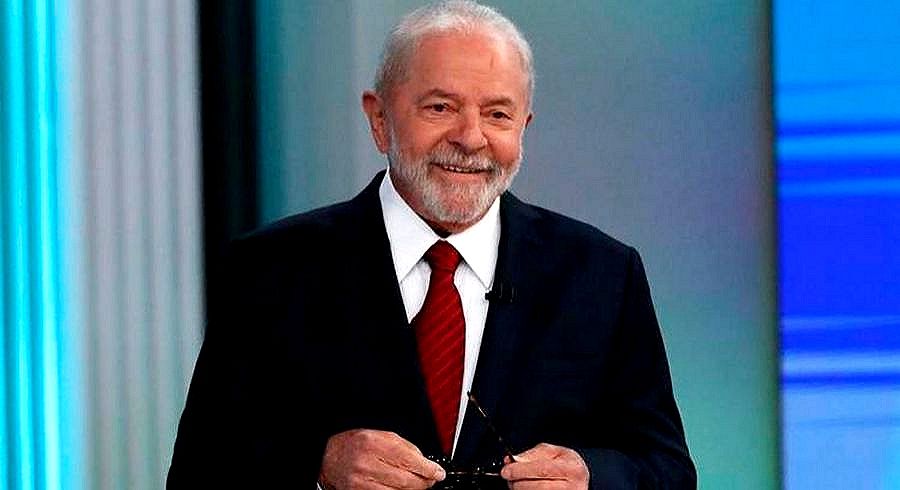
Acclaimed by an impressive red tide of hundreds of thousands of supporters massed on Sao Paulo's Avenida Paulista, Lula advocated "peace and unity" after his election by a short head to the presidency of Brazil. Former President Luiz Inacio Lula da Silva was elected Sunday, October 30, at the head of Brazil with 50.90% of the vote, according to the final results, against 49.10% for the outgoing far-right head of state, Jair Bolsonaro The Superior Electoral Court (TSE) declared, on Sunday evening, the left-wing candidate Luiz Inacio Lula da Silva elected President of the Republic, judging the gap impossible to make up for after the counting of 98.95% of the votes. With around 49.10% of the vote, the candidate for
The gap between the two opponents is very short, in a country of 215 million inhabitants including nearly 156 million voters obliged to express themselves, voting being compulsory. The margin is much narrower than predicted by the polls, which had already underestimated Jair Bolsonaro's score before the first round. The gap, of less than two percentage points, is the tightest between two presidential finalists since the return to democracy after the military dictatorship (1964-1985)
Lula's victory was hailed by all the leaders of the world, relieved and somewhat astonished no doubt like the international press "by this incredible comeback of Lula", headlines the Guardian, "an extraordinary comeback for a man who was in prison for corruption another 3 years ago ”, underlines for its part the Wall Street Journal.
It is therefore a historic comeback for this 77-year-old former metalworker, who will begin his third term on January 1, 12 years after leaving power with record popularity (87%). But also after spending 580 days in prison, after convictions for corruption finally canceled for formal defect. “I was buried alive! “Launched the stainless icon of the left, who compared his victory to a” resurrection “.
Immediately after the official announcement of the results, Lula reacted in a tweet : "Democracy", with a photo of his left hand - of which he lost a finger during a work accident - on a Brazilian flag.
The city's main artery, Paulista Avenue, was crowded with people in an explosion of joy, waiting for Lula's arrival. When he spoke, the now elected president promised his supporters that “the wheel of the economy will start to turn again”.
"Brazil needs peace and unity," said Lula, adding that his country was "back" on the international stage and no longer wanted to be a "pariah". “Brazil and the planet need a living Amazon,” the left-wing icon added in his victory speech, as Jair Bolsonaro drew international criticism for the region’s record deforestation. largest rainforest in the world under his tenure.
The “re-democratization of Brazil is underway” still estimates the Brazilian daily which nevertheless measures the “enormous challenges” which await Lula for his 3rd term “while the country which he will lead in 2 months is on the verge of recession. , with galloping inflation, weak growth, a country on the verge of hunger and misery", details O'Globo like the Folha de Sao Paulo which adds to these economic difficulties "a congress in the hand of Bolsonarists in a fractured country.
"It's not just about saving the Amazon rainforest, and lifting 33 million Brazilians out of poverty" also insists the El Pais correspondent, "the task is even more difficult, Lula will have to convince the Brazilians of the need to join forces and begin a national reconstruction". “A titanic challenge”, estimates the Spanish daily.
Jair Bolsonaro still walled in silence
The silence of the outgoing head of state was disturbing, including on social networks, where he is usually very active. It is the first time that a Brazilian president has failed in his bid for re-election. “From January 1, I will govern for the 215 million Brazilian men and women, not just those who voted for me,” Lula said.
“Nobody wants to live in a divided country, in a state of perpetual war. This country needs peace and unity. (…) There are not two Brazils, we are one people, one nation”, insisted the icon of the left.
A strange silence according to O'Globo who notes "that this is the first time that a presidential candidate does not recognize his defeat on the same day". After the announcement of Lula's victory last night, "Jair Bolsonaro would have gone straight to bed," says the Brazilian daily, which believes "there is reasonable concern about the future reaction of the loser," Bolsonaro having prepared the ground "to contest a defeat with allegations of fraud for months", also underlines the Washington Post. The outgoing president has not yet reacted to the results. According to the daily Folha de São Paulo, since his defeat, Jair Bolsonaro has locked himself up alone with his son in the presidential palace, refusing to speak to his ministers by telephone and to receive them.
At the start of the campaign, he had threatened not to recognize the results, questioning in particular the electronic voting system. He then moderated his remarks as he went along, finally affirming that "the one who has the most votes wins, it's democracy".
“Will he accept defeat ? asks the New York Times as well. "The two and a half months remaining before the investiture of Lula next January promise to be tumultuous in any case", estimates for his part the correspondent of El Pais, who does not believe in a smooth transition while January "Bolsonaro retains all his presidential powers"
Systemic corruption
On the other hand, some of his relatives like Arthur Lira, president of the Chamber of Deputies, quickly recognized the defeat of their candidate. We must “reach out to our adversaries, debate, build bridges,” said Arthur Lira.
“There is a force of inertia in the Brazilian political system which has a formidable side, it is systemic corruption. But the advantage is that it guarantees a certain stability, ”explained this Monday morning Armelle Enders, professor of contemporary history at the University of Paris VIII. It is “decisive that Arthur Lira immediately recognized Lula's victory and offered to work with him. He had already worked with him, all these people who rallied to Bolsonaro worked including with Dilma Rousseff.
So they are magnetized by federal power and access to the public coffers. It may not be a good motivation, but it will ensure stability. » |
|
|
|
| Alyson Braxton for DayNewsWorld |
 |
PRESIDENTIAL IN BRAZIL
FAVORABLE DYNAMICS FOR JAIR BOLSONARO | 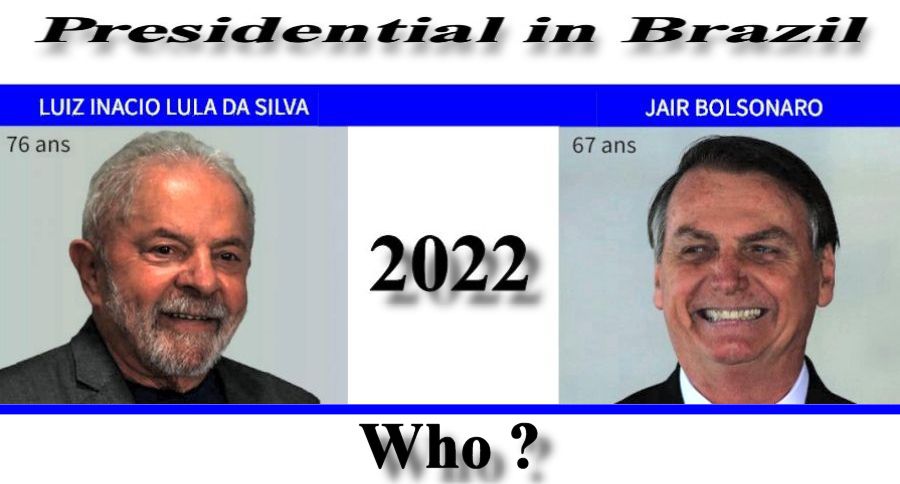
Jair Bolsonaro is particularly satisfied to have "defeated the lies" of the polls which sometimes gave him the loser in the first round. In a climate of extreme polarization, Lula's supporters began to dream of a victory by KO for Lula which would relegate Jair Bolsonaro to the dustbin of history. But this Sunday evening around 10 p.m., the verdict of the polls was formal: not only would there be a second round on October 30, but it promises to be very tight and unpredictable.
Bolsonaro is on the heels of Lula, a second round on October 30
If former President Lula came out on top in the first round of the presidential election, outgoing President Jair Bolsonaro held up much better than expected. Luiz Inacio Lula da Silva, icon of the Brazilian left, certainly won 48.4% of the vote, ahead of the president, at 43.20%, but this narrow victory is most disappointing for Lula, to whom the polls promised a large lead, even a triumph from the first round. Five points therefore separate the two candidates, while for months polls predicted a gap of at least 15 points between the former left-wing president and the far-right president.
The outgoing president obtained his best scores in the central-western, southern and south-eastern regions, notes the Brazilian newspaper Folha de São Paulo. In the state of Roraima, in the northwest of the country, Jair Bolsonaro won 69.6% of the vote. Bolsonaro is quite strong in the south of the country, a white region that is the heart of Brazil's rurality, with large conservative farmers. The good scores of the president-candidate are found in São Paulo, the economic heart of Brazil, as well as in Rio de Janeiro.
With 43% of the vote, Jair Bolsonaro improves his score for 2018 entering the second round in a favorable dynamic: he can indeed envisage victory if he manages to mobilize some of the voters who voted for Simone Tebet, the center candidate. right who won 4.16% of the vote, or for Ciro Gomes (center left, 3.04% of the vote) and a fraction of the 20.9% of Brazilians who did not vote this Sunday.
As for Jair Bolsonaro, the former left-wing president “made it strong where he had to do it strong”, that is in the Nordeste region, which is poorer and more rural. Lula achieves his best score (74.2%) in the state of Piauí, notes the Brazilian newspaper Folha de Sao Paulo.
With 48% of the vote, Lula seems to have had his fill of votes even if he will try to rally those voters who will tip the balance one way or the other. He will therefore have to face his sworn enemy in a second round, provided for by electoral law on October 30.
A Bolsonarist tidal wave in legislative and governmental elections
This result completely reshuffles the cards of this closely scrutinized presidential election. Indeed, the outgoing president also records much better results than predicted by the polls for the other polls of the day: those which renew the two chambers of Congress and elect the governors of the 27 Brazilian states.
According to analysts, the Liberal Party (PL), party of the current far-right president, is on track to obtain the largest number of seats in the Chamber of Deputies. In the Senate, the PL and its allies won at least 14 of the 27 seats to be filled.
Regarding the governors, the Liberal Party candidate Claudio Castro was re-elected governor of the state of Rio in the first round. The biggest surprise, however, was the arrival in the lead of Tarcisio Freitas in the state of São Paulo, former Minister of Infrastructure of Jair Bolsonaro, who will face Fernando Haddad, dolphin of Lula and former mayor of the megalopolis of São Paulo . Lula's Workers' Party was nevertheless announced as leading in the polls in Brazil's most populous state.
At the national level as well as at the local level, the electoral dynamic seems more favorable to Jair Bolsonaro than to the camp of the Workers' Party and its allies.
A fierce campaign for the second round
This narrow victory for Lula in the first round of the presidential election is the omen of a month of fierce campaigning until October 30, the date of the second round of elections. Sunday evening, the two candidates who came out on top reacted to the results.
“As of tomorrow, we will already be in the countryside. Do not rest, ”tweeted leftist leader Lula in the evening. "It's just an extension. I can tell you that we are going to win this election (...) The fight continues, until the final victory”, declared Lula. The former president, addressing his supporters on Paulista Avenue in São Paulo, declared himself "absolutely certain that divine justice will allow us to win these elections, to recover the dignity of the Brazilian people". And the candidate to add: “It is as if fate liked me to work a little more. »
The outgoing president declared himself optimistic to "play the second half" of the presidential election. “Our opponents only prepared for a 100 meter race. We are ready for a marathon. We will fight with confidence and with growing strength, certain that we will win for the homeland, for the family, for life, for freedom and for the will of God! Jair Bolsonaro.
He also pledged on Sunday evening to better convince the most disadvantaged Brazilians that they would benefit more from his program. “I understand that there have been a lot of votes related to the living conditions of Brazilians, who are affected by inflation, especially basic necessities. I understand that many people crave change but sometimes some change can be for the worse,” he said.
If the former left-wing president and the current far-right president agree on the need for Brazil to be “saved”, then Brazil is facing a serious economic crisis. Of the country's 213 million inhabitants, 33 million suffer from hunger and 9.9 million are unemployed. Inflation is also very high and reaches 12%.
To deal with this situation, the candidate of the Workers' Party, Lula, first wishes to improve the purchasing power of the poorest Brazilians by strengthening the current "Auxilio Brasil" system which grants 600 reais (115 euros) to poor families. Lula also wants an overhaul of the Brazilian tax system, in order to tax the middle classes more gradually and the wealthiest households more.
For his part, Jair Bolsonaro is betting on employment to revive the country's economy. Unlike his left-wing rival, he positions himself in favor of the privatization of large public companies, such as the electricity manager.
According to him, the economic freedom of enterprises is the key to social well-being. |
|
|
|
| Garett Skyport for DayNewsWorld |
 |
HIGH RISK PRESIDENTIAL IN BRAZIL
BETWEEN BOLSONARO AND LULA | 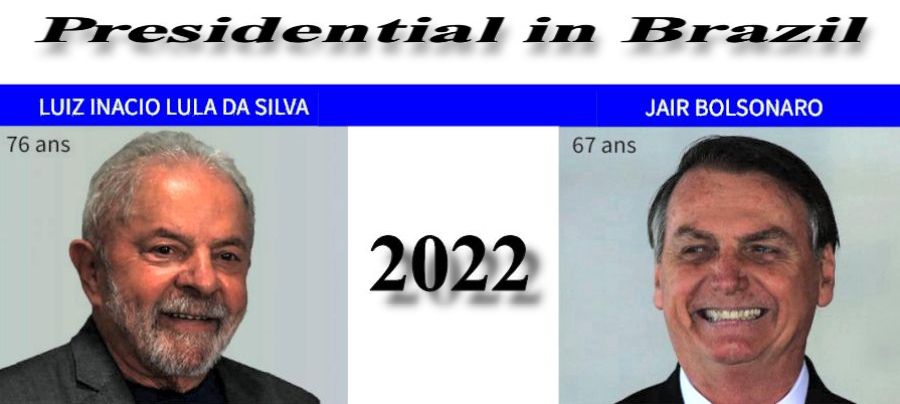
Brazilians are called to the polls this Sunday, October 2 to elect their president in a two-round majority uninominal ballot. This vote is coupled with a renewal of the entire Chamber of Deputies, a small third of the Senate, the Federal Assemblies and the governors of the States.
Former President Lula, who will try to return to the helm of the country in the October 2 election, is favored by the polls.
The outgoing president is second in the polls – which he disputes – behind former President Lula. He cited rumors of electoral fraud if he is not re-elected, questioning the reliability of the fully electronic voting system. Remarks refuted by the experts, but which nevertheless stirred up his supporters.
“Trump of the tropics”
The Superior Electoral Court has banned the carrying of weapons in polling stations and within 100 m around, in the 48 hours before Sunday's vote and 24 hours after, except for the police. The Supreme Court has temporarily suspended some gun sales
Nothing to please Jair Bolsonaro, a great defender of weapons. Since his election in 2018, he has facilitated access to guns for hunters and sport shooters, with the help of a dozen decrees. His son, MP Eduardo Bolsonaro, took to Twitter to invite Brazilians in legal possession of a firearm to volunteer in his father's campaigns.
"[The defense of gun ownership] is something built by a far-right movement, which is actually based on a movement in the United States," says Ana Julia Bonzanini Bernardi, associate professor at the São Paulo School of Sociology and Politics Foundation.
Bolsonaro is often called the Trump of the tropics borrowing tactics from Donald Trump during his campaign and tenure.
Like the former US president, Jair Bolsonaro was elected as a candidate outside the political system, seducing a conservative segment of the population with his outspokenness and his defense of guns, associated with an idea of manhood and freedom. He is also an evangelical who punctuates his speeches with religious references and is particularly tough on ethnic minorities, the media, women and the LGBTQ+ community.
If Bolsonaro is often compared to Trump, it is also for the fervor of his supporters, wary of traditional media and active on social networks. Supreme Court Justice Alexandre de Moraes has opened investigations into the current president for disinformation.
The role of the armed forces in the event of popular uprisings and riots also raises questions, 37 years after the end of a military dictatorship. Jair Bolsonaro, former captain, has supporters in the ranks.
A total of 12 candidates compete in the first round on October 2. If none collects more than 50% of the votes, a second round will take place on October 30.
“Voting day will be very tense, in any case, but if we have a second round, it will be quite a tense month of October in Brazil”, launches Mr. Benetti.
|
|
|
|
| Jenny Chase for DayNewsWorld |
 |
PRESIDENTIAL IN COLOMBIA
SOON A LEFT PRESIDENT ? | 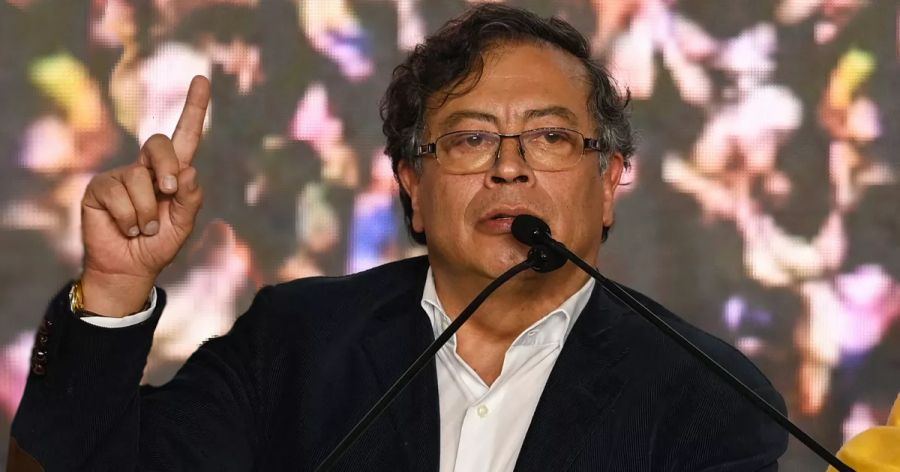
The candidate of the historic Pact coalition, Gustavo Petro, won 40% of the votes in the first round, against 28% for Rodolfo Hernandez. Mr. Petro could become the country's first left-wing president after the polls on June 19.uche
Gustavo Petro came out on top on Sunday, May 29, in the first round of the presidential election in Colombia. He will face, in the second round, an independent candidate, Rodolfo Hernandez, according to the provisional official results published in the evening. Mr. Petro has 40.32% of the vote, ahead of Mr. Hernandez (28.20%). Conservative candidate Federico Gutierrez is in third place with 23.87%, a surprise result that marks an unprecedented defeat for Colombia's traditional right. For the first time in its history, Colombia could elect a leftist president in the election presidential election, the second round of which will take place on June 19.
In the opinion of all observers, Senator Petro, a former guerrilla convert to social democracy, an economist and former mayor of Bogotá, was able to exploit the thirst for change shown by Colombians in the face of inequalities and corruption, a need which he made his emblem with his slogan "For life".
The four years in office of outgoing Conservative President Ivan Duque, who could not stand for re-election, saw no substantive reform. They have been marked by the pandemic, a deep recession, massive anti-government protests in cities and worsening violence by armed groups in the countryside. The "paro" (strike) of spring 2021, severely repressed by the police, revealed the extent of frustration, especially among young people, in the face of poverty, inequality and corruption, an evil endemic to the country. rural areas, guerrillas and armed groups linked to drug trafficking have increased their violence and their influence within communities, undermining the few achievements of the peace agreement signed in 2016 with the Marxist Farc.
“There are only two options: leave things as they are (…), which means more corruption, violence, hunger. Or change Colombia and lead it towards peace, prosperity and democracy,” Petro said on Sunday after voting in Bogota.
This is the third time that Mr. Petro has participated in the presidential election. This time, he has as a running mate for the vice-presidency an Afro-Colombian, Francia Marquez. The rise to the top of the state of this charismatic activist with a feminist and anti-racist discourse would also mark a turning point in Colombian politics, traditionally dominated by the same elites.
Facing the “Colombian Trump”
As some polls at the end of the campaign suggested, millionaire Rodolfo Hernandez, 77, came in second. The former mayor of the city of Bucaramanga (north), a businessman with often outrageous or eccentric statements, is nicknamed by the local press the "Colombian Trump".
While Mr. Gutierrez was seen throughout the campaign as Petro's challenger, these surprise results mark the historic rout of Colombia's old right, like his mentor, ex-president Alvaro Uribe, today. mired in legal disputes.
After Chile, Colombia is in the process of electing a left-wing president. The country could turn the page on half a century of right-wing government and see a black woman and environmental activist take up her vice presidency.
|
|
|
| Alyson Braxton for DayNewsWorld |
 |
There are no translations available.
CHILI MORT DE LUCIA HIRIART
LA VEUVE DU GENERAL PINOCHET
|
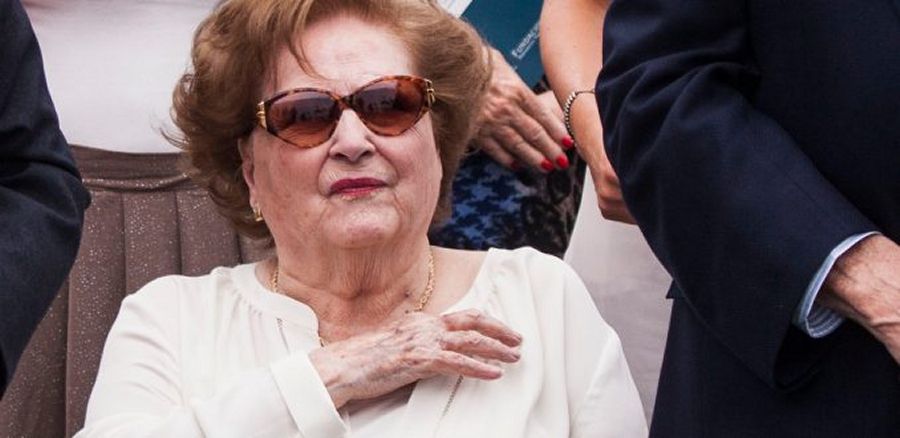 Lucía Hiriart, veuve de l'ancien dictateur chilien Augusto Pinochet, est décédée ce jeudi 16 décembre chez elle à Santiago, à l'âge de 98 ans. Dans une brève déclaration à la presse, son fils cadet, Marco Antonio Pinochet, a dit : « Nous avons le grand regret d’annoncer le décès de notre chère mère, Lucia Hiriart de Pinochet ». Les « funérailles se tiendront en privé », a-t-il ajouté. Le général Pinochet a dirigé le Chili entre septembre 1973 et mars 1990, laissant derrière lui plus de 3 200 morts et personnes disparues. Lucía Hiriart, veuve de l'ancien dictateur chilien Augusto Pinochet, est décédée ce jeudi 16 décembre chez elle à Santiago, à l'âge de 98 ans. Dans une brève déclaration à la presse, son fils cadet, Marco Antonio Pinochet, a dit : « Nous avons le grand regret d’annoncer le décès de notre chère mère, Lucia Hiriart de Pinochet ». Les « funérailles se tiendront en privé », a-t-il ajouté. Le général Pinochet a dirigé le Chili entre septembre 1973 et mars 1990, laissant derrière lui plus de 3 200 morts et personnes disparues.
Sa mort intervient seulement trois jours avant l'élection présidentielle la plus importante du pays depuis le retour à la démocratie en 1990.
L'annonce de sa mort a été accueillie par des concerts de klaxons et un rassemblement dans le centre-ville de Santiago. « Il n'y a pas de mal qui dure cent ans », titre un média de gauche en ligne.
Sur les réseaux sociaux, on peut mesurer l'animosité de nombreux Chiliens envers la veuve du dictateur : « La vieille est morte » écrivent certains, déterminés à célébrer la nouvelle. Mais elle n'a « pas payé pour ce qu'elle a fait », ajoutent d'autres.Mme Hiriart Rodriguez, considérée comme la femme forte du régime militaire, s’était rendue à plusieurs reprises à l’hôpital militaire de Santiago au cours des derniers mois.
Issue d'une famille bourgeoise, Lucía Hiriart a épousé Augusto Pinochet quand il n'était qu'un simple militaire. Dans ses mémoires, il écrit qu'elle l'a poussé à participer au coup d'État de 1973 contre le président socialiste Salvador Allende.
Après le retour à la démocratie, le couple est aussi accusé de malversations. On découvre plusieurs millions de dollars sur des comptes secrets de l'ancien dictateur à l'étranger. Lucía Hiriart, elle, est accusée d'avoir revendu à son propre bénéfice une centaine de bâtiments et terrains qui avaient été donnés par le régime à la fondation qu'elle dirigeait.
La mort de Mme Hiriart survient alors que le Chili est en pleine rédaction d'une nouvelle Constitution, qui pourrait remplacer le texte actuel hérité de la dictature.
Mais aussi en pleine présidentielle, avec l'élection de dimanche, dont l'issue est particulièrement incertaine. L'ancien leader étudiant de gauche Gabriel Boric sera opposé au candidat d'extrême droite José Antonio Kast, défenseur historique du régime Pinochet.
Augusto Pinochet, mort en 2006 d’une crise cardiaque, à l’âge de 91 ans, aura réussi à échapper à la justice, qui le poursuivait pour des violations des droits de l’homme sous son régime et pour détournement de fonds publics. « Je pense que le départ de Lucia est un événement important, qui marque la fin d’une époque où il y avait plus de lumières que d’ombres. Une étape de l’histoire dont les leçons doivent être transmises aux générations futures », a déclaré le sénateur de droite Iván Moreira.
|
|
|
|
| Alyson Braxton pour DayNewsWorld |
 |
IN VENEZUELA THE CRUSHING VICTORY
OF THE CHAVIST NICOLAS MADURO |
On the occasion of the regional elections which were held on Sunday, November 21, 2021, the United Socialist Party of Venezuela (PSUV) won an overwhelming victory: out of 23 governors, 20 are Chavistas. The opposition even lost 2, going from 5 to 3 governors. The other results - namely the names of the 334 mayors and more than 2,500 councilors - have not yet been released, with the exception of Caracas.
Abstention was the main figure of the day, with 58.2% of voters who did not come to the polling stations.
And for good reason: if the regional Sunday marked the return of the opposition parties after the boycott of the previous elections, in particular the presidential election of 2018 and the parliamentarians of 2020, the opposition came back very divided on the attitude to adopt for this ballot.
"The question is whether, by voting, we accelerate the fall of the regime or if, on the contrary, we postpone it because we legitimize it", asked Ms. Machado Sunday morning in a tweet.
The radical right, embodied by Leopoldo Lopez and Maria Corina Machado, continued to advocate abstention while Juan Guaido, an opposition figure on the international scene and interim president since January 2019, said he would not vote. Venezuelans, confused by the contradictory speeches of the opposition leaders, therefore responded by abstaining largely for the regional and local elections of Sunday, November 21, 2021.
The conditions seemed, however, to be met for a relatively democratic confrontation between the opposition and the Chavist power.
Indeed, the National Electoral Council (CNE) had been renewed by integrating two opposition rectors out of five. The government had accepted the arrival of observers from the European Union, the UN and the Carter Foundation. Most of the disqualified opposition parties had been rehabilitated. The most emblematic political prisoners had been freed.
But the opposition failed to agree to present a united front against the adversary, personal ambitions having prevailed.
Still, Chavist voters, like all Venezuelans, face an increasingly precarious daily life. And they no longer hesitate to let the victorious socialist regime know it.
|
|
|
|
| Britney Delsey for DayNewsWorld |
 |
CUBA UNIQUE EVENTS
AGAINST THE GOVERNMENT |
Dozens of anti-government protests plagued the country on Sunday. President Miguel Diaz-Canel called on his supporters to fight back in the street.
"Down with the dictatorship. "
On Sunday July 11, 2021, thousands of demonstrators took to the streets of Havana and the cities of Cuba to cry out their anger at the misery and shortages.
As a backdrop, the legacy of the 1959 revolution is fading away. Overturned cars, quite a symbol in the paradise of American beauties of the 1950s. Thousands of "de a pie" (those who walk on foot, in Spanish), ordinary Cubans, chanted anti-regime slogans in the streets with a rare vigor.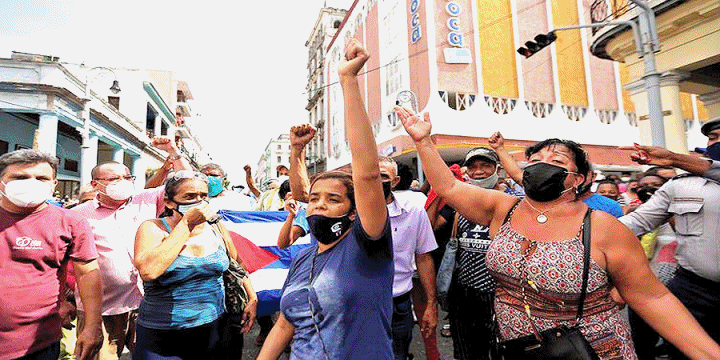
Widely broadcast on social networks, the parades began spontaneously in the morning, an extremely rare event in this country ruled by the Communist Party, where the only authorized gatherings are usually those of the party. About 40 anti-government protests took place across the island, which remained cut off Monday morning. The streets of Havana were still crisscrossed by the police and the army, journalists noted, but calm returned after the clashes the day before which led to dozens of arrests.
In Havana, clashes broke out between demonstrators and the police who used tear gas. At least ten people were arrested and several police officers used plastic pipes to beat protesters. While he acknowledged the “dissatisfaction” that some Cubans may feel, Miguel Diaz-Canel also gave the revolutionaries “the order to fight” these gatherings in the street.
Cuba is going through a serious health and economic crisis
It is overwhelmed by the economic crisis that these thousands of Cubans came out with cries of "We are hungry", "Freedom" and "Down with the dictatorship". “Cuba is not yours! Cried in particular a crowd gathered in front of the offices of the Communist Party (PCC), the only political formation authorized in Cuba.
The Covid-19 pandemic has indeed plunged Cuba into a serious economic crisis. Cubans have to wait long hours for food supplies every day and also face a shortage of medicines. The decline in tourism, stopped because of the pandemic, has deprived the country of a significant share of its resources. The Cuban economy fell 11% in 2020, the lowest in almost 30 years, and these economic difficulties have led authorities to cut electricity for several hours a day in much of the territory. Mobile internet, which arrived in Cuba at the end of 2018, remained cut off on Monday morning.
This crisis is not linked only to the Covid-19 pandemic. According to Janette Habel, “the first problem is the sanctions” imposed on Cuba. “Above all else, this country has been the victim for 62 years of absolutely appalling economic sanctions,” observes the lecturer at the Institute for Higher Studies in Latin America (IHEAL).
The protests also occurred on the day Cuba recorded a new daily record of contamination and deaths due to the coronavirus, with 6,923 cases recorded (for 238,491 cases in total) and 47 deaths in 24 hours (for 1,537 deaths in total). Faced with this situation, calls for help have multiplied on social networks under the keywords #SOSCuba or #SOSMatanzas (named after the most affected province) and a group of opponents demanded the establishment of a “Humanitarian corridor”. The initiative was dismissed by the government.
Cuba accuses the United States of complicity
In the aftermath of these protests, Cuban President Miguel Diaz-Canel accused the US government of carrying out "a policy of economic suffocation to provoke social unrest" on the island. After a brief reconciliation between 2014 and 2016, diplomatic relations between Cuba and the United States are at their lowest since the tenure of Donald Trump. The former Republican president has tightened the embargo in force since 1962, denouncing human rights violations and Havana's support for the government of Nicolas Maduro in Venezuela.
Miguel Diaz-Canel accused the US government of being behind the protests. "There is a group of people, counterrevolutionaries, mercenaries, paid by the US government, indirectly through US government agencies, to organize these kinds of protests," he said.
In a speech broadcast on television and radio, the Communist leader, surrounded by several of his ministers, assured that his government is trying to "face and overcome" the difficulties facing the American sanctions, reinforced since the mandate of the president American Donald Trump (2017-20 "What are they looking for? To provoke social unrest, to cause misunderstandings" among Cubans, but also "the famous change of regime", denounced the Cuban president. "If you want the people get better, first lift the embargo ", he added. Those behind these demonstrations" have obtained the response they deserve and they will continue to have it, as in Venezuela ", Cuba's great ally , he added.
Washington and Brussels support the demonstrators
As of Sunday, the American government reacted by warning the Cuban authorities against any use of violence against "peaceful demonstrators". "The United States supports freedom of speech and assembly in Cuba," tweeted US National Security Advisor Jake Sullivan.
In a statement released Monday, US President Joe Biden called on "the Cuban regime to listen to its people and meet their needs." “We stand with the Cuban people and their vibrant call for freedom. "
For its part, the European Union has announced its support for the “right of peoples to express themselves”. "We ask the authorities to authorize these demonstrations and to listen to the dissatisfaction of the demonstrators", declared the head of European diplomacy Josep Borrell, after a meeting of European foreign ministers in Brussels.
Russia warns of "foreign interference"
Great support of the Cuban authorities since Soviet times, Russia has warned against any "foreign interference" in this crisis. "We are convinced that the Cuban authorities are taking all necessary measures to restore public order in the interest of the citizens of the country," assured the Russian Foreign Ministry in a statement.
Mexico offers help
Mexican President Andres Manuel Lopez Obrador rejected any “interventionist” approach to the situation in Cuba and offered to send humanitarian aid.
Mexico can "help by providing medicines, vaccines, whatever is needed, as well as food, because health and food are basic human rights" which do not require "interventionist political management," said the leader of the left. |
|
|
|
| Alyson Braxton for DayNewsWorld |
 |
COVID-19 THE CAPITAL OF CHILE RECONFINES
DESPITE 60% OF THE POPULATION VACCINATED |
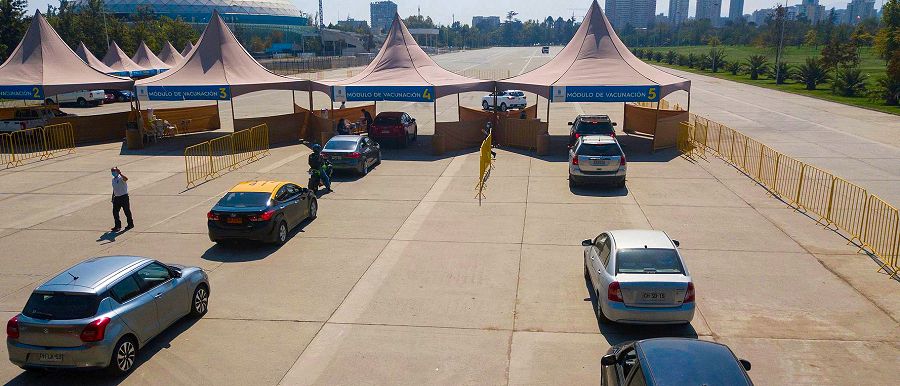
In Chile, 60% of the population has already received two doses of the Covid-19 vaccine, one of the best rates in the world, behind Canada, the United Kingdom and even Israel. And yet, this is not enough to curb the epidemic in the country.
The intensive care units are saturated with patients and the number of cases has been on the rise for at least two weeks. The authorities ended up ordering a new re-containment for the entire Santiago region from Saturday, June 12. More than eight million inhabitants living in and around the capital are affected.
For several days, the Order of Physicians has been alerting and asking for more restrictions, especially in the capital where the situation is critical, as explained by its regional president, Francisca Crispi, in a video: “The intensive care beds are busy. 99%, that is to say 2,500 beds today. Unheard of in the country's history. "
These are mostly unvaccinated patients. Jeanette Vega, former Secretary of State for Health and consultant to the World Health Organization (WHO), explains one of the reasons for the current health situation: “The vaccine which is used here in majority, Sinovac , is very effective against severe cases and death, but less effective against contagion itself. And nearly half of the population still needs to be vaccinated. "
In downtown Santiago, the re-containment does not surprise anyone: a significant part of the capital was already confined.
At the beginning of April 2021 the capital had been deconfined but already on Thursday, April 29, 2021, Chile had recorded more than 6,800 new cases for 19 million inhabitants. The Head of State then announced that he wanted to set up a vaccination passport to allow residents who have already received their two doses of vaccine to have access to cultural places, for example..
|
|
|
|
| Alyson Braxton for DayNewsWorld |
 |
COLOMBIAN PRESIDENT IVAN DUQUE USES ARMY IN STREETS OF CALI
|
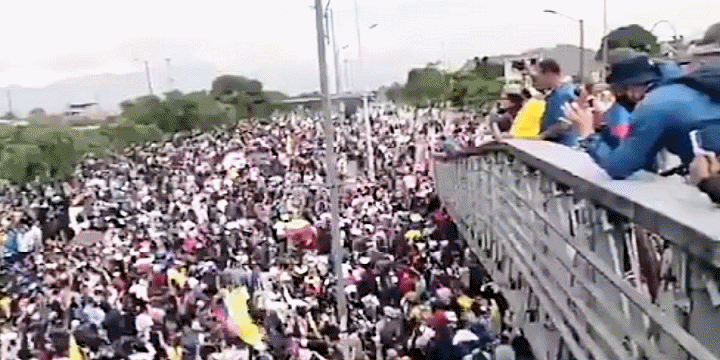
Faced with the social anger that has been raging for a month in Colombia, President Ivan Duque has ordered the deployment of the army in the streets of Cali.
Epicenter of the demonstrations which left three more dead in the same day!
"From this night begins the maximum deployment of military assistance to the national police in the city of Cali", announced the president in this city of 2.2 million inhabitants, the third in the country, where he has chaired a security council.
New protests left at least three people dead in the city on Friday, including an investigator from the Cali prosecutor's office who shot at the crowd, killing a civilian, before being lynched by protesters.
This violence comes exactly one month after the uprising of April 28, 2021 against a quickly abandoned tax reform project led by right-wing President Ivan Duque, which aimed to increase VAT and broaden the income tax base. .
These three new deaths bring the number of deaths to 49, including 2 police officers, listed by the authorities.
Some 2,000 people were injured and 123 are missing. Human Rights Watch reports up to 63 deaths.
"The situation in Cali is very serious," tweeted José Miguel Vivanco, director for the Americas at Human Rights Watch, who urged President Duque to take "urgent de-escalation measures, including a specific order to ban the use of firearms by state agents. Colombia cannot deplore more deaths ”.
The wrath of the youth
For the past month, the scenario has almost always been the same:
by day, the demonstrations are peaceful and hyper-creative, by night the rebellion turns into riots where fireworks mortars and Molotov cocktails mix with live ammunition.
This unprecedented revolt shakes the big cities, where barricades are erected and road blockages are causing shortages and exasperating part of the population. The government, despite mediators responsible for negotiating with the National Strike Committee, initiator of the movement, is unable to deactivate a crisis which, for the moment, does not threaten to overthrow it.
This sudden crisis has above all revealed, according to analysts, the dull anger of a politicized youth, impoverished by the epidemic, who no longer wants to be silent.
A neglected social demand
For half a century, the conflict with the Revolutionary Armed Forces of Colombia (Farc) obscured a reality that had become too glaring:
according to the World Bank, Colombia ranks among the most unequal countries in terms of income and has the most informal labor market in Latin America.
The State concentrated in its fight against the guerrillas - losing that against the ELN and the dissidents of the Farc - and completely abandoned the social demand.
The backlash is all the stronger, with poverty which has accelerated to reach 42.5% of the 50 million inhabitants, the pandemic plunging the most vulnerable into poverty.
"At least a decade of the fight against poverty has been lost," said political scientist Sandra Borda.
The 2016 peace agreement, which disarmed what was once the most powerful guerrilla on the American continent, ended an outdated conflict, far from the new generation of city dwellers "who are discovering politics," explains academic Hernando Gomez Buendia, author of the book “Between independence and the pandemic”.
While a third of young people aged 14 to 28 do not work or study, "Colombia is becoming", according to him, "a country of urban conflicts".
“There is an active part of society that has long been excluded from politics, from the world of work and now from the education system, and who are tired of being excluded. It is the one who is demonstrating in the streets today, ”explains Sandra Borda.
Unlike the social upheavals in Chile, where the social uprising led to constitutional reform, or in Ecuador, which has just organized elections, Colombians have not yet had a "valve" to vent their many frustrations and suffering !! |
|
|
|
| Simon Freeman for DayNewsWorld |
 |
LEFT AND INDEPENDENT LEADERSHIP TO REFORM THE CONSTITUTION IN CHILE
|
The ballot to appoint the drafters of the new Chilean Constitution favored left-wing candidates and independents, to the detriment of the ruling right, according to the first results published Sunday evening.
The parties of the left wishing to rewrite in depth the Chilean constitution inherited from the military dictatorship of Augusto Pinochet (1973-1990) were ahead, Sunday May 16, those of the conservative right, but the independent parties came out on top of the ballot to designate the drafters of the new fundamental law.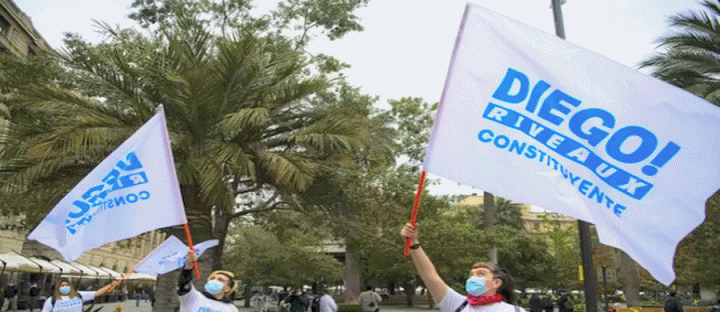
The two lists which bring together candidates ranging from the center-left to the Communist Party, who intend to propose a new model for the country with various guaranteed social rights, such as education, health or housing, collect 33% of the vote, after the counting of 64% of the ballots.
With 21% of the vote, the right in power defending the current system, which would have favored the economic growth of the country, does not have the control of the decisions of the Constituent Assembly which will be composed of 155 members elected on a parity basis, including 17 seats are reserved for the 10 indigenous peoples.
Independent candidates - actors, writers, professors, social workers, lawyers - many of whom had participated in the biggest social uprising in decades, which began in October 2019 to demand a more egalitarian society, supplant traditional parties and win the rest of the votes .
"Outsiders"
According to Marcelo Mella, a political scientist at the University of Santiago, "most (of the independent candidates) are outsiders, without party membership and critical of traditional parties".
Despite the absence of polls and difficult election forecasts, no analyst had anticipated such a raid on independent candidates or the dismal outcome of the ruling right, united with the far right on one list, as looming in November presidential election.
The results clearly show "that the electoral strength of independents is much greater than previously thought and this confirms that citizens are fed up with traditional parties," said Mireya Davila, of the Institute of Public Affairs of the University of Chile. According to her, "the political system is being reconfigured, there is an air of change in Chile, but it is also complex because it will be necessary to negotiate with each of the independents and to deal with each of their positions within the 'Constituent Assembly".
A world first
Another major lesson from this ballot spread over two days due to the Covid-19 epidemic: the disaffection of voters who were only 37% to travel over the two voting days. The participation rate was 20.44% of the 14.9 million registered, at the end of the day Saturday, according to data from the electoral service.
Rewriting the Constitution was one of the demands resulting from the violent social uprising of October 2019. It will replace the one drafted in 1980 under the military regime of Augusto Pinochet.
The change in the current fundamental law, which severely limits state action and promotes private activity in all sectors, including education, health and pensions, is seen as the removal of a key obstacle to profound social reforms in one of the most unequal countries in Latin America.
This electoral process is also the first in the world to elect a Constituent Assembly on a parity basis, with an equal number of men and women. The new Constitution must be drafted within nine months, extendable only once by three additional months.
It must be approved or rejected in 2022 by a compulsory vote referendum.
|
|
|
|
| Alize Marion for DayNewsWorld |
 |
NOCTURNAL BURIALS FACING COVID-19 HECATOMB IN BRAZIL
|
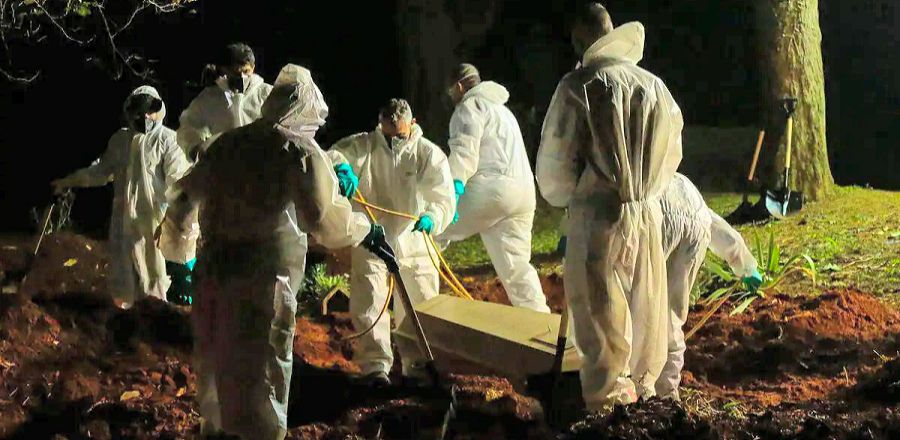
The health situation has never been so catastrophic in Brazil. The country experienced its deadliest month since the start of the Covid-19 pandemic in March with more than 66,000 deaths.
Four cemeteries in São Paulo - one of the states hardest hit by the pandemic - are now open at night to deal with the increase in the number of burials.
"We have never seen in the history of Brazil a single event killing so many people in 30 days," said Miguel Nicolelis, coordinator of the Scientific Committee formed by the Northeastern States of Brazil against the pandemic.
Death and contamination records
"We are at the worst time, with records of deaths and contaminations, which signals that April will still be very bad," said epidemiologist Ethel Maciel, professor at the Federal University of Espirito Santo (UFES).
Brazilian hospitals are almost saturated. In several states, healthcare workers have already started allocating intensive care beds to those patients who are most likely to survive. For Dr Nicolelis "it is very possible" that Brazil "will reach half a million dead by July".
"This is not only a threat for Brazil, but also for the whole world", he added, while the Latin American neighbors of the country in turn undergo strong outbreaks of contaminations. |
|
|
|
| Alyson Braxton for DayNewsWorld |
 |
CORONAVIRUS DRAMATIC SITUATION
IN LATIN AMERICA |
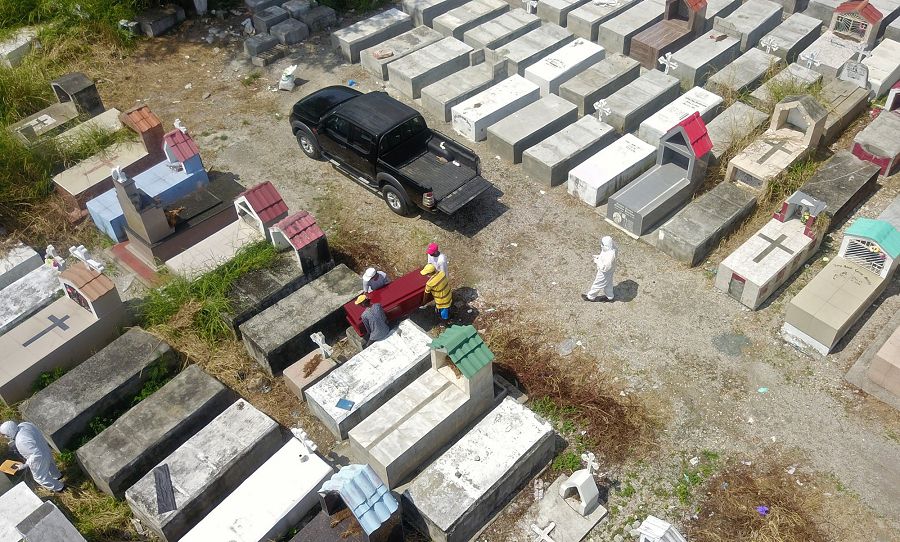 In Asia, as in Europe, the Covid-19 epidemic appears to be gradually disappearing as the summer season approaches. On the other side of the Atlantic, and more particularly in South America, the health situation went from worrying to dramatic in a few weeks. In Asia, as in Europe, the Covid-19 epidemic appears to be gradually disappearing as the summer season approaches. On the other side of the Atlantic, and more particularly in South America, the health situation went from worrying to dramatic in a few weeks.
The new epicenter of the coronavirus pandemic, Brazil recorded 1,349 deaths from the new coronavirus in 24 hours on Wednesday, a new record for this country, the most affected in Latin America. If a curfew has been imposed in twenty locations in the state of Bahia (Northeast), the containment measures, strongly criticized by Bolsonaro himself, still apply "à la carte", according to the regions. The President regularly calls for the lifting of restrictions to preserve the economy and jobs.
"If we do not act, we risk seeing an explosion in demand for intensive care beds and we will not be able to meet them," warned Bahia state governor Rui Costa.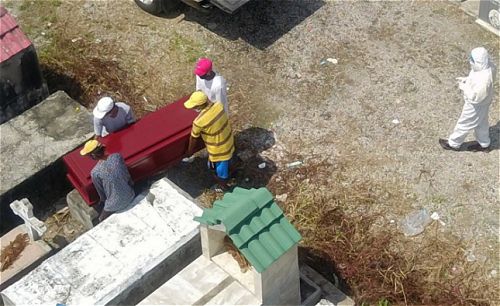
"It is not a crisis, it is a war," he said in a tweet, calling on politicians to forget "the differences between the parties" and to "work for the country and save lives".
“Let's listen to science!” Also wrote Governor Costa, skillfully and indirectly addressing President Bolsonaro. Brazil has already officially registered 32,548 deaths, which places the Latin American giant in fourth place in the world for the dead, behind the United States - which remains by far the hardest hit country with 107,000 dead - the United Kingdom (39,728) and Italy (33,530).
In Mexico.
The number of deaths attributed to the new coronavirus has doubled in 24 hours, going from 470 Tuesday to 1,092 Wednesday, according to the official government balance sheet. An alarming figure that does not exceed that of Brazil, the new epicenter of the epidemic, where 1349 deaths were recorded Wednesday, a record.
In total, the Covid-19 killed 11,729 people in Mexico, the second heavy toll in Latin America behind Brazil. A total of 101,238 confirmed cases of contamination have been reported there since the start of the pandemic. The head of the Covid-19 strategy in Mexico, Hugo Lopez-Gatell, undersecretary for health, said on Friday that he believed the country was likely to reach the toll of 30,000 dead.
Although the latter warned of the danger for Mexicans to return to the public space given the current health situation, Mexico, a country of 120 million inhabitants, began Tuesday to restart its economy, the president Andrés Manuel Lopez Obrador calling for the establishment of "a new normal in the country".
In Chil.
Another South American country hit hard by the epidemic, the authorities decided to extend the confinement in Santiago for a fourth week. Since the appearance of the first case declared on March 3, the South American country of 18 million inhabitants has registered 113,628 contaminations, including 1,275 fatal. In the past 24 hours, a record 87 people have died and 4,942 have been infected. Peru experiences record number of cases
With more than 183,198 cases, including 5,301 deaths, according to the latest official figures for Thursday evening, Peru is the second country in Latin America in number of infected, after Brazil. More than 9,000 patients with the new coronavirus are currently hospitalized, putting the healthcare system on the brink of breakdown. Peru is facing a shortage of oxygen due to the pandemic.
The government says it will import it and has declared that it is now considered a "strategic health resource whose medical use has priority over industrial use". According to Social Security (Essalud), which manages 400 hospitals and practices, demand has increased fivefold since the start of the health crisis. "The lack of oxygen is a latent risk in several regions", not only in Lima, explains the head of the college of doctors in the Chiclayo region (north), Manuel Soria.
“We need oxygen because we need to get it to the peripheral areas, where there is a big need. We need to set up factories to supply the population, but the size of the region makes transportation difficult, ”explains regional health manager Carlos Calampa.
The other large countries, including Argentina, hitherto relatively preserved, are also beginning to see cases multiply. Latin America, the new epicenter of Covid-19, therefore linked death records. Social tensions were also mounting due to the economic slowdown.
Between the lifting of confinement due to socio-economic unrest, difficulties in obtaining medicines and difficult weather conditions, an entire continent is suffering and fearful. |
|
|
|
| Kelly Donaldson for DayNewsWorld |
 |
THE EPICENTER BRAZIL OF THE CORONAVIRUS EPIDEMIC
|
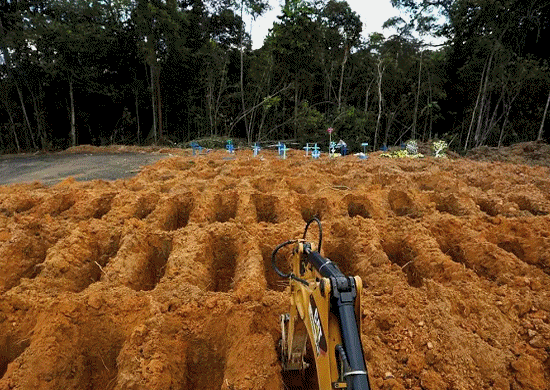
The Brazil has become the epicenter of the epidemic, surpassing Spain and Italy in cases of coronavirus.
It is now the fourth country most affected by the pandemic with 250,511 positive cases, but above all some 14,919 new infections detected in the last 24 hours.
It officially counts 20,118 deaths, figures that scientists consider largely underestimated compared to reality.
According to the Covid-19 Brasil Center, the country could actually count between 2.5 and 3.4 million positive cases.
According to a study carried out by Imperial College London in late April in 48 countries, Brazil also has the highest contagion rate in the world, with an R0 of 2.81.
President Bolsonaro against containment
While the world is taking containment measures to save its people from the Covid-19 epidemic, President of Brazil Jair Bolsonaro opposes these measures giving primacy to the economy.
Asked at the end of April that Brazil had just exceeded the figure of 5,000 dead, President Jair Bolsonaro replied: "So what? " Since the beginning of the epidemic, he has underestimated the threat and speaks of a "small flu" or a "hysteria" born of the "imagination" of the media. Economic activity must continue at all costs, says Bolsonaro, who is struggling above all to take the measure of the pandemic The head of state went to war with the governors who decided to containment when he opposed it. "Unemployment, hunger and misery will be the future of those who favor the tyranny of total isolation," he argues in a tweet.
The denial maintained by the government dissuades half of the population from confining themselves, while the calls for physical distancing launched by health professionals, governors and mayors are only moderately followed up.
Unstable government.
Because of his differences with the far-right president, the Minister of Health and doctor Luiz Henrique Mandetta was dismissed on April 17. On May 15, it was the turn of the Minister of Health, Nelson Teich, to resign, four weeks after his appointment to this crucial portfolio, for " differences of opinion". Those around him have put forward differences with the president on the treatment with chloroquine, of which Bolsonaro is a fervent defender, even if no study has yet proven its effectiveness.
Meanwhile, the contamination curve is increasing in the country of 210 million inhabitants. While the situation is already dramatic, Brazil should not experience the peak of the epidemic until June. However, several governors and mayors have already alerted to a public health system on the verge of suffocation. But during demonstrations in favor of Jair Bolsonaro, sometimes in his presence, some of his supporters called for measures of a completely different nature: a military takeover and the closure of the Parliament
In this climate of political tension, six former defense ministers urged the Armed Forces to condemn these calls for military intervention.
|
|
|
|
| Andrew Preston for DayNewsWorld |
 |
AMAZON FOREST IN BRAZIL
|
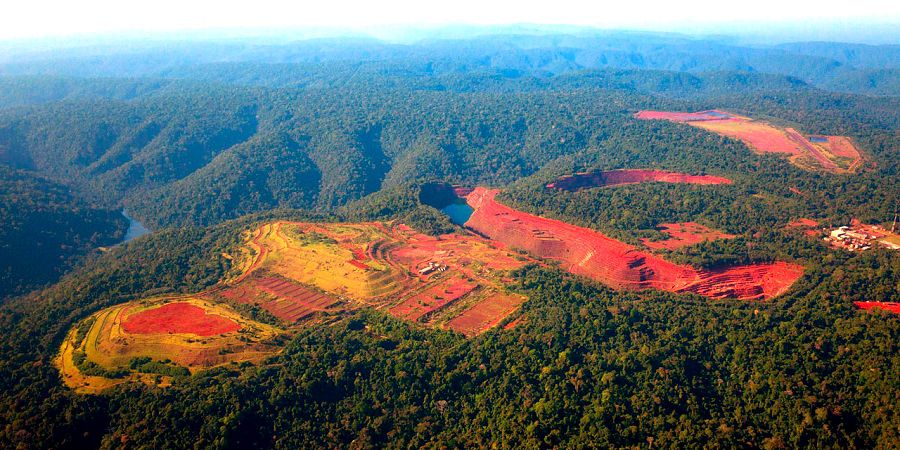
As the whole world is focused on pandemic coronavirus.la deforestation of the Amazon jungle has accelerated this year, raising fears that the record is not repeated devastation of last year.
Deforestation in the Brazilian Amazon has hit a new high in the first four months of the year, according to data released Friday by the National Space Research Institute of Brazil (INPE), which uses satellite imagery to track destruction: 1,202 square kilometers of forest (equivalent to half of Luxembourg) which disappeared from the beginning of January to the end of April 2020. Or an increase of 55% compared to the same period last year, the most high since 2015, date of the first monthly observations.
Faced with these disturbing figures, one can only wonder how Brazil intends to protect the largest tropical forest in the world, under far-right president Jair Bolsonaro. The latter is a notorious climate skeptic who advocates opening up protected land to mining and agriculture.
An almost anti-ecological policy
In 2019, for the first year of its presidency, deforestation increased by 85% in the Brazilian Amazon, with the destruction of 10,123 square kilometers of greenery, roughly the size of Lebanon. This devastation had created a worldwide stir over the future of the jungle, considered vital in the fight against climate change.
The destruction was caused by record forest fires that ravaged the Amazon from May to October, in addition to illegal logging and mining, and farming practices on protected land.
“What's more, everyone burns the forest in Brazil, both big and small owners, because it is the easiest and cheapest way to clean the land before sowing or planting crops (especially soybeans exported to Europe to feed intensive pigs) or even to put the land in meadows to raise beef cattle which, too, will be exported around the world ", specifies Michel Le Tourneau (CNRS- University of Arizona ), geographer specializing in the Amazon rainforest.
This week the army will deploy from Monday, May 11, 2020. in the Amazon to fight fires and deforestation, which last year had been violent and numerous. But the government's military strategy only deals with fires, regardless of the fact that they are often caused by illegal farmers and ranchers who cut down trees and then burn them, deplores Erika Berenguer, forest ecologist at the University of 'Oxford. "It's like taking paracetamol when your toothache is going to reduce the pain, but if it's a cavity, it's not going to cure it," she says.
For environmentalists it would be better to support more environmental protection programs. But under the Bolsonaro presidency, the environmental agency IBAMA had to face staff and budget cuts. And last month, the government sacked the agency's top environmental law enforcement official, who had shortly before authorized a police raid on illegal mines in front of television cameras.
Two tragedies at the same time
Added to this first tragedy is the epidemic of coronavirus which officially left nearly 10,000 dead among some 150,000 infected people. The state of Amazonas, the largest of the Brazilian states located to the northwest, on the border of Venezuela and Colombia, largely covered by nature, is one of the most affected. With his only intensive care unit based in Manaus, he was overwhelmed by the epidemic.
And environmentalists fear that the protection of the forest will be neglected because of the fight against the Covid-19.
|
|
|
|
| Alyson Braxton for DayNewsWorld |
 |
There are no translations available.
VENEZUELA
DEUX PRESIDENTS POUR LE PARLEMENT
|
|
Il est impératif que Juan Guaidó continue de préserver des espaces, même limités, pour assurer une transition démocratique qui arrivera tôt ou tard à Caracas
Une fois de plus, le régime de Nicolás Maduro a retiré toute son artillerie pour mettre fin au chef de l'opposition Juan Guaidó. Depuis un an, le chef de la volonté populaire a été élu président de l'Assemblée nationale et peu de temps après s'être proclamé président par intérim du Venezuela, le gouvernement Chavez ne s'est pas reposé, dans le but d'affaiblir les efforts de l'opposition.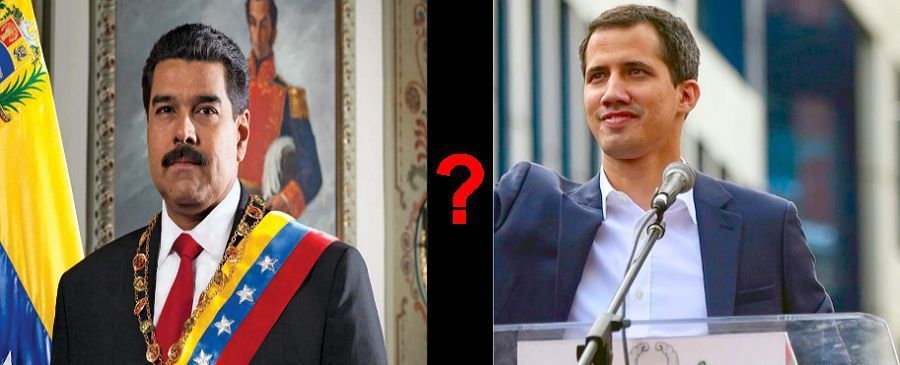
Au Venezuela, la rentrée parlementaire était en effet très attendue.
Elle a tourné à l’épreuve de force entre le gouvernement de Nicolas Maduro et l’Assemblée nationale, tenue depuis 2015 par l’opposition. « Le gouvernement a voulu prendre le contrôle du Parlement et marginaliser Juan Guaido », résume Félix Seijas, directeur de l’institut Delphos, qui juge « prématuré » d’évaluer les résultats de la stratégie engagée par le pouvoir contre le chef de file de l’opposition.
Ce dimanche 5 janvier, les parlementaires devaient élire leur président pour 2020. Un enjeu de taille : c’est parce qu’il occupait ce poste que Juan Guaido s'était autoproclamé président invoquant la vacance du pouvoir exécutif, ou plus exactement son « usurpation » par Nicolas Maduro. M. Guaido, qui briguait un deuxième mandat à la tête du Parlement pour « poursuivre le combat engagé » et venir à bout du pouvoir chaviste en place depuis vingt ans, se disait sûr d’être reconduit dans ses fonctions. Mais le dirigeant, qui a échoué à chasser Nicolas Maduro du pouvoir, se sait désormais contesté au sein même de son camp.
En fin de matinée, les forces de l’ordre déployées depuis l’aube autour du palais législatif à Caracas freinent l’entrée des députés d’opposition, dont M. Guaido, et des journalistes. Dans l’hémicycle, le tohu-bohu s’installe, les micros ne marchent pas, la séance qui démarre tourne à la foire d’empoigne. Les députés présents sont pour la plupart favorables au gouvernement ou dissidents de l’opposition.
« Coup d’Etat parlementaire » et deux présidents pour le parlement
Dans la confusion, ils désignent Luis Eduardo Parra comme nouveau président. Le vote se fait à main levée, avec pour seul registre les quelques images fournies par les caméras officielles. Agé de 41 ans M. Parra est, lui aussi, issu des rangs de l’opposition. Mais, impliqué dans un récent scandale de corruption, il a été exclu de son parti (Primero Justicia, centre droit). Il se pose désormais en rival de M. Guaidodont il conteste la légitimité Son élection a été le point culminant d'un coup d'État parlementaire chaviste. Maduro a aussitôt reconnu Luis Parra, se réjouissant de ce que Juan Guaido ait été "évincé"..
Les policiers ont donc empêché Juan Guaido, qui a pourtant tout tenter pour être présent dans l'hémicycle d'y entrer au moment du vote. Ces images de Guaido, reconnu comme le président intérimaire du Venezuela par près de 60 pays escaladant les grilles ont de quoi faire le tour du monde...
Le dernier épisode de cette journée de folie au Venezuela a été la réélection de Juan Guaido à la présidence de l'assemblée nationale par une centaine de députés de l'opposition depuis le siège du journal El Nacional, dans le centre de Caracas.
Guaido a été félicité par les Etats-Unis pour sa réélection. Il a alors convoqué la première session de l'assemblée nationale mardi. Luis Parra a fait de même.
Enfant malade de ses institutions
Avec deux présidents chefs d'Etat et trois présidents du Parlement - en incluant celui de la Constituante -, le Venezuela fait incontestablement figure d'enfant malade de ses institutions démocratiques.
Et la fragmentation politique n'est pas près de se résorber. A peine élu, Juan Guaido a immédiatement été félicité par Mike Pompeo, le secrétaire d'Etat américain tandis que son rival, Luis Parra, recevait les félicitations de Nicolas Maduro. Le Groupe de Lima, une instance régionale formée dans le but de chercher une issue à la crise au Venezuela , a condamné le recours à la force pour empêcher l'accès au Parlement. L'Equateur a protesté contre « l'usage abusif de la force par le régime de Nicolas Maduro ». Pour le gouvernement argentin, le recours à la force pour « empêcher » le fonctionnement de l'Assemblée législative revient à « se condamner à l'isolement international ». Le Brésil a accusé Maduro « de bloquer par la force le vote légitime et la réélection de Juan Guaido. » Bien Bien que très critiqué par ses voisins, Nicolas Maduro continue de jouir de l'appui de la Russie, de Cuba et de la Chine mais surtout de l'armée, clef de voûte du système politique vénézuélien.
Reste à savoir quelle forme va prendre ce nouveau schisme institutionnel au Venezuela.
Il s'agissait d'empêcher à tout prix la réélection de Guaido pour Maduro qui n'a pas hésité à comploter contre une opposition qui lutte pour se tenir au milieu de la répression, de la persécution et de l'emprisonnement. Des semaines avant un vote capital pour la survie politique de Guaidó, les députés de l'opposition et même Elliott Abrams, un responsable du Venezuela dans l'administration Trump, ont dénoncé l'existence de l'opération Alacrán, consistant en des pots-de-vin apparents à des opposants dissidents afin d'acheter les votes ce 5 janvier.
Sans aucun doute, le Juan Guaido de ce second mandat n'est pas le même qu'il y a un an, il était triomphant en remplacement d'un régime inefficace et despotique. En janvier 2019, le jeune homme politique de l'opposition a non seulement réussi à rassembler l'enthousiasme de la résistance démocratique, mais aussi un fort soutien international, avec le soutien de Washington et d'importants alliés de la région comme le gouvernement d'Iván Duque en Colombie. A cette époque, le président Duque est venu affirmer que les jours de pouvoir de Maduro étaient comptés. Il y a eu une effervescence provoquée par le propre gouvernement de Trump qui s'est décuplée lors de l'événement de masse organisé dans la ville colombienne de Cúcuta, où Guaido est apparu comme une idole, convaincu que l'aide humanitaire recueillie entrerait à la frontière devant une armée au service du Chavisme qui finirait du côté de l'opposition.
Ces jours pleins d'espoir de changement aujourd'hui semblent lointains et la propre figure de Guaido plus sourde, en raison de l'usure qu'une lutte continue mais stagnante produit contre le mur d'un gouvernement qui abuse de son pouvoir de bâillonnement et divise l'opposition. Comme les sondages l'indiquent, la plupart des Vénézuéliens veulent un changement et le président en charge a toujours le soutien d'au moins cinquante pays, mais il n'en est pas moins vrai que l'élan dont il a bénéficié a perdu de sa force.
Il est d'une importance vitale que Guaido et les opposants puissent compter sur des espaces, aussi limités soient-ils, pour assurer la possibilité d'une transition qui doit avoir lieu tôt ou tard. S'il n'y a pas d'élections libres ayant abouti à une transition, l'opportunité est toujours présente et c'est ce dont les Vénézuéliens rêvent, fatigués par la pénurie et la paupérisation croissante dans un pays où plus de quatre millions de personnes ont dû fuir. à l'étranger pour offrir une vie meilleure à leurs familles. L'exode vénézuélien est l'un des plus massifs de ces derniers temps, avec des immigrants errant à travers l'Amérique latine et émigrant même en Europe.
Les menaces, intimidations et fraudes du gouvernement Maduro ne cesseront pas. Aussi difficile que cela puisse être, il appartient à Guaido et aux députés de l'opposition de rester unis pour continuer à lutter pour un résultat qui ouvre les portes d'un véritable processus démocratique. Et à ce stade, il est clair que dans leur lutte, le soutien international est important mais non décisif pour gagner. Sans aller plus loin, la politique de Trump et de ses conseillers est passée de cris de guerre contre Maduro à des sanctions sévères qui, bien qu'elles aient nui au gouvernement de Caracas, n'ont jusqu'à présent pas réussi à le vaincre.
Un an après sa brillante ascension, Juan Guaidó a appris que la route pour retrouver la liberté est très dangereuse. Mais il y a beaucoup de Vénézuéliens qui voient toujours en lui la possibilité d'un changement.
|
|
| |
|
|
|
|
|
| Pamela Newton pour DayNewsWorld |
 |
MASSIVE MANIFESTATIONS IN COLOMBIA
|
Latin America is shaken in recent weeks by a wave of protest that reached November 21 Colombia. Hundreds of thousands of people -200,000 according to Interior Minister Nancy Patricia Gutierrez, more than a million for the organizations behind the movement- took to the streets during a national strike 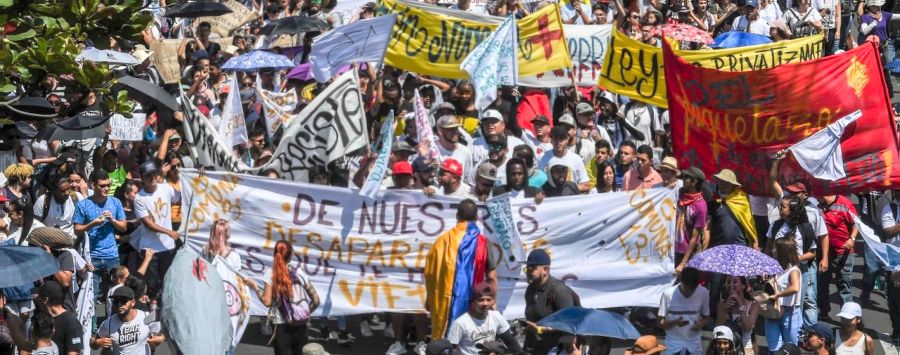 . .
Students, NGOs and opposition against President Ivan Duque.
The strike and the marches convened by workers' unions were joined by students and indigenous people, as well as environmental and opposition organizations. "There is an accumulation of situations that we hope to see revised after this day, including a major national dialogue dialogue," said the president of the General Confederation of Labor.
They marched to protest against the policies of the right-wing government of the highly unpopular President Ivan Duque and to defend the peace agreement signed with the guerrillas in 2016. Once is not customary, the Catholic Church itself had expressed his support for mobilization. Weary of corruption and insecurity, protesters denounced attempts by the government to flexibilize the labor market, weaken the public pension fund for private entities, and lower the retirement age. Students, for their part, demanded resources for public education, and the natives protective measures after the assassination of 134 of them since the arrival of Ivan Duque in power in August 2018.
"Colombia has won this historic day of citizen mobilization," said in a statement the National Strike Committee.
A dialogue with civil society
The organizers called for an "immediate" meeting with the president and called on "citizens to be ready to take further action in the street if the government persists in its indifference to the demands." In the evening, the president said he heard the protesters without answering the request for direct dialogue. "Today, Colombians have spoken. We hear them. Social dialogue has been the main banner of this government. We need to deepen it with all sectors of this society, "he said.
Clashes and three dead
At the end of this mostly peaceful mobilization, clashes between protesters and police at the end of the day led to the death of three people and 270 others were wounded. "Cacerolazo", cooks' concerts sounded all over the country denouncing the violence of riot police. In Cali, southwest of the capital, and in Bogota, the curfew has been declared.
This mobilization occurs in a turbulent climate in Latin America, with sociopolitical crises, with no common denominator, triggered in Ecuador, then Chile and Bolivia.
|
|
|
|
|
|
|
|
| Andrew Preston for DayNewsWorld |
 |
JAIR BOLSONARO LAUNCHES A NEW PARTY
IN BRAZIL
|
| Right-wing President Jair Bolsonaro, having quarreled with the party in which he was elected a year ago, launched a new party, the Alliance for Brazil, on Thursday (November 21st). .
The Alliance for Brazil puts forward in its program "respect for God and religion" and "defense of life, self-defense and family".
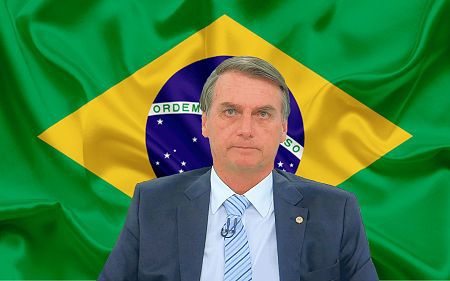 Resolutely anti-abortion, the text advocates "the defense of human life from conception", as well as "the rejection of socialism and communism". Jair Bolsonaro is the president of the new party and his eldest son Flavio, senator, the vice president. Resolutely anti-abortion, the text advocates "the defense of human life from conception", as well as "the rejection of socialism and communism". Jair Bolsonaro is the president of the new party and his eldest son Flavio, senator, the vice president.
This new party puts forward God, the family and the country dear to the evangelicals.
The official Twitter account of the party, which already has nearly 150,000 subscribers, has indeed repeatedly accompanied its tweets keywords #Good, #Family or #Patrie.
A choice of key words from Alliance for Brazil that has challenged several titles of the Brazilian press. According to a journalist from the daily O Globo, this exact triptych was the motto of the Brazilian integralist Action, active party in the 1930s openly fascist, anti-liberal and anticommunist, whose militia contributed to the abuses of the dictatorship of Getulio Vargas (1930-1945).
The Alliance for Brazil is the result of an internal war within the far right. He will be the ninth party of Jair Bolsonaro, 64, in 30 years of political life.
|
|
|
|
|
|
|
|
| Britney Delsey for DayNewsWorld |
 |
RESIGNATION AND EXILE OF THE PRESIDENT
EVO MORALES IN BOLIVIA
|
|
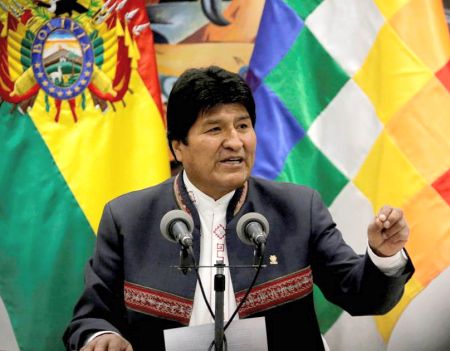
Real political earthquake in Bolivia: President Evo Morales, who has been in power for almost fourteen years, announced his resignation on Sunday (November 10th) after three weeks of intense social protest.
"I'm giving up my position as president," the 60-year-old indigenous leader, who has been in power since 2006, said on television. While the president of Bolivia had just announced the convening of new elections to "pacify the country," he had to deal with the resignations of most ministers, dozens of deputies and senators, before announcing his own.
"The course of events runs counter to my personal principles, as well as my spiritual and democratic values, and therefore it prevents me from continuing to head the state portfolio that I run," wrote the Minister of Finance. hydrocarbons, Luis Alberto Sanchez, in a letter sent to the President and published on his Twitter account,
The Bolivian army had ordered the head of state to resign, saying that such a decision would help restore calm in the country. "After analyzing the national conflict, we ask the president to give up his presidential term, to allow the restoration of peace and the restoration of stability in the country," the commander of the land forces, Williams, told reporters. Kaliman.
The wave of protest that has shaken the country for three weeks has left three dead and 383 injured.
Power holiday in Bolivia
All other senior political leaders who should have taken over as head of the country also resigned so that on Sunday night, Bolivia was facing a vacancy of power.
Evo Morales received the immediate support of the Cuban and Venezuelan presidents, who denounced a "coup d'etat" while expressing their solidarity with their "brother president" Evo Morales. Mexico offered asylum to Evo Morales and hosted Bolivian officials and parliamentarians in his embassy in La Paz .
Evo Morales was one of the last representatives of the "pink wave" that swept through the 2000s on Latin America and left to the left Brazil, Argentina, Chile, Ecuador and Venezuela. Most of these countries have since moved back to the right.
|
|
|
|
|
|
|
|
| Britney Delsey for DayNewsWorld |
 |
There are no translations available.
BOLIVIE EVO MORALES ANNONCE
DE NOUVELLES ELECTIONS PRESIDENTIELLES
|
|
Nouvelle étape dans la crise bolivienne. Le chef de l'Etat, Evo Morales, a promis dimanche 10 novembre de convoquer une nouvelle élection présidentielle.
Dix-neuf jours après le début des manifestations contre sa réélection contestée pour un quatrième mandat, Evo Morales a finalement cédé.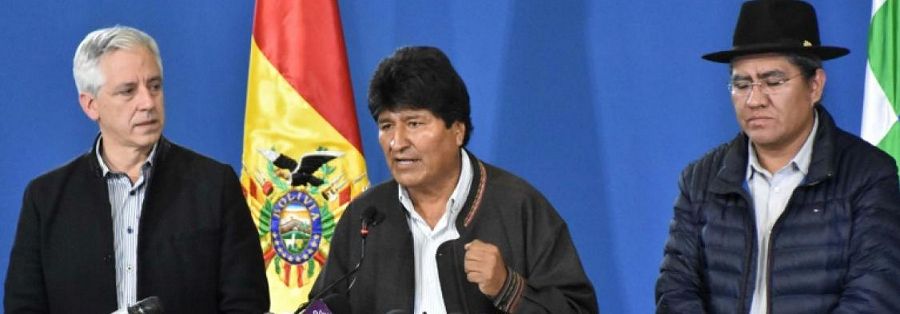
Le chef de l’Etat, à la tête du pays depuis 2006, a annoncé, dimanche 10 novembre lors d’une conférence de presse, la convocation d’un nouveau scrutin présidentiel. Le dirigeant de 60 ans avait jusque là ignoré les accusations de fraudes qui planaient sur le vote du 20 octobre.
Le secrétariat général de l’Organisation des Etats américains (OEA) avait demandé cette annulation, sur la base d’un audit de l’élection qui montrait des « manipulations du système informatique d’une telle ampleur qu’elles doivent faire l’objet d’une enquête approfondie de la part de l’Etat bolivien. L'OEA juge statistiquement peu probable qu'Evo Morales ait obtenu la marge de dix points de pourcentage nécessaire pour être élu dès le 1er tour et invite la Bolivie à se doter de nouvelles autorités électorales avant la tenue d'une nouvelle élection.
« Le premier tour des élections du 20 octobre doit être annulé et le processus électoral doit redémarrer de nouveau, avec un premier tour organisé dès que sont mises en place les conditions donnant des garanties de son déroulement, au premier rang desquelles la composition d’un nouvel organe électoral. », recommande l'OEA.
Face à ces vives critiques, Evo Morales a annoncé dimanche sa décision de « renouveler l’ensemble des membres du Tribunal électoral suprême [TSE] ». Les nouvelles élections, dont la date n’a toutefois pas été précisée, « permettront au peuple bolivien d’élire démocratiquement de nouvelles autorités », a-t-il promis. Evo Morales n’a pas précisé s’il serait lui-même candidat ou non lors du nouveau scrutin.
La situation était devenue de plus en plus tendue. En effet dix-sept jours après le début des manifestations contre la réélection de M. Morales, au moins trois unités de police se sont mutinées, dans la ville de Cochabamba (centre) tout d’abord, puis à Sucre (sud, capitale de la Bolivie) et à Santa Cruz (est), une région riche à l’est du pays et un bastion d’opposition.
Des scènes de fraternisation entre policiers et manifestants de l’opposition avaient été observées dans la capitale. Le président bolivien, Evo Morales, avait dénoncé, vendredi 8 novembre, un coup d’Etat « en cours » après les mutineries d’au moins trois compagnies de police, une rébellion contre laquelle le pouvoir excluait toutefois d’envoyer l’armée.
.« Cette décision prise, j’appelle à faire baisser la tension. », a exhorté le président de la Bolivie.
|
|
|
|
|
|
|
|
| Britney Delsey pour DayNewsWorld |
 |
There are no translations available.
MUTINERIES EN BOLIVIE OU LE PRESIDENT MORALES DENONCE UN COUP D'ETAT EN COURS
|
|
La situation est de plus en plus tendue en Bolivie. Le président bolivien, Evo Morales, a dénoncé, vendredi 8 novembre, un coup d’Etat « en cours » après les mutineries d’au moins trois compagnies de police, une rébellion contre laquelle le pouvoir exclut pour l’heure d’envoyer l’armée.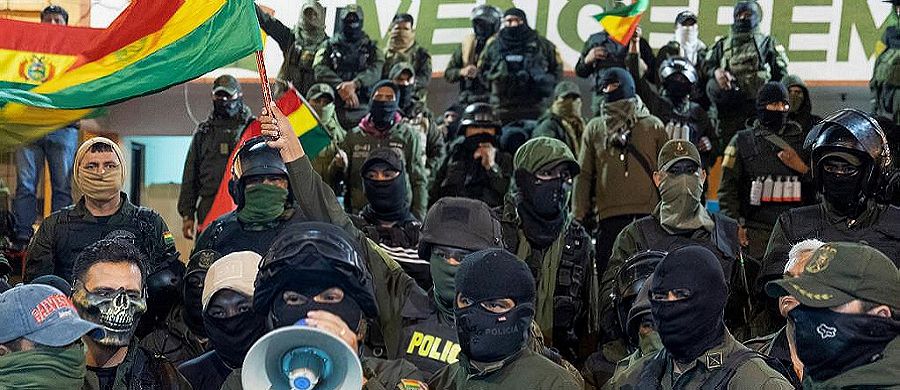
« Sœurs et frères, notre démocratie est en danger à cause du coup d’Etat en cours que des groupes violents ont lancé contre l’ordre constitutionnel. Nous dénonçons devant la communauté internationale cette attaque contre l’Etat de droit », a indiqué sur Twitter le président indigène de gauche à l’issue d’une réunion d’urgence avec plusieurs ministres et le commandant en chef des forces armées, le général Williams Kaliman.
« J’appelle notre peuple à prendre soin pacifiquement de la démocratie et de la CPE (Constitution politique de l’Etat) pour préserver la paix et la vie en tant que biens suprêmes au-dessus de tout intérêt politique », a ajouté M. Morales dans un autre tweet.
Une rébellion contre laquelle le pouvoir exclut pour l'heure d'envoyer l'armée.
Fraternisation entre policiers et manifestants
Dix-sept jours après le début des manifestations contre la réélection de M. Morales, au moins trois unités de police se sont mutinées, dans la ville de Cochabamba (centre) tout d’abord, puis à Sucre (sud, capitale de la Bolivie) et à Santa Cruz (est), une région riche à l’est du pays et un bastion d’opposition. Des scènes de fraternisation entre policiers et manifestants de l’opposition ont été observées dans la capitale.
« La police de Chuquisaca soutient les camarades qui se sont mutinés à Cochabamba, Chuquisaca (dont la capitale est Sucre) se mutine aussi avec le peuple bolivien », a déclaré à une chaîne de télévision locale un policier au visage dissimulé depuis les portes du commissariat.
Luis Fernando Camacho, le leader régional plus visible et le plus radical de l’opposition bolivienne, avait demandé samedi dernier aux militaires et à la police de se joindre à l’opposition dans cette crise déclenchée par la réélection controversée de M. Morales lors des élections du 20 octobre.
|
|
|
|
|
|
|
|
| Britney Delsey pour DayNewsWorld |
 |
There are no translations available.
L'EX-PRESIDENT DU BRESIL LULA
SORTI DE PRISON
RETOURNE DANS L'ARENE POLITIQUE
|
|
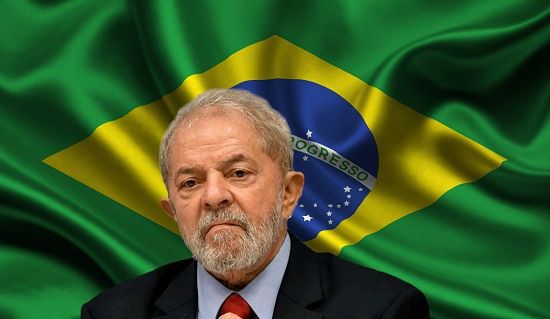
L’ex-président brésilien Luiz Inacio Lula da Silva, 74 ans, figure historique de la gauche brésilienne, incarcéré depuis plus d’un an et demi, est libre. Un juge brésilien a autorisé vendredi sa sortie de prison.
Après un arrêt rendu la veille par la Cour suprême, selon l’ordre de libération, l’ex-président a été libéré dans la foulée de l’annonce, vendredi.
Dans son ordre de libération, le juge a expliqué qu’il n’y avait plus « aucun fondement pour l’exécution de la peine » en raison de la décision de la Cour suprême de mettre fin à une jurisprudence permettant l’emprisonnement dès une première condamnation en appel, même si tous les recours ne sont pas épuisés.
A sa sortie de prison, l’ex-président a été accueilli par une véritable marée rouge de militants de gauche, après plus d’un an et demi d’incarcération. Il a chaleureusement embrassé des sympathisants et salué la foule d’un poing levéAvant de promettre de « continuer à lutter » pour le peuple brésilien. « Je veux continuer à lutter pour améliorer la vie du peuple brésilien », a lancé Lula, 74 ans, lors d’un discours chargé d’émotion.
Condamnation pour corruption passive
Condamné dans l’affaire « Lava Jato » (Lavage Express) , l’ex-président brésilien Luiz Inacio Lula da Silva (2003-2010) purgeait depuis avril 2018 une peine de huit ans et dix mois de prison pour corruption.
Il est sorti de prison à la faveur d’un arrêt rendu jeudi 7 novembre par la Cour suprême.
Les magistrats ont en effet mis fin à une jurisprudence selon laquelle une personne peut être emprisonnée avant l’épuisement de tous ses recours si sa condamnation a été confirmée en appel, ce qui est le cas de Lula. Ce dernier dispose en effet encore de recours auprès de tribunaux supérieurs.
Immédiatement après le rendu de la décision, ses avocats ont donc annoncé qu’ils allaient demander la libération de « l’ancien président emprisonné de manière injuste depuis 579 jours ».
Parmi les 5000 autres détenus qui pourraient être également concernés figurent des dizaines de personnes condamnées comme l’ex-président âgé de 74 ans dans le cadre de l’enquête anticorruption « Lavage Express ».
Lula se dit victime d’un complot
Lula avait été accusé d’avoir bénéficié d’un triplex dans la station balnéaire de Guarujá, près de Sao Paulo, en échange de contrats accordés à une compagnie du BTP. Depuis sa cellule de la Police fédérale à Curitiba (sud), il n’a cessé de clamer son innocence: il se disait victime d’un complot pour l’empêcher de revenir au pouvoir alors qu'il était donné grand favori des sondages pour la présidentielle d’octobre 2018. Mais il avait été déclaré inéligible quelques semaines avant le scrutin, laissant la voie libre au candidat de l’extrême droite Jair Bolsonaro.
Dans son blog, Jean-Luc Mélenchon (LFI) dénonçait alors « le cas le plus célèbre dans le monde de 'Lawfare', cette méthode d’instrumentalisation de la justice pour éliminer un adversaire politique ».
Un clivage persiste
La décision des 11 juges de la Cour suprême a été obtenue, après de longs débats, sur un score serré de 6 à 5 voix.
Les procureurs chargés de l' enquête anticorruption ont immédiatement affirmé que la décision de la Cour suprême allait à l’encontre « du sentiment de rejet de l’impunité » et de l’importance « du combat de la corruption, qui sont des priorités de notre pays ». Pour Gleisi Hoffmann, présidente du Parti des Travailleurs (PT), fondé par Lula en 1980, la décision de la Cour suprême a, au contraire, « renforcé la démocratie et la Constitution, menacées par le gouvernement d’extrême droite » du président Jair Bolsonaro.
Durant la campagne électorale, ce dernier n’avait pas caché son souhait de voir l’ex-président de gauche, sa bête noire, « pourrir en prison ». Jair Bolsonaro a d’ailleurs choisi pour ministre de la Justice Sergio Moro, ex-juge qui avait condamné Lula en première instance en juillet 2017.
La libération de Lula rebat les cartes politiques au Brésil où l’opposition restait inaudible depuis l’entrée en fonction du président Bolsonaro.
« Si la Cour suprême le déclare innocent dans les prochaines semaines, Lula pourrait être à nouveau candidat aux élections présidentielles de 2022 », selon Gaspard Estrada, directeur exécutif de l'OPALC (Observatoire Politique de l'Amérique latine et des Caraïbes) de Sciences Po et spécialiste du Brésil
|
|
|
|
|
|
|
|
| Alyson Braxton pour DayNewsWorld |
 |
OIL SPILL IN BRAZIL A CRIMINAL ACT ACCORDING TO JAIR BOLSONARO
|
|
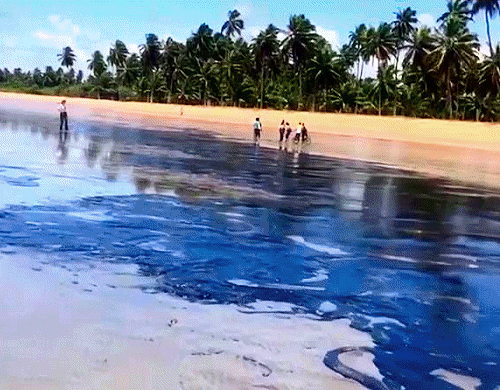
In the past three months, oil slabs have washed up on more than 200 beaches in northeastern Brazil.
Brazilian President Jair Bolsonaro was particularly concerned Sunday, November 3, 2019 by this mysterious oil spill that defiles more than 2000kms of coastline.
"What has happened and has been picked up so far is a small amount of what has been dumped.
The worst is yet to come, "he said on the TV channel Record.
The Greek tanker "Bouboulina" pointed out by Jair Bolsonaro
In addition, the Brazilian president claimed that it was a "criminal act".
According to him, "all the clues" refer to the Greek oil tanker "Bouboulina", already accused Friday by the Brazilian authorities of being responsible for the ecological disaster. The Brazilian Defense Minister had then explained to rely on satellite analyzes to bring such accusations.Delta Tankers, the Greek company managing oil tanker, however, denied.
The oil spill detected at the end of July
The Brazilian authorities detected an oil spill on July 29, 2019, more than 700 km from the coast of Paraiba State.
The oil began to appear on August 30, 2019 on the coast of Nordeste, then progressing southwards to the state of Bahia
2,000 km of paradisiacal coastline has been tainted, particularly in the Abrolhos region near Bahia, a sanctuary for humpback whales and coral formations unique in the world.
|
|
|
|
|
|
|
|
| Jaimie Potts for DayNewsWorld |
 |
PERONISM OF RETURN IN ARGENTINA
|
"The only thing that concerns us is that the Argentines stop suffering," said Alberto Fernandez, the winner in the presidential election, while his country is in the grip of a serious economic crisis.
|
|
| The outgoing President, Mauricio Macri, is ending his term with the worst economic crisis that Argentina has experienced since 2001.
Center-left Peronist candidate Alberto Fernandez won the presidential election in Argentina in the first round on Sunday (October 27th), ahead of outgoing Liberal president Mauricio Macri, according to partial results. 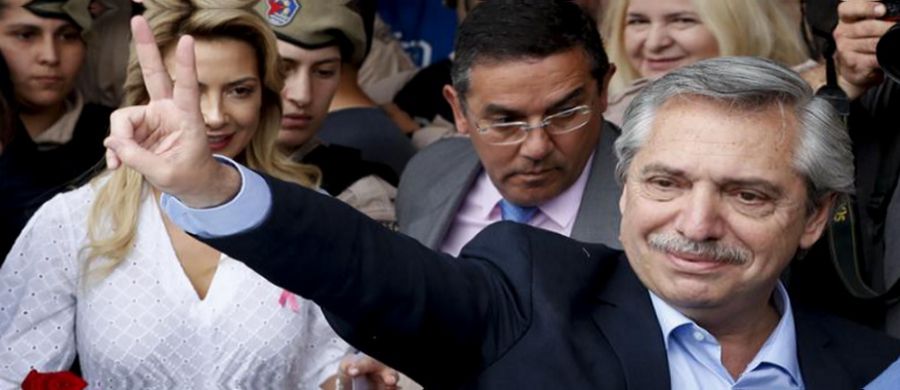
With nearly 80% of the ballots counted, the Peronist candidate obtained 47.45% of the votes, against 41.11% for Mauricio Macri. He becomes the new president of this country of 44 million inhabitants.
To win in the first round, Alberto Fernandez had to obtain more than 45% of the votes, or more than 40% of the votes with an advantage of more than 10 points on the candidate who came second. According to the Ministry of the Interior, voter turnout was over 80%.
Return of Peronism ?
"We will build the egalitarian and solidarity Argentina we dreamed of! "Responded Alberto Fernandez, a 60-year-old lawyer, whose running mate is former president Cristina Kirchner (2007-2015), currently indicted in thirteen cases.
Alberto Fernandez had promised to work to reduce the strong political polarization that crosses the country, between Peronists and supporters of Mauricio Macri, who was seeking a second term. "'We' and 'them', it's finished," assured the one who forms a ticket with the former president Cristina Kirchner (2007-2015), candidate for the vice-president. "We are in deep crisis (economic), everyone must take responsibility for what will happen," he insisted. "The only thing that concerns us is that the Argentines stop suffering." Cristina Kirchner, who was at her side, called on the outgoing president to take "all the necessary steps to alleviate the dramatic situation" in Argentina during the last days of his term.
Serious economic crisis
Indeed the next government will inherit a country on the brink of economic abyss. With 55% inflation, a high unemployment rate, 35% of Argentines living below the poverty line, the next president will have to face a critical situation. Alberto Fernández promised investments in education and scientific research, but in fact, if he is elected, he will have little leeway to turn his back on the austerity policies put in place by the outgoing center-right president.
To cope with the crisis, the Macri government had to seek the help of the International Monetary Fund (IMF) which decided to grant him a loan of 57 billion dollars. Most of this money has already been paid to the country, however, and there is almost nothing left today. The government used a large part of it to repay other debts.
With a recession of over 3% of GDP projected for 2019, Argentina will therefore need time to emerge from the crisis.
|
|
|
|
|
|
| Britney Delsey for DayNewsWorld |
 |
THE CHILEAN PRESIDENT RECULATED
BEFORE THE PRESSURE OF THE STREET
|
When he spoke of a country "at war with a powerful enemy" earlier this week, Chilean President Sebastian Piñera finally poured water into his wine in the face of social protest that left 15 dead in the country . He opted for a radical change of tone: "We have not been able to recognize the extent of this situation of inequality and abuse. I beg your pardon for this lack of vision, "admitted the president on the right. 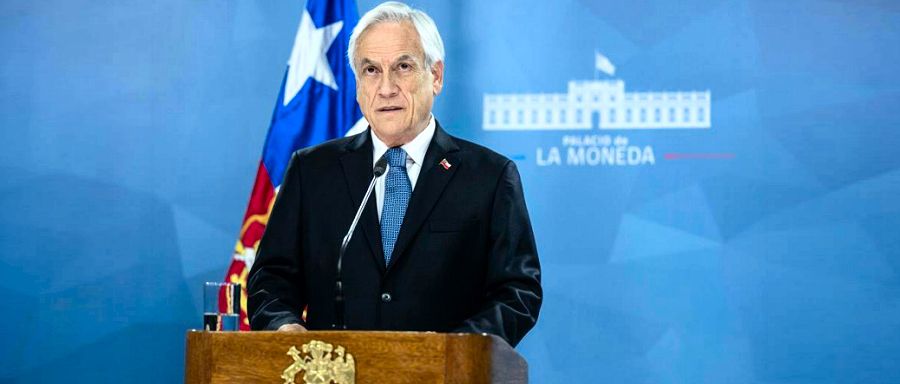
The leader of the right has mostly taken a social turn: 20% increase in the lowest pensions, revaluation of the minimum wage, lower salaries of parliamentarians, freeze the price of electricity, lower the price of drugs, increase of Taxes for the richest ... Mr. Piñera, who had gathered several presidents of political parties on Tuesday, has carried out a long series of measures that will be submitted to the vote of the Congress or approved by presidential decree. "This social agenda will not solve all the problems plaguing Chileans, but it is a necessary and significant effort to improve the quality of life of the most vulnerable," said the head of state.
But for Alberto Mayol, deputy dean of the faculty of administration and economics of the University of Santiago, "what is fundamental in the events of the last days is the failure of the current economic model. And none of the measures announced by the President comes out of this model. Announcements that may not prevent the continuation of mobilization in this country of 18 million inhabitants with glaring inequalities.
The Unitary Workers' Confederation (CUT), the largest trade union confederation in the country, and 18 other organizations have called for strikes and demonstrations on Wednesday and Thursday in Santiago. Public health unions also announced for the week a strike and protest actions before the Ministry of Health. Call that is likely to be followed .
Nearly 20,000 police and soldiers are still deployed in Chilean territory where the state of emergency is in force in the capital and nine of the sixteen regions.
This is the first time that soldiers have been patrolling the streets since the end of the dictatorship of General Augusto Pinochet (1973-1990).
|
|
|
|
|
|
|
|
| Garett Skyport for DayNewsWorld |
 |
ECOLOGICAL DRAMA
THE AMAZONIA LUNG OF THE PLANET IN FIRE
COME TO G7
|
Since the beginning of July, the Amazon rainforest has been hit by fierce fires. The The world's largest forest is burning dramatically threatening the "lung of the planet". This worrying situation takes this Friday a more political turn and is invited to the G7.
Forest fires in Brazil , which has 60% of its surface, have increased by 83% since the beginning of 2019, compared to the previous year, especially in the Amazon due to deforestation and drought.
While it is not possible to assess the extent of the damage for the time being, we know that fires affect several regions such as the state of Rondonia, Amazonas, Roraima or the state. Mato Grosso. 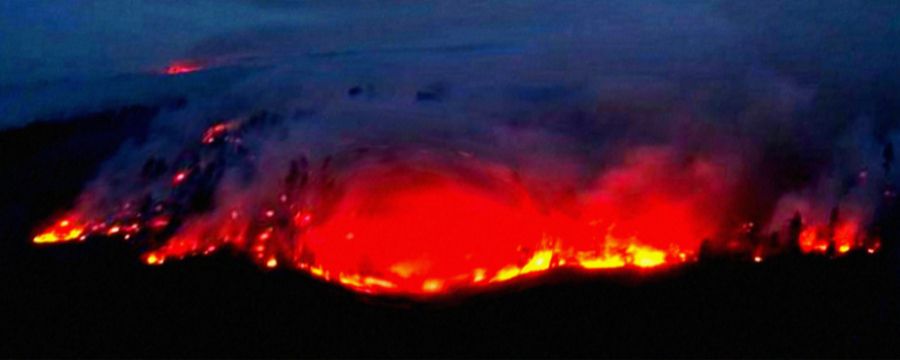
An alarming rise in fires
Forest fires have increased significantly in 2019 in Brazil compared to the past two years.
Between January and August, 72,843 fire departures were recorded in the country, against 39,759 for the whole of 2018, according to figures from the National Institute for Space Research (INPE) which observes in particular the evolution of the forest in Brazil.
The increase follows two consecutive years of decline and is the highest since 2013, according to the INPE, which uses real-time updated satellite data.
The fires were most numerous in the States occupied in whole or in part by the Amazon rainforest. The most affected state is Mato Grosso (center-west), with 13,682 fire starts, an increase of 87% compared to the whole of 2018. The rise was particularly alarming in the occupied states in total or partly by the Amazon rainforest, like that of Mato Grosso (in the center-west), with 13,682 fire starts , an increase of 87% compared to all The worrying situation of the Amazon has taken since yesterday a more political turn. Emmanuel Macron was alarmed on Twitter and asked that the subject be put on the table of the G7, which starts tomorrow. His Brazilian counterpart answered him curtly, seeing it as a sign of a "colonialist mentality out of date in the 21st century". the year 2018.
These fires are mainly caused by slash-and-burn clearings used to transform forest areas into crop and livestock areas or to clear already deforested areas. A forbidden practice however at this time of the year and despite everything very used.
Monday the people of Sao Paulo were plunged into darkness in the middle of the day. In particular, the strong winds that attracted smoke to the megacity, located in the southeast of the country, thousands of kilometers.
The government of Bolsonaro strongly criticized
The worrisome situation of the Amazon has since yesterday taken a more political turn. Emmanuel Macron was alarmed on Twitter and asked that the subject be put on the table of the G7, which starts tomorrow. His Brazilian counterpart answered him curtly, seeing it as a sign of a "colonialist mentality out of date in the 21st century".
According to the National Institute for Space Research (INPE), deforestation in July was almost four times higher than last year in the same month. Since January 2019, 72,843 fire starts have been recorded in the country, against 39,759 throughout the year 2018 an increase of 83%.
Figures questioned by Brazilian President Jair Bolsonaro, target of an avalanche of criticism of scientists. The latter insinuated Wednesday that NGOs could have caused these fires, to "draw attention" to the suspension by Brasilia of funding allocated to the preservation of the Amazon rainforest.
"It could be, yes, it could, but I do not affirm, criminal actions of these 'ONGéistes' to draw attention against me, against the Brazilian government. This is the war we are facing, "said the head of state. No source to support, however.
The president is also accused by scientists but also indigenous peoples living in the Amazon, to focus on economic growth to the detriment of people and ecology.
NGOs received, among other things, 40% of subsidies from abroad and partially suspended, notably by Germany and Norway, as well as public funding, also stopped, by the Bolsonaro climate-skeptical government.
Deforestation on the rise
According to the researcher of the Institute of Environmental Research on the Amazon (IPAM) Paulo Moutinho, the rise in the number of fires in the Brazilian Amazon is primarily caused by the increase in deforestation. Indeed, the latter questioned the argument of the government, which argues that this increase in the number of fires is due to drought, usual at this time of year.
"In 2019 we do not have a drought as severe as in previous years, but there is a substantial increase in fires. Everything indicates that the dry season is not at all the predominant factor. If there had been more drought, it would have been much worse, "he says. When asked, Brazilian Environment Minister Rocardo Salles explained that "the government has mobilized all the relief workers and all the planes (...) who are now at work with all the regional governments".
In South America, Brazil is the country most affected by forest fires in 2019, followed by Venezuela (26,453) and Bolivia (16,101).
Citizens are raising a cry of alarm.
The first to give the alert were the citizens. For a week, hashtags, Pray for Amazonia, Pray for the Amazon, are widely used on social networks. Today, a new slogan is given: Act for the Amazon
At the initiative of "Friday for Future", the environmental movement of Greta Thunberg, mobilizations in front of the embassies of Brazil are planned this Friday around the world.
|
|
|
|
|
|
|
|
| Carl Delsey for DayNewsWorld |
 |
ALERT TO DEFORESTATION IN AMAZON
AND BLOCKED SUBSIDIES
|
The Amazon Fund's donors are blocking their donations in turn: they say they are afraid of galloping deforestation because of Jair Bolsonaro's policy. Also Norway, pioneer in the ecological fight, announced through its Minister of Environment and Climate announced Thursday, August 15, blocking 30 million euros of subsidies to Brazil. 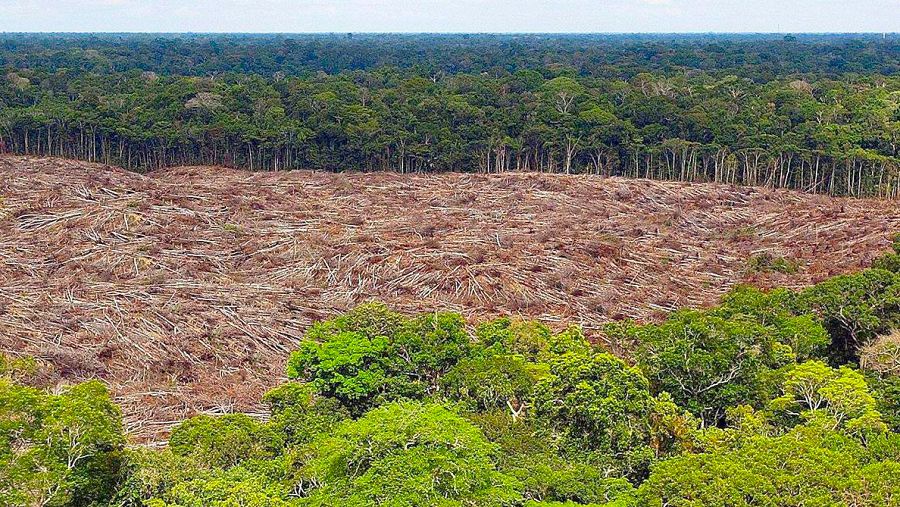
"Brazil has broken the agreement with Norway and Germany since the country suspended the board and technical committee of the fund for the Amazon," said Ola Elvestuen in the Norwegian newspaper Dagens Naeringsliv (DN ). Oslo donated no less than 8.3 billion crowns (828 million euros) each year to this fund for the Amazon, created in 2008, but, according to the Norwegian government, Brazil does not seem to "want to stop the deforestation ".
In support of the official figures: deforestation in July was four times higher in the same month in 2018. Norway, which believes that the Brazilian government can not "do this without Norway and Germany agree Said Minister Elvestuen.
Since the rise to power of far-right President Jair Bolsonaro, the German government has also announced Saturday suspending some of its grants. Berlin has thus blocked 35 million euros until the deforestation figures become encouraging again, while continuing to contribute to the Fund for the preservation of the Amazon rainforest.
Bolsonaro said his country did not "need" German subsidies. The Brazilian president insists he will not give in to "environmental psychosis" and that "the Amazon is ours, not you ».
|
|
|
|
|
|
|
|
| Kelly Donaldson for DayNewsWorld |
 |
HOMOPHOBIA FINALLY PENALIZABLE IN BRAZIL
|
| The Brazilian Supreme Court ruled on Thursday to criminalize homophobia: an important measure for sexual minorities in one of the countries with the most LGBT killings. According to the NGO Grupo Gay da Bahia (GGB), which has been collecting national statistics for four decades, there were in fact in 2017 in Brazil 387 murders and 58 suicides due to homophobia and transphobia.
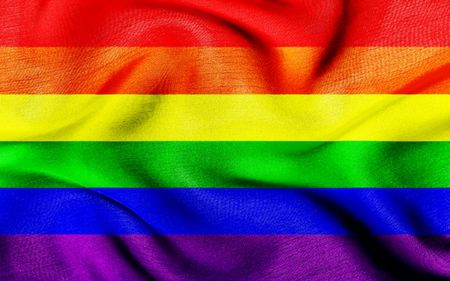 The Supreme Court ruled that homophobia was tantamount to the crime of racism. Acts of racism are punishable in Brazil from one to three years in prison or fines. As a result of the Supreme Court decision, these sentences will now be applicable to acts of homophobia. The Supreme Court ruled that homophobia was tantamount to the crime of racism. Acts of racism are punishable in Brazil from one to three years in prison or fines. As a result of the Supreme Court decision, these sentences will now be applicable to acts of homophobia.
For Brazilian President Jair Bolsonaro, the Supreme Court would have exceeded its prerogatives by criminalizing homophobia. As part of the job, an employer will "think twice" before hiring a homosexual for fear of being accused of homophobia, said Jair Bolsonaro at a breakfast in Brasilia with reporters.
"You need a balance (at the court). It's not about mixing politics and religion, "he added. The Supreme Court was "completely wrong" because it "went to the legislative field," added the president, elected thanks to the support of ultra-conservative Pentecostal churches.
The decision of the Supreme Court was acquired by eight votes against three. But, according to Jair Bolsonaro, if there had been an evangelical judge, he would have "asked for a delay" to analyze the question, leaving the vote in abeyance.
The former military had already mentioned the end of May the possibility of appointing an evangelical judge in the Supreme Court where two positions will be vacant before the end of his term in 2022.
|
|
|
|
|
|
|
|
| Jenny Chase for DayNewsWorld |
 |
LOST MILITARY RISE IN VENEZUELA
|
Is the change in Venezuela "very close" as Juan Guaido, the leader of the Venezuelan opposition, says on Monday, May 6, 2019?
"Some people have not kept their word. (...) This does not mean that they will not do it soon, "explained Juan Guaido, about the appeal launched on April 30 near a military base in Caracas.
The call of the opponent to the uprising on Tuesday has fizzled, some 25 military seeking asylum at the Embassy of Brazil and the opponent Leopoldo Lopez at the Spanish Embassy.
Juan Guaido appeared last Tuesday in a video shot around the base of La Carlota, alongside the opponent Leopoldo Lopez.
While claiming the support of a group of soldiers who had rebelled against Nicolas Maduro, he called on the armed forces, the mainstay of Venezuela's political and economic system, to join him. The army did not follow this call to the uprising. 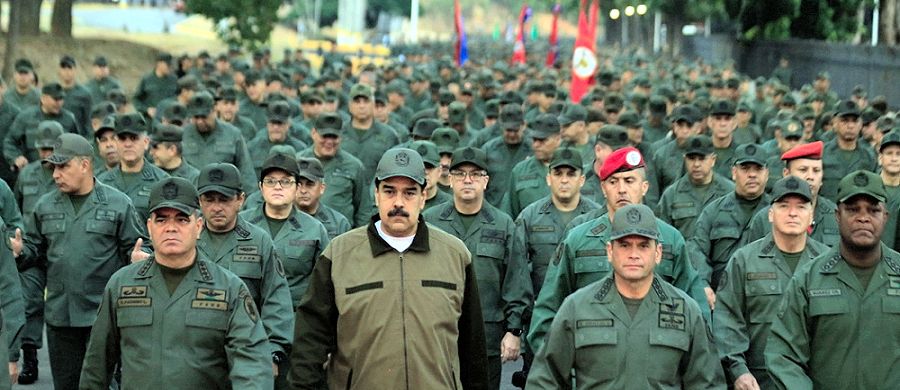
Since Juan Guaido proclaimed himself acting president on January 23, and has been recognized as such by some fifty countries, the staff has always remained faithful to Nicolas Maduro.
This time again, he did not betray the heir of Hugo Chavez so that Nicolas Maduro could affirm that this "putschist skirmish" had been foiled and promise to punish the "traitors".
But the military not only holds the oil sector, the economic heart of the country, but also several ministries: they play a crucial political role in the country.
For Juan Guido, despite the recent failed coup "It is obvious that today, discontent is widespread and the armed forces are no exception to the rule," said the leader of the opposition, recognized interim president by some fifty countries, including the United States.
"Conversations take place (...) with civilian and military officials who are ready to stand on the side of our Constitution", assured the President of the Parliament without specifying however which personalities it is. .
And to add that the head of state, "does not even trust his close guard" and his "weakness" should "soon" lead to a change of government.
"Today, we say that it is up to the armed forces and some employees (public sector, ed) to overcome their fear," added Juan Guaido
"I am very optimistic that we are very close to the change in Venezuela," said the opponent.
And to ensure to want to set up a "democratic transition, free elections".
If Juan Guaido also mentioned the possibility of "foreign cooperation to overcome the unprecedented crisis that Venezuela is going through", it seems highly unlikely that it is a military intervention of the United States.
|
|
|
|
|
|
|
|
| Jaimie Potts for DayNewsWorld |
 |
VENEZUELA
TOWARDS A NEW WORLD WAR ?
|
| The standoff between Nicolas MADURO, the Venezuelan President, secured the support of China and Turkey, and Juan GUAIDO, the main self-proclaimed opponent, with Western support, led by the US, has now lasted nearly three months.
In early March 2019, a giant blackout plunged the country into chaos, even as Venezuela is the largest oil reserve on the planet (297 billion barrels) , one of the reasons for too much desire.
But Venezuela also has significant gold reserves. In December 2018, Caracas gave the green light to Russia to start extracting gold from the country. 
Coincidence?
Authorized sources indicate that it would be this decision of the Maduro government that would have led the United States, Canada, Brazil and others, like France to recognize in a hurry, Guaido as the official President of Venezuela, at the risk of provoking a civil war in the country.
Too busy in the last decade, by the affairs of the Middle East, Syria, Iran, Libya, the United States had lowered the guard on the American continent, thus implicitly renouncing the application of the Doctrine James Monroe dictated in 1823.
The Monroe Doctrine has characterized US foreign geopolitics throughout the nineteenth and twentieth centuries.
Described as a doctrine, but in fact a set of principles defined by US President James Monroe on the occasion of his message to the Congress of December 1923, the Monroe Doctrine prohibits any intervention in American affairs over the entire world. American continent, from Alaska to Tierra del Fuego.
The doctrine of Monroe was completed in 1904 by "the corollary of Roosevelt" which has since justified US interventionism on the American continent.
It is this doctrine of Monroe that justified all US responses to the "endangered, considered as its backyard".
The case of the Bay of Pigs / Cuba (1961), brilliantly managed by President John Fitzgerald Kennedy, was one of those responses.
As everyone knows, history stutters!
Because what is going on in Venezuela is starting to look like the events of the Cold War in CUBA's Bay of Pigs.
On March 24, 2019, about a hundred soldiers and 35 tons of equipment were landed in Venezuela by the Russians. A Cossack leader even claimed that he had 400 paramilitaries for this operation. Putin had warned however before getting there!
Admittedly, the Venezuelan opposition immediately downplayed the case, claiming that it was only an attempt at intimidation.
It does not seem so, considering the turn that has taken this incident since.
Initially denied by the Kremlin spokesman, military escalation has not stopped since.
Because Russia would have a lot to lose in the event of a change of regime in Caracas.
The second largest foreign investor, Russia has long wanted to strengthen its military ties with Venezuela, with the intention of eventually having a military base on the Orchila Island, located 2400 km from the coast of Florida in the Caribbean Sea: an unprecedented strategic threat for the United States ....
In December 2018, the American newspaper " The Drive " published satellite images of the Venezuelan island that reveal that changes have already taken place on the island. For example, the appearance of an airstrip for operations with Russian bombers TU-160, capable of carrying nuclear-headed cruise missiles.
Moreover, joint exercises between Russia and Venezuela have already taken place, in accordance with international law, following the instructions for the use of airspace: Russian aircraft were accompanied by Norwegian fighters F-16 ?? Guarantee ??
Not sure ! when it is known that Norway, which has just hosted the important NATO exercise Trident Junctuer, is increasingly concerned about the unpredictability of its neighbor (200 km of common border), which strengthens after day its military capabilities in the Arctic. 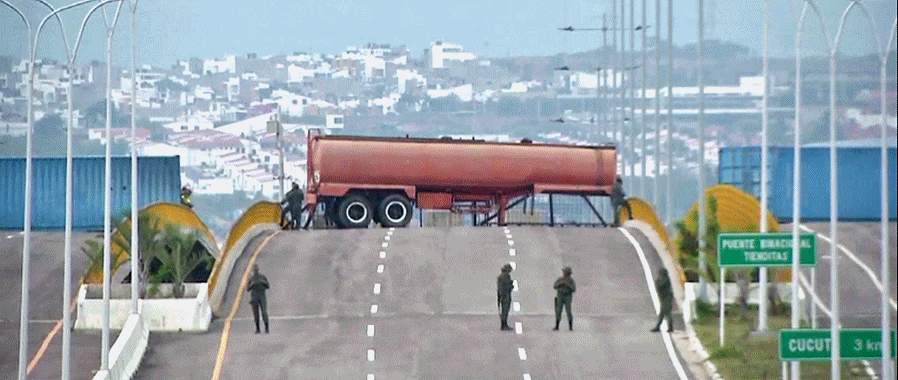
The military base of the island of Orcha should eventually allow Russian TU-160 bombers not to return systematically to Russia, supplies can therefore be done in flight.
The American response has gone up a notch.
The US Air Force is already carrying out "its integration of the theater of flight training" from the station of the RAF of London, this with the aim "to use this base as the advanced place of operation for B-52 bombers ".
At the same time, the US Air Force launched its bombers in the Pacific from Andersen base in Guam Island, which led to the preparation of two Sukoï SU-27 combat aircraft for interception of B-52 bombers.
Revisiting the principles of Monroe's theory very appropriately, John Bolton, Security Advisor to the White House has just recalled that any act of provocation in Venezuela would now be considered "as a threat" to peace and international security.
For his part, Donald Trump said bluntly that Russia should leave Venezuela, quickly ... on pain of paying the price ...
As we can see, the drums of war are beating more and more strongly, especially since the United States, like Russia, have begun to withdraw their participation in the INF Treaty, signed in 1987 by Gorbachev and Reagan, following the Euromissile crisis, with the aim of combating the proliferation of nuclear weapons.
China has just called for calm; but we know in what part of the struggle Chinese President Xi Jinping is engaged with Donald Trump and we also know that she will not let the United States attack Iran.
And Europe in all this?
In the current state of the European debate, the Europe that protects is only a mild dream, France, which is the only European State to dispose of nuclear weapons (with the exception of Great Britain, which will certainly switch to Brexit) being mired in an endless debate, unrealistic provoked by the successive serious mistakes of Emmanuel Macron since his accession to the Elysée.
In November 2017, NATO Secretary General Jens Stoltenberg called, at a meeting with NATO ministers, European countries to plan their civilian infrastructure for the needs of the army. By slamming heels, the EU has solemnly pledged to rehabilitate its transport networks, including railways, to support rapid transport of armored vehicles and heavy equipment, delegating key roles to national governments and the private sector. highway ?).
Given the state of maintenance of the French road network and the public finances of France ... the appointment does not seem assured !
|
|
|
|
|
|
|
|
| Clara Mitchell for DayNewsWorld |
 |
JUAN GUIDO REVOKES FROM HIS POST OF PRESIDENT OF PARLIAMENT AND DECLARES UNREALIDIBLE
|
Juan Guaido declared himself acting president of the country on 23 January and has been recognized as such by some 50 countries, including the United States.
Two months later, Venezuela still faces the worst crisis in its history with a slow economy, a devalued currency and shortages.
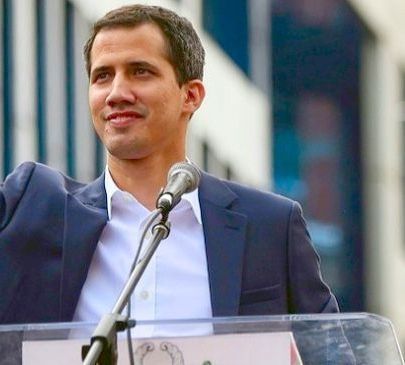 Speaker of the Venezuelan Parliament Juan Guaido, also leader of the opposition, was dismissed Thursday from his post and will not be able to hold elective office for 15 years for alleged corruption, Venezuelan authorities said. Speaker of the Venezuelan Parliament Juan Guaido, also leader of the opposition, was dismissed Thursday from his post and will not be able to hold elective office for 15 years for alleged corruption, Venezuelan authorities said.
The Comptroller General of the Republic Elvis Amoroso, responsible for ensuring the transparency of the administration in Venezuela, has decided "to prohibit the exercise of any elective office to the citizen (Juan Guaido) for the maximum period provided for by law" he told state television at a press conference held Thursday in Caracas.
According to Elvis Amoroso, Juan Guaido does not justify, in his declarations of patrimony, certain expenses realized in Venezuela and abroad with funds coming from other countries. "He made more than 91 trips out of the territory for a cost higher than the 310 million bolivars (about 94,000 dollars at the current rate), without justifying the origin of these funds," explained the Controller.
Former presidential candidate Henrique Capriles of 2013 was sanctioned in the same way and declared ineligible. Consequence: he could not come later in 2018.
The rivalry between the two "presidents" sharpen: Maduro and his government accused Juan Guaido and his right-hand man, MP Roberto Marrero, arrested on March 21 by the intelligence services, to foment terrorist operations with the money of the state blocked by US sanctions.
|
|
|
|
|
|
|
|
Alyson Braxton for Daynewsworld
|
 |
There are no translations available.
L'ERREUR DE LA DICTATURE A ETE DE TORTURER SANS TUER
SELON LE PRESIDENT BOLSONARO AU BRESIL
|
|
Le président du Brésil Jair Bolsonaro a ordonné, lundi 25 mars, que soit commémoré le 55e anniversaire du coup d'Etat du 31 mars 1964. Coup d'Etat qui avait installé une dictature militaire de 21 ans.
« Notre président a ordonné au ministère de la Défense d'organiser les commémorations qui se doivent liées au 31 mars 1964 », a déclaré à la presse Otávio Régo Barros au palais présidentiel de Planalto.
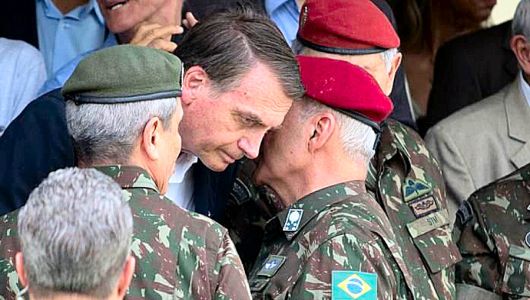 Jair Bolsonaro, ex-capitaine chez les parachutistes et au gouvernement composé pour moitié de militaires, n'a jamais caché sa nostalgie de l'époque de la dictature. Interrogé sur ce que recouvraient ces célébrations, le porte-parole a répondu : Jair Bolsonaro, ex-capitaine chez les parachutistes et au gouvernement composé pour moitié de militaires, n'a jamais caché sa nostalgie de l'époque de la dictature. Interrogé sur ce que recouvraient ces célébrations, le porte-parole a répondu :
«Ce que les commandants choisiront dans leurs garnisons, et dans le contexte dans lequel elles doivent être réalisées.»
« Le président ne considère pas le 31 mars 1964 comme un coup d'Etat militaire », a précisé le porte-parole. « Il considère que la société rassemblée, sentant le danger que le pays était en train de vivre », a réussi ce jour-là en unissant « des civils et des militaires, à récupérer le pays et le remettre en marche ».
Sans cela, « aujourd'hui nous aurions ici un type de gouvernement qui ne serait bon pour personne », a-t-il ajouté.
Le militariste Bolsonaro a acquis une partie de sa popularité grâce à son goût immodéré pour l'autorité, multipliant les déclarations polémiques. En juin 2016, il avait affirmé à la radio Jovem Pan :
« l'erreur de la dictature a été de torturer sans tuer ».
Lors de la séance de la Chambre des députés où a été votée en avril 2016 la destitution de la présidente Dilma Rousseff (ex-guérillera torturée par les militaires), Bolsonaro avait dédié son vote au colonel qui était le chef du renseignement sous la dictature, accusé d'au moins six assassinats sous la torture.
« A la mémoire du colonel Carlos Alberto Brilhante Ustra, la terreur de Rousseff (...), je vote oui! ». En 2011, Dilma Rousseff avait interdit à l'armée quelque commémoration que ce soit de la dictature.
Selon la Commission nationale de la vérité, il y eut durant la dictature brésilienne pas moins de 434 assassinats et des centaines de détentions arbitraires et de tortures d'opposants.
A la suite de l'éviction du président Joao Goulart en 1964, cinq généraux se sont succédé jusqu'en 1985 à la tête de la junte avec un parti officiel (Arena) et une opposition muselé (MDB).
Le régime a connu un durcissement en 1968 avec l'interdiction des manifestations, la censure et le jugement des prisonniers politiques par des tribunaux militaires.
|
|
|
|
|
|
|
|
| Jenny Chase pour DayNewsWorld |
 |
There are no translations available.
DEMISSION DU CARDINAL CHILIEN EZZATI
|
|
Le pape a accepté la démission du cardinal Ezzati, accusé d’avoir dissimulé des actes de pédophilie.
Tout comme pour le cardinal Barbarin, des poursuites ont aussi été engagées contre le cardinal Ezzati, pour son silence sur des actes commis depuis les années 1980.
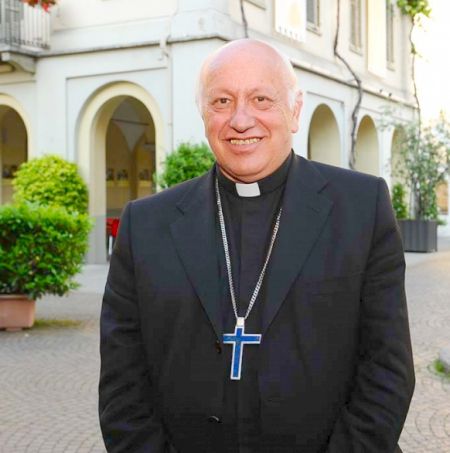 Si la démission du cardinal français a été refusée - au nom de la présomption d’innocence en début de semaine par le pape, celle du cardinal chilien a été validée au cours du week-end. Si la démission du cardinal français a été refusée - au nom de la présomption d’innocence en début de semaine par le pape, celle du cardinal chilien a été validée au cours du week-end.
Le pape François a en effet accepté la démission du cardinal chilien Riccardo Ezzati, a annoncé samedi 23 mars le Vatican, cinq jours après avoir dit non à la demande du cardinal Barbarin.
L’archevêque de Santiago avait, de son côté, présenté cette démission en mai 2018, comme l’ensemble des évêques chiliens, à la suite d’une série de scandales d’agressions sexuelles à l’encontre de mineurs.
Mgr Ezzati, le plus haut dignitaire de l’Eglise catholique dans le pays, avait gardé le silence et était notamment soupçonné d’avoir couvert deux prêtres accusé d’avoir abusé de mineurs.
Il avait également couvert M. Karadima, ancien formateur charismatique de prêtres, qui avait été reconnu coupable en 2011 par un tribunal du Vatican d’avoir commis des actes pédophiles dans les années 1980 et 1990. Il a été contraint de se retirer pour une vie de pénitence.
Le Chili est l’un des pays les plus gravement touchés par le scandale des agressions sexuelles commises par des membres du clergé et de leur gestion par les autorités ecclésiastiques.
En mai 2018 le pape avait convoqué tous les évêques chiliens au Vatican pour trois journées d’introspection, à l’issue desquelles tous les évêques avaient remis leur démission. Depuis, le pape argentin avait accepté sept de ces démissions.
En octobre, François avait accepté, avec réticence, la démission du cardinal américain Donald Wuerl, archevêque de Washington, soupçonné par un jury populaire d’avoir étouffé un vaste scandale d’agressions sexuelles en Pennsylvanie...
Le jugement du pape François ne peut pas résister à la lame de fond soulevée par les scandales de pédophilie au sein de l’Eglise.
|
|
|
|
|
|
|
|
| Britney Delsey pour DayNewsWorld |
 |
TOWARDS AN OUTCOME OF A PACIFIC CRISIS
LESS AND LESS PROBABLE IN VENEZUELA
|
| In Venezuela, the standoff continues between the incumbent president Nicolas Maduro and his opponent, self-proclaimed interim president Juan Guaido. The situation has become increasingly critical since the country is hit by a huge blackout. The country is sinking into a deep crisis.
Since Thursday, March 7, the country is plunged into the dark, economic activity is stopped and health facilities are paralyzed so that in less than 48 hours, fifteen people with kidney disease died because of lack of dialysis. The people who are lacking everything are exhausted.
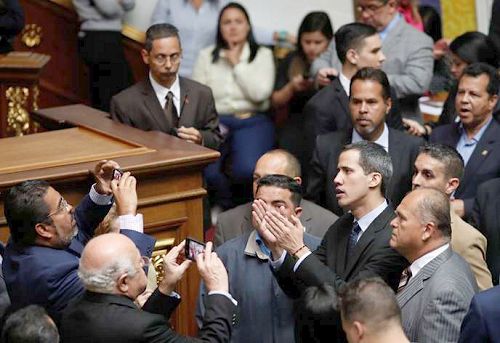 The government, increasingly isolated on the international scene, denounces the "cyber attacks" of the United States to destabilize the country while the opposition attributed this failure to government mismanagement, in a country accustomed to power outages although never of this magnitude. The government, increasingly isolated on the international scene, denounces the "cyber attacks" of the United States to destabilize the country while the opposition attributed this failure to government mismanagement, in a country accustomed to power outages although never of this magnitude.
What will be the outcome of this crisis? Who of President Nicolas Maduro or his rival Juan Guaido will win the fight for power?
Juan Guaido and the peaceful transition?
Nicolas Maduro has only 14% positive opinions, according to the Datanalisis survey institute. The current conditions are such that a large part of the population sees Juan Guaido as a peaceful and democratic solution. But will it succeed?
Admittedly the opponent has gained such renown that the authorities could not afford to stop him on his return when he had violated last week a ban on leaving the territory.
Juan Guaido then tried to bring into the country tons of humanitarian aid offered mainly by the United States and blocked by the armed forces on the Colombian border. But Mr. Maduro and his army held out - the head of state saw it as a disguised attempt at outside military intervention.
Following this failure, the parliamentarian immediately promised to intensify the popular mobilization and diplomatic isolation of the Maduro government.
"I am announcing a popular tour and the diplomatic isolation of the Maduro government. "I am announcing a tour, my tour and that of all the deputies (across the country) to make you come to Caracas in a definitive way", he launched on March 9 in front of thousands of partisans descended in the streets of the capital.
"After the end of this tour (...) we will announce the date when all together we will walk on Caracas", he added. He promised a march on the capital. He has even said he is ready to support the strike of the public sector unions.
In the army returns the role of referee ...
This increased pressure has the sole purpose of bringing the high command of the army to let go Maduro and, ultimately, to bring down the regime, paving the way for a peaceful transition and elections. According to Datanalisis, Nicolas Maduro has only 14% positive opinions, but he can always count on the loyalty of the army.
While 700 military and police have already joined Juan Guaido in recent weeks and defected across the border with Brazil and Colombia, no senior officer has gone on his side. Venezuela has about 365,000 military and police officers. To convince, it would require a negotiation granting "specific guarantees" to officers involved in corruption and human rights violations.
Under these conditions, the transition would take longer but it would increase the probability that it would be non-violent, according to the expert Michael Shifter.
On the other hand "The scenario of a military intervention led by the United States seems every day less probable but can not be dismissed according to the evolution of the situation", warns this analyst.
US sanctions - including the oil embargo - further aggravate the difficulties in the daily life of the population. Before possibly causing the fall of the government, they risk, "sooner or later, to damage the image of Guaido," warns Luis Vicente Leon, Venezuelan analyst and director of the institute Datanalisis. Maduro bets in a sense on the "disenchantment" of Mr. Guaido that could occur in the long run, according to political scientist Luis Salamanca.
The more time passes and the more democratic and peaceful transition to exit the country from the crisis seems to move away.
|
|
|
|
|
|
|
|
| Joanne Courbet for DayNewsWorld |
 |
RISK BACK FOR JUAN GUAIDO
INTERIM PRESIDENT IN VENEZUELA
|
| Opponent Juan Guaido has announced his return to Caracas for Monday after touring South America.
He also called on his supporters to protest and warned Nicolas Maduro's regime against the temptation to "kidnap" him on his arrival.
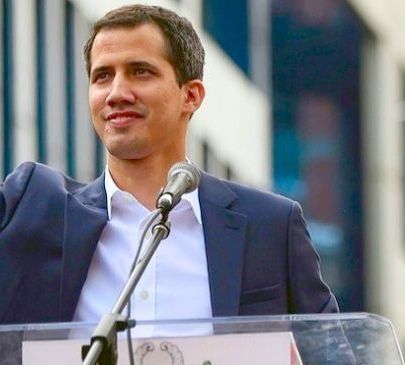 Juan Guaido, who announced his return to Caracas on Monday, after touring Colombia, Brazil, Paraguay, Argentina and Ecuador, warned Nicolas Maduro's regime against the temptation to "kidnap" him on his arrival . Juan Guaido, who announced his return to Caracas on Monday, after touring Colombia, Brazil, Paraguay, Argentina and Ecuador, warned Nicolas Maduro's regime against the temptation to "kidnap" him on his arrival .
"Trying to kidnap me would be one of the last mistakes he would make."
Having defied the ban on exit, the leader of the opposition, recognized interim president by fifty countries, announced his return Monday, March 4 in Caracas.
He told his wife Fabiana, in front of a Venezuelan flag that he was returning to Venezuela.
"I announce my return to the country. I call on the Venezuelan people to gather all over the country tomorrow at 11 am, "writes Juan Guaido.
He asks his supporters to follow "carefully verified accounts" on social networks to learn about the gathering places.
"Tomorrow we have a historic challenge" to note:
"We are going back to the country, to our functions. And of course there is a risk, "he said.
"The armed forces must assume their historic responsibilities," he continued, referring to the hundreds - "700" according to him - members of the police who have defected since 23 February to "side with the the Constitution ".
Juan Guaido had left Venezuela illegally about ten days ago to reach Colombia to attend a mega concert at the border and try to bring humanitarian aid shipments into the country - without success.
For this he had defied a ban on leaving the country.
President Maduro, for his part, said that as head of Parliament, his rival must "respect the law" and that if he returned to the country, he should "be accountable to justice".
Indeed Mr. Guaido is the subject of an investigation for "usurpation" of power being prohibited from leaving the territory.
President Nicolas Maduro, faced with the return of Juan Guido, faces a challenge :
Should he stop him or let him in safely ?
The US government has warned that if anything happens to Mr. Guaido, "there will be consequences".
|
|
|
|
|
|
|
|
| Joanne Courbet for DayNewsWorld |
 |
BATTLE AROUND HUMANITARIAN AID
IN VENEZUELA
|
| At a time when a large part of the Venezuelans lack everything, the standoff between the Venezuelan army, faithful to President Maduro, and self-proclaimed President Juan Guaido continues.
The military is determined to prevent the entry of thousands of opponents led by Juan Guaido to bring humanitarian aid to the country. They claim to defend "territorial integrity" of Venezuela.
Indeed, at the call of Juan Guaido, recognized as interim president by fifty or so countries, some 700,000 volunteers, according to the opposition, intend to board buses on 23 February at border crossings. Purpose: to take delivery of humanitarian aid sent by the United States and Brazil.
 On Saturday, Brazil will also make humanitarian aid available in Boa Vista and Pacaraima (North) "in cooperation with the United States". Dozens of tons of food and medicine sent by the United States are stored in Cucuta where Colombian Presidents Ivan Duque and Chilean Sebastian Piñera plan to go on Friday to show their support for the operation. Food and medicine will be available to be collected "by Juan Guaido's (self-proclaimed) government, by Venezuelan trucks driven by Venezuelans," said Brazilian presidential spokesman Otavio Rego Barros. On Saturday, Brazil will also make humanitarian aid available in Boa Vista and Pacaraima (North) "in cooperation with the United States". Dozens of tons of food and medicine sent by the United States are stored in Cucuta where Colombian Presidents Ivan Duque and Chilean Sebastian Piñera plan to go on Friday to show their support for the operation. Food and medicine will be available to be collected "by Juan Guaido's (self-proclaimed) government, by Venezuelan trucks driven by Venezuelans," said Brazilian presidential spokesman Otavio Rego Barros.
Military blockade.
"Yankees' presidents, like those in Colombia and Chile, who are encouraging provocation and violence against Venezuela, are calling for an assault on the Venezuelan border next Saturday," responded Nicolas Maduro. .
But the borders will remain closed, warned the Minister of Defense. "The army will remain deployed and alert along the borders to prevent any violation of the integrity of the territory," warned Defense Minister Vladimir Padrino at the head of an army that reaffirmed on Tuesday its "loyalty flawless "towards Nicolas Maduro. And this despite the tweet sent by Juan Guaido on Tuesday to each of the military leaders of the border regions:
"On February 23, you must choose between serving Maduro and serve the homeland," he wrote them. Despite the US president's call on the Venezuelan army to join Juan Guaido and let humanitarian aid in. "You will not find a safe harbor, no escape route and no way out. You will lose everything, "he told the Venezuelan and Cuban community of Miami on February 18 .
"The eyes of the whole world are on you today," warned Donald Trump.
For his part, Nicolas Maduro announced the shipment Wednesday of 300 tons of medicines purchased from Russia, ally Caracas, in addition to 933 tons recently purchased from China, Russia and Cuba.
On Friday, a concert with international artists will be held in Cucuta, organized by British billionaire Richard Branson to collect donations. The Chavista power responded by announcing the organization at the same time, on the Venezuelan side, of another concert "to denounce the brutal aggression to which the Venezuelan people are being subjected". Calling Juan Guaido "a clown who claims to be acting president," Nicolas Maduro challenged him to "call elections" to "reverse the situation with the vote of the people."
Preferring "a peaceful transition", Donald Trump nevertheless reiterated that "all options" were on the table to drive Maduro off and put an end to the humanitarian crisis that drove more than 2.3 million people into exile, according to UN.
|
|
|
|
|
|
|
|
| Joanne Courbet for DayNewsWorld |
 |
UNCERTAIN POLITICAL CRISIS IN VENEZUELA
|
| More than a week after the self-proclaimed Speaker of the Parliament, Juan Guaido, as "acting president", the crisis persists in Venezuela compounding the risk of civil unrest.
While the elected president, Nicolas Maduro, has proposed early parliamentary elections to get out of the crisis, Juan Guido, he calls for a new presidential election, estimating the previous irregular.
 On Wednesday, thousands of Venezuelans demonstrated at the call of Juan Guido to convince the army to join the opposition while the Chavist leader who oversaw military maneuvers in Caracas, urged the army to face the calls to the rebellion of the United States and the self-proclaimed president. On Wednesday, thousands of Venezuelans demonstrated at the call of Juan Guido to convince the army to join the opposition while the Chavist leader who oversaw military maneuvers in Caracas, urged the army to face the calls to the rebellion of the United States and the self-proclaimed president.
"You want to govern a puppet of 'gringos' in Venezuela?" Maduro said afterwards in a meeting with young Venezuelans.
Faced with the duel between the two presidents, the international community is divided.
The divided international community
The opponent Juan Guido is indeed supported by the United States, the first to have recognized him as interim president. The two men, who spoke by phone before the mobilization on Wednesday, "agreed to stay in regular contact to support the return to stability of Venezuela." "The fight for freedom has begun! "Tweeted, in stride, the tenant of the White House. Thirteen other countries, led by the United States, also officially recognize Guaido.
Following suit, notably, in the United States, members of the European Parliament voted Thursday, January 31, a resolution recognizing Venezuelan opponent Juan Guaido "legitimate acting president" of his country and calling on all EU countries to do likewise.
MEPs also provided their "full support for the [program]" of the Speaker of the National Assembly and self-proclaimed interim President, Juan Guaido.
Nicolas Maduro, supported by the army, is supported and recognized by an overwhelming majority of the 193 UN member states, including Russia and China, permanent members of the Security Council, who denounce US interference .
The asphyxiation of the Venezuelan economy
While Venezuela, once the richest in Latin America, has sunk economically and its people suffer from serious shortages of food and medicine, the United States is increasing their economic pressure by punishing the oil group PDVSA % of revenues of the Venezuelan State (freezing of assets abroad and prohibition of any trade with entities) . At the same time, the United States gave Juan Guaido control of Venezuelan bank accounts on US soil.
In addition, the Bank of England, in possession of part of the Venezuelan reserves in gold, refused to return € 1.05 billion of ingots to Caracas while, according to rumors, a Russian plane, arrived empty in Caracas , should leave the country, probably to Russia, with 20 tons of gold, or 730 million euros and 20% of gold funds held by Venezuela ...
While the nine days of mobilizations have already resulted in about forty deaths and more than 850 arrests, according to the figures of the United Nations, that foreign journalists have been arrested, new demonstrations of both political camps are planned Saturday.
|
|
|
|
|
|
|
|
| Joanne Courbet for DayNewsWorld |
 |
TWO PRESIDENTS AT THE HEAD OF VENEZUELA
|
| Opposition President Juan Guaido proclaimed himself "Acting President" of the Latin American country on Wednesday. The United States and its allies have recognized it, but President Nicolas Maduro, as well as other countries, denounce a coup organized by Washington.
 A succession of political events A succession of political events
Events have rushed in this country undermined by hyperinflation, food shortages, dependent on its oil rent and subject to heavy penalties.
Nicolas Maduro, heavyweight of the Chavista regime, was re-elected in May 2018 with 68%.
The elected President was sworn in on January 10, 2019 for this new term. But the opposition challenged the polls, denouncing irregularities and pressure on voters so that the National Assembly, headed by Juan Guaido, declared illegitimate this new mandate from January 5.
And Wednesday, January 23, President of the Venezuelan Parliament Juan Guaido has proclaimed himself "president" ad interim.
"I swear to formally assume the powers of the national executive as president-in-office of Venezuela to achieve (...) a transitional government and obtain free elections," Juan Guaido said Wednesday in front of tens of thousands of supporters gathered in Caracas.
This is the most acute political crisis in Venezula's recent history. This unprecedented political situation provokes violent clashes between opponents and supporters of Nicolas Maduro's regime,
Juan Guaido, self-proclaimed president, supported by the United States and its allies in the region.
After the self-proclamation of the president of the Venezuelan parliament many countries have recognized him as interim president of Venezuela. Donald Trump immediately announced in a statement that he officially recognized Juan Guaido as "interim president of Venezuela".
"Today, I officially recognize the president of the Venezuelan National Assembly, Juan Guaido, as interim president of Venezuela," he said. Believing that the National Assembly was "the only legitimate branch of the government," Trump recalls that the latter declared President Nicolas Maduro "illegitimate".
"The people of Venezuela bravely spoke against Maduro and his regime and demanded freedom and the rule of law. I will continue to use all the economic and diplomatic power of the United States to push for the restoration of Venezuelan democracy. "Said the tenant of the White House.
Canada, Colombia and Brazil, Washington's allies in the region, have followed suit, as well as Argentina, Chile, Paraguay and the Secretary General of the Organization of American States (OAS), Luis Almagro.
Nicolas Maduros, president-elect, supported by China and Russia
For its part, the Chavist power denounced "an attempted fascist coup" fomented from the United States.
Inside, President Maduro can count on the support of the Venezuelan army.
"We, soldiers of the homeland, do not accept a president imposed in the shadow of obscure interests or self-proclaimed in the margins of the law.
The army defends our Constitution and is the guarantor of national sovereignty, "the defense minister wrote on Twitter.
Outside China and Russia, both permanent members of the UN Security Council, supported him.
"Destructive foreign interference, especially in the current extremely tense situation, is unacceptable (...)
This is a direct path to arbitrariness and bloodshed, "said the Russian Foreign Ministry.
Cuba, led by President Miguel Díaz-Canel, Mexico's leftist President Andrés Manuel Lopez Obrador Bolivia's Socialist Evo Morales also supported the Chavista president.
On this historic date, which commemorates the 61st anniversary of the fall of the Marcos Perez Jimenez dictatorship, on 23 January 1958, opponents and supporters of the Socialist president wish to count their strength. Violent clashes erupted causing seven deaths.
Donald Trump assured that "all options" were on the table if Nicolas Maduro resorted to force against opposition protests.
|
|
|
|
|
|
|
|
| Alize Marion for DayNewsWorld |
 |
66 DEATH AND 71 INJURED IN FIRE
OF A FLOOD IN MEXICO
|
| At least 66 people were killed and 71 injured by burns in the fire of a pipeline that leaked where residents came to steal fuel in eastern Mexico, officials said Friday in the middle of an offensive the Mexican government against fuel theft.
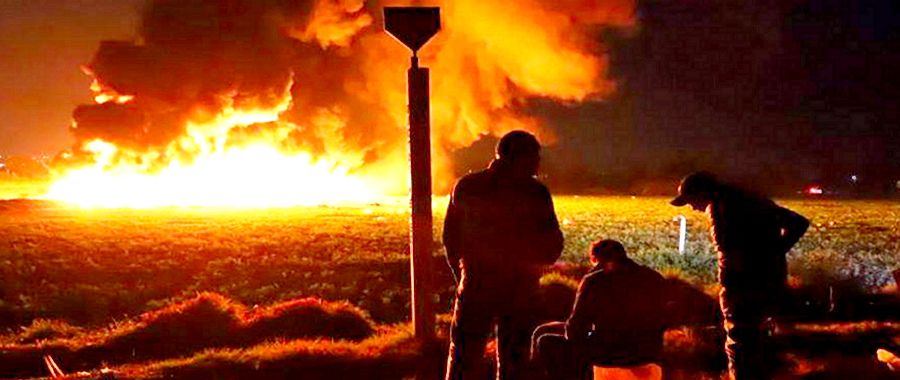 The fire occurred in the town of Tlahuelilpan in the state of Hidalgo, about 100 km north of Mexico City. A few hours before the leak of the pipeline had attracted dozens of residents of this town came to recover fuel with buckets and jerrycans. The fire occurred in the town of Tlahuelilpan in the state of Hidalgo, about 100 km north of Mexico City. A few hours before the leak of the pipeline had attracted dozens of residents of this town came to recover fuel with buckets and jerrycans.
"I deeply regret the serious situation suffered by Tlahuelilpan because of the explosion of a pipeline," responded on Twitter the Mexican President Andrés Manuel Lopez Obrador. "I call on the entire government to help the people there," he added.
Firefighting units and ambulances of the state oil company Pemex have been dispatched to the scene to rescue the victims, said the governor of the state of Hidalgo where Tlahuelilpan, Omar Fayad is.
Illegal collection and loss of earnings of $ 3 billion.
"We know that it was a clandestine levy and that the competent authorities were already taking care of it," said the governor of Hidalgo. More than 10,000 siphoning was registered that year on the pipelines of the oil company Pemex, according to official figures. A crime that caused a loss of some $ 3 billion (2.64 billion euros) in 2017 and 2018 to the Mexican state, according to official figures.
That's why the government of new President Andrés Manuel Lopez Obrador is implementing a national strategy against fuel theft.
Indeed, some criminal gangs or single families practice these illegal levies to sell them then to the black market, especially in the state of Puebla (center), epicenter of the phenomenon known as "Huachicol". Around this illegal practice has even developed a local culture with popular songs and religious figures carrying a can and a plastic pipe. Official service stations even distribute stolen fuel.
The government, taking the bull by the horns, closed several pipelines carrying fuel to stop these flights. This strategy has caused a shortage of fuel in a dozen states of the country, including the capital.
President André Manuel Lopez Obrador, who took office on 1 December, urged Mexicans to be patient with this chaotic situation.
According to the authorities, the gangs have complicity in the national company, so the former chief of company security is currently being investigated for fuel theft.
|
|
|
|
|
|
|
|
| Alyson Braxton for DayNewsWorld |
 |
LAKE TITICACA DOES NOT HAVE MORE
HIS SPLENDOR OF ANTAN
|
| Lake Titicaca is exposed to a serious problem because it is the receptacle of all the pollutants that are produced around it, especially on the Altiplano side.
It is with this cry of alarm that Juan Jose Ocola, responsible for the binational authority (Bolivia / Peru) that manages the environment has just alerted the international community, because some 1.6 million people live in this region where are the cities of Puno and Juliaca side Peru and El Alto, Bolivia side.
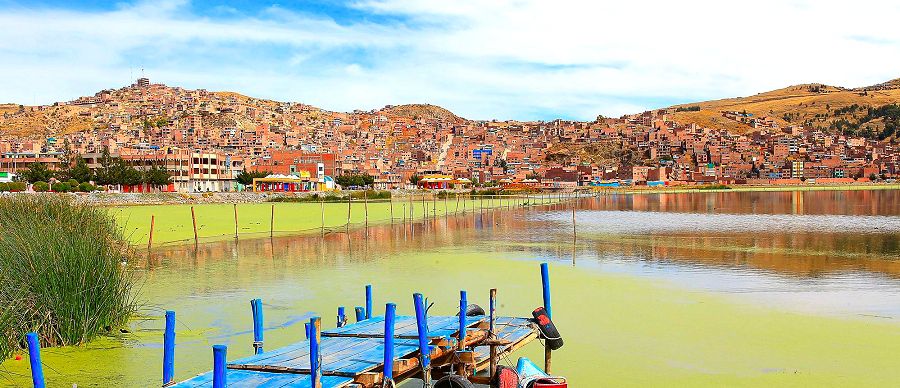 Lake Titicaca stretches over 8300 km2 (the area of Corsica approximately) straddling Peru and Bolivia. Located at almost 4000 m altitude, it is considered the largest freshwater reserve in South America. It's one of the wonders of the world. But this wonder has been completely contaminated in a few years. Lake Titicaca stretches over 8300 km2 (the area of Corsica approximately) straddling Peru and Bolivia. Located at almost 4000 m altitude, it is considered the largest freshwater reserve in South America. It's one of the wonders of the world. But this wonder has been completely contaminated in a few years.
The reasons for this galloping pollution are many. It is caused first by the waste left by the 750,000 tourists who visit this region of South America annually.
Lake Titicaca attracts, because it is dreaming with its azure blue waters and the romance inspired by the pre-Columbian civilizations on which we learn every day more details thanks to the many recent archaeological discoveries.
But tourists are not the only ones responsible. Added to the uncivilized actions of tourists, there are toxic discharges produced by the surrounding cities. All wastewater from residential neighborhoods and industries ends up in the lake untreated.
Pollutants favor the development of a green alga that is harmful to biodiversity, including animals, especially fish, which are indispensable for economically dependent fishermen.
Domestic animals are also concerned, including cows and sheep (but livestock in general) who die of diarrhea after eating the "tortora" grass from the lake.
The consequences for men's health are dramatic. The lake has significant infant mortality and health problems in high proportion.
Peru and Bolivia have planned to invest $ 500 million to build several sewage treatment plants; $ 400 million by Peru while Bolivia simultaneously decided to allocate $ 77 million.
In the meantime, are the inhabitants or rather the inhabitants who, with bare hands or almost naked (they are still equipped with latex gloves, but they do not wear a mask?) Periodically collect plastics, papers, disposable bottles, layers of babies, drugs and all kinds of rubbish.
The most active belong to the Aymaras ethnic group. In local dress, under the scorching sun they pick up the garbage they pile up in biodegradable sky blue trash bags. Their multicolored skirts and black bowler hats stand out against the landscape of a sumptuous site where the Aymara people have lived for centuries.
Some of these natives have even been trained to measure the lake's pH!
Day after day, the lake suffocates under pollution. In the plant labyrinth of the tortora that invaded it (the tortora resembles a reed, it is the emblematic plant of the lake) it has become almost impossible for a motor boat to navigate, the level of water having Moreover, it has dropped nearly 70 cm in recent decades.
The odor which reigns and which comes from the hydrogen sulphide, released by the decomposition of the sediments carried by the waters is unbreathable.
It also destroys the ecosystem because it is responsible for neurotoxic and deprives the fauna and flora of oxygen.
There is urgency to act; the first, long and difficult act must go through the identification of infrastructure constructions to be realized.
The Inter-American Development Bank (IDB) has already lent $ 77 million. The European Union has just granted 8 million grants. France, in very poor financial condition has committed to lend 115 million dollars.
It will have to be done quickly because the North of Altiplano, very populated, is the only liveable sector of the region, the South being covered by the desert Lipez.
The risks of migration and ecological migration are threatening.
|
|
|
|
|
|
|
|
| Clara Mitchell for DayNewsWorld |
 |
OUT-STANDARD PROCESS
BARON DRUG MEXICAN EL CHAPO
|
|
It is an unusual trial that opens on Monday in New York: that of Joachim Guzman. Extradited to the United States on January 19, 2017, the 61-year-old Mexican man led for 25 years one of the most powerful cartels in the world.
A kind of judicial epilogue for this great specialist of the escape which fueled his legend and earned him an international notoriety.
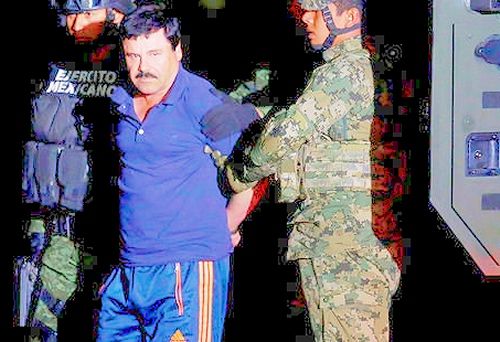 In 2016 is the last arrest of this sexagenarian ego excess in a villa in Los Mochis, on the Pacific coast, in his stronghold of Sinaloa. Extradited to the United States on 19 January 2017 in a Manhattan prison, "El Chapo" is no more than the shadow of himself: isolated in his cell 23 hours a day, after two escapes in Mexico, only his lawyers and his seven-year-old twins can visit him. Even his wife Emma Coronel, a 32-year-old beauty queen, is forbidden to visit. In 2016 is the last arrest of this sexagenarian ego excess in a villa in Los Mochis, on the Pacific coast, in his stronghold of Sinaloa. Extradited to the United States on 19 January 2017 in a Manhattan prison, "El Chapo" is no more than the shadow of himself: isolated in his cell 23 hours a day, after two escapes in Mexico, only his lawyers and his seven-year-old twins can visit him. Even his wife Emma Coronel, a 32-year-old beauty queen, is forbidden to visit.
This is the most powerful drug baron in the world who, at pre-trial hearings, could only speak to his lawyers. In his rare public statements, he only complained. "I suffer from headaches every day. I vomit almost daily. Two molars that were not treated me very much daily. Two molars that were not treated me suffer a lot , " he wrote in February in a letter to the judge responsible for his case, Brian Cogan. "I live a nightmare 24 hours a day."
The one also called "Le Courtaud" , a nickname due to its small size, about 1.67 m, is judged to have led for 25 years the most powerful drug cartel in the world. Prosecutors also claim to be able to demonstrate that he has sponsored at least 37 murders. They also claim to have a mountain of evidence of guilt at the eleven indictments, some 300,000 pages of documents, 117,000 audio recordings and a quantity of photos and videos. Many documents remain confidential as is the list of former associates, employees or rivals of Joaquin Guzman called to testify. Some enjoy the protection of the US government under new identities. Others are held in special prisons to prevent any retaliation.
The Sinaloa cartel headed by Joaquin Guzman has shipped more than 154 tons of cocaine and huge quantities of heroin, methamphetamines and marijuana to the United States, worth an estimated $ 14 billion. According to American prosecutors, "El Chapo" is the most powerful narco-trafficker since Colombian Pablo Escobar, who died in 1993. If he is sentenced, he faces life imprisonment.
The downfall is tough for the one who led 25 years in one of the most powerful cartels on the planet, former hero of the culture narco and "narcocorridos", these Mexican ballads that tell the leaders of cartels.
Born April 4, 1957 to a poor family in a mountain village in Sinaloa, northwestern Mexico, Joaquin Guzman worked from childhood selling oranges, sweets and drinks.
As he tells the actor Sean Penn during an interview in October 2015 supposed to remain secret but which will contribute to his arrest, he starts, teenager, to cultivate marijuana and poppy, for lack of alternatives. "The only way to get money, to buy food, to survive, was to grow the opium poppy, marijuana, so at that age, I started to grow and sell it. " , He confided to the American actor.
The chief of the cartel of Guadalajara Miguel Angel Felix Gallardo, nicknamed "the godfather" of the modern Mexican cartels recruits him. After the arrest of Gallardo in 1989, Guzman founded with three associates the cartel of Sinaloa, in a few years becoming an empire with European and Asian ramifications. "I supply more heroin, methamphetamine, cocaine and marijuana than anyone in the world. I have fleets of submarines, planes, trucks and boats, " he boasted in the interview with Sean Penn, published in Rolling Stone magazine.
His fortune put him on Forbes magazine's list of the richest men in the world, before escaping in 2013 because of the expenses needed to protect him.
At least two of his sons are accused by US authorities of playing an "important" role in his cartel. Another son, Edgar, was shot in 2008.
Robin Hood helping the poor and ridiculing the powerful, El Chapo has also waged an ultra-violent fight against rivals, a war between cartels that still ravage Mexico today.
The selection of the jury must start this Monday, in camera, a measure reserved for the most dangerous criminals.
|
|
|
|
|
|
|
|
|
|
|
| Joanne Courbet for DayNewsWorld |
 |
EXTREME RIGHT WIN ELECTIONS IN BRAZIL
|
|

T he "turning left" of Latin America has indeed lived. After the election of Sebastian Pinera in Chile, Mauricio Macri in Argentina or Ivan Duque in Colombia, it was Jair Bolsonaro's turn to win a landslide victory in the election in Brazil with a very large majority (55 , 1% of the vote) in front of the left-wing candidate Fernando Haddad (45%). Jair Bolsonaro will take office on 1 January 2019 in an extremely polarized Brazil after a tense campaign.
In a country plagued by record violence, economic sluggishness, rampant corruption and acute crisis of confidence in the political class, Jair Bolsonaro has managed to win. With its radical orientation of ultra-conservative morals and neoliberal on the economic front, Bolsonaro is the product of the economic crisis.
At 63, Jair Bolsonaro is by far the most extreme right-wing elected head of state in Latin America's recent history. He will succeed, for four years, the conservative Michel Temer, who withdraws on a rate of historical unpopularity after conducting a policy of austerity "I just congratulate the President-elect Jair Bolsonaro, I could perceive his enthusiasm, not only when he spoke to me, but also when he made his statements in favor of the unity of the country, the pacification of the country, the harmony of the country, " Temer said from his official residence in Brasilia.
"We are going to change the destiny of Brazil together," President-elect Jair Bolsonaro said in his first speech on Facebook on Sunday after the announcement of his victory. "We can not continue to flirt with socialism, communism, left-wing populism , "he added.
He also promised the Brazilians that his government "will defend the Constitution, democracy, freedom" , in his televised speech while in campaigning his Brazil should be according to him, cleaned and purified "delinquents" and "reds" . The former captain wished Sunday after his victory a Brazil which is "a great Nation, for all of us" , while in electoral campaign he said he wanted to govern "for the majority, not for the minority." Exit the Blacks, women, members of the LGBT community, but also leftist activists, Indians, members of the landless peasant movement (MST) and NGOs ...
Jair Bolsonaro has promised to bring back order, taking advantage of the collapse of traditional parties, undermined by the corruption and exasperation of Brazilians.
But his ability to govern will now depend on how he will build a strong majority around Parliament. In case of minority, he will preside by decree ...
|
|
|
|
|
|
|
|
| Alyson Braxton for DayNewsWorld |
 |
There are no translations available.
L'EXTREME DROITE DE BOLSONARO EN TETE
AU PREMIER TOUR DES PRESIDENTIELLES
OU UNE CRISE DE LA DEMOCRATIE AU BRESIL
|
|
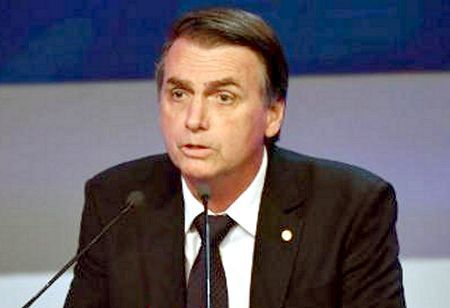 C'est le candidat Jair Bolsonaro de l’extrême droite qui se trouve largement en tête au premier tour de la présidentielle avec 46,06 % des voix. Jair Bolsonaro a affirmé, dans la foulée des résultats, être « certain » qu’il aurait été élu s'il n'y avait pas eu des « problèmes avec les urnes électroniques ». C'est le candidat Jair Bolsonaro de l’extrême droite qui se trouve largement en tête au premier tour de la présidentielle avec 46,06 % des voix. Jair Bolsonaro a affirmé, dans la foulée des résultats, être « certain » qu’il aurait été élu s'il n'y avait pas eu des « problèmes avec les urnes électroniques ».
« Je suis certain que si ça n’avait pas eu lieu, nous aurions eu dès ce soir le nom du président de la République », a-t-il déclaré dans une vidéo publiée sur les réseaux sociaux.
Mais la bataille reste incertaine. Mais le candidat d'extrême-droite, malgré son triomphe, devra affronter lors du second tour le 28 octobre Fernando Haddad (29,24 %) du Parti des Travailleurs(PT), n'ayant pas réussi le coup de force d’une élection dès le premier tour.
Jair Bolsonaro a capitalisé dans les urnes sur la colère des Brésiliens contre la corruption de la classe politique et l’insécurité.
Il a notamment promis d’assouplir la législation sur le contrôle des armes à feu afin que ses concitoyens puissent s’armer contre les criminels. Il a lui-même été victime d'une blessure à l’arme blanche en septembre. A l'inverse le PT est, lui, impliqué dans un vaste scandale de corruption qui a conduit Lula en prison et amené à la destitution Dilma Rousseff pour avoir maquillé les comptes publics.
La droite brésilienne, le PSDB de Geraldo Alckmin ou le candidat du président sortant, Henrique Mereilles, connaissent une vraie désaffection.
Ancien officier âgé de 63 ans Bolsonaro a donc réussi à convaincre de nombreux Brésiliens de voter pour lui grâce à ses positions très dures contre l’insécurité à sa carrière dans l'armée exempte de toute accusation de corruption.
Il incarne également une vision conservatrice de la famille, du droit des minorités et de religion ainsi qu’un libéralisme économique qui a séduit bon nombre de Brésiliens.
Sur son compte Facebook, il a annoncé, dans la soirée qu’il allait « unir le peuple », qu’« unis, les Brésiliens deviendront une grande nation » et que « personne n’avait le potentiel qu’ils avaient ».
Pourtant une grande partie de l’électorat refuse de lui accorder son vote en raison de propos homophobes ou misogynes qui ont conduit des femmes à descendre dans la rue. Nombre de Brésiliens s’inquiètent aussi de l’impact sur la démocratie d'une telle élection.
Tout n'est pas gagné pour le candidat d'extrême-droite face à Fernando Haddad, ancien ministre de l’éducation , qui n’a cependant pas réussi à créer le front républicain contre Bolsonaro à ce premier tour. Les électeurs du centre seront l’objet de toutes les convoitises.
Le candidat de centre gauche, Ciro Gomes et l'écologiste Marina Silva se sont déjà rangés du côté du PT. Le centre droit, convoité par les deux camps, n'a pas encore pris position...
Quoiqu’il en soit le Brésil a rarement été aussi divisé lors d'une élection, durant laquelle les 147 millions d’électeurs devaient aussi désigner les députés de la chambre basse du Congrès et renouveler les deux tiers des 81 sièges du Sénat.
Mais tous les Brésiliens ont exprimé l'espoir que ce scrutin apporte le « changement » dans un pays rongé par une crise économique et politique aiguë, une violence endémique et d'innombrables scandales de corruption.
Le duel du 28 octobre s’annonce particulièrement imprévisible et témoigne «d'une crise démocratique très profonde » selon Christophe Ventura, chercheur à l'IRIS. .
|
|
|
|
|
|
|
|
| Joanne Courbet pour DayNewsWorld |
 |
WOMEN UNITED AGAINST BOLSONARO
CANDIDATE OF EXREME-RIGHT IN BRAZIL
|
"In the recent history of the South American country, there is no trace of such an important mobilization of women," said Ligia Fabris Campos, Professor of Law at the Getulio Vargas Foundation.
|
|
|
On Saturday in the streets of Brazil thousands of women came to protest against the far-right presidential candidate Jair Bolsonaro. At the cry of "No, not him!", The Brazilian women took to the streets of major Brazilian cities on Saturday to express their opposition to Jair Bolsonaro, far right MP.
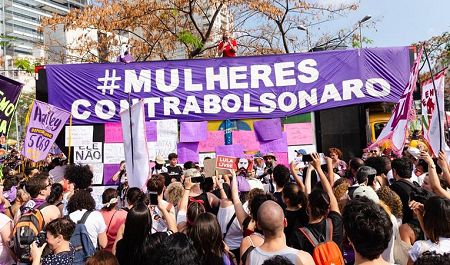 The biggest events took place in the metropolises of Rio de Janeiro, Sao Paulo and Brasilia. A total of 62 cities were affected by this move to eight days of the first round. The biggest events took place in the metropolises of Rio de Janeiro, Sao Paulo and Brasilia. A total of 62 cities were affected by this move to eight days of the first round.
The presidential candidate of October 7 has continued throughout his campaign to multiply the misogynist invectives.
It is with the shout of "No, not him! That tens of thousands of Brazilian women intended to mark their fierce opposition to the far-right presidential candidate Jair Bolsonaro, a favorite in the polls.
Jair Bolsonaro, a 63-year-old deputy, is heading ahead of the voting intentions of the first round of presidential elections on 7 October. He was released Saturday morning from the hospital where he was admitted in early September, after being stabbed during a walkabout, announced the establishment.
The former captain of the army is considered misogynist, homophobic and racist. He bluntly told a member that she "did not deserve" to rape her, and lamented the length of maternity leave. General Hamilton Mourao, vice-president on his list, said that single-parent families without a father figure were "factories with non-integrated individuals who tend to swell the ranks of drug traffickers".
Just out Jair Bolsonaro launched a new controversy by threatening not to recognize the outcome of elections if he was not elected. "From what I see in the street, I will not accept an election result that is different from my election," he told Bandeirantes on Friday.
"A candidate who makes a statement like this makes it clear to the country that he intends to wage a coup against our democracy," said left-wing candidate Ciro Gomes, third in the polls of the 1st tower.
Bolsonaro "shows again that he is not ready for democracy, he wants to keep the country divided," said center-right candidate Geraldo Alckmin, fourth in the polls.
Women represent 52% of the Brazilian electorate and about 50% of them say that they would never vote for him. They launched the offensive in early September with a group on Facebook called "Women United against Bolsonaro" which generated a massive mobilization on social networks in Brazil and abroad.
The American singer Madonna lent her support on Instagram to #EleNao (Not him), the keyword of this movement in Portuguese.
Demonstrations were also organized by women's collectives on Saturday in several countries: United States, Canada, France, Spain, the United Kingdom, the Netherlands or Argentina.
|
|
|
|
|
|
|
|
|
| Britney Delsey for DayNewsWorld |
 |
COLOMBIA LEADER PRODUCTION OF COCAINE
|
|
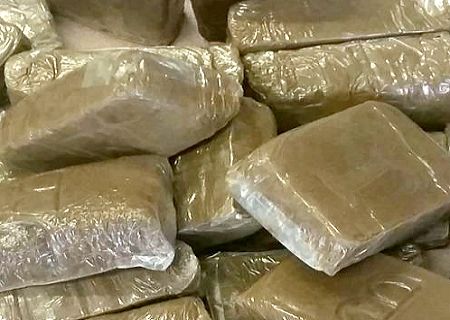
Colombia remains the world's largest cocaine producer. According to the United Nations Office on Drugs and Crime (UNODC), illicit coca plantations have even increased in Colombia by 17% in 2017.
Colombia records a record increase in coca leaf cultivation and manufacturing potential for this drug. The United States is the first consumer of the planet. The country is ahead of Peru (43,900 ha) and Bolivia (24,500) with 171,000 hectares in 2017.
As for cocaine production capacity, it increased by 31% to 1,379 tons, an estimated market value of $ 2.7 billion, figures unpublished since 2001.
The plants have also become more productive. In 2016, the total area of coca, the leaf of which is the raw material for cocaine, reached 146,000 ha with a drug production capacity of 1,053 tons compared to 866 tons previously. Not only the increase of crops, but also their productivity thanks to varieties more resistant to diseases.
In the face of this resurgence, UNODC has expressed its "deep concern about capital from the drug economy , " which affects Colombia's efforts to build peace after more than half a century of war while threatening stability of the state. Indeed drug trafficking has long been the main source of funding for the FARC guerrillas (the oldest guerrilla in Latin America), after the fall of the Soviet Union that had cut the funding of "sister countries".
President Juan Manuel Santos, the predecessor of Ivan Duque, had chosen, in the framework of the peace agreements with the FARC, the voluntary eradication as well as the aid to the substitution. On the other hand, it had banned glyphosate sprays by helicopter, causing serious damage to the farmers' health.
This strategy has been called into question by Colombian President Ivan Duque, who has been in power since 7 August. He pledged to abolish at least 140,000 ha of narco-plantations during his four years in office.
As President Donald Trump prepares a visit to Colombia in December, the government of Ivan Duque plans to resume aerial spraying glyphosate by drones.
|
|
|
|
|
|
|
|
| Alize Marion for DayNewsWorld |
 |
ATTACK OF THE CANDIDATE TO THE PRESIDENTIAL
JAIR BOLSONARO DURING A MEETING IN BRAZIL
|
|

On 6 September, at around 15:00 (18:00 GMT), Jair Bolsonaro, the right-wing candidate for the Brazilian presidential election, was stabbed in the middle of the abdomen.
He was then campaigning for the presidential election, carried by the crowd in the town of Juiz de Fora, a town of 70,000 inhabitants in the state of Minais Gerais (southeast), a three-hour drive from Rio de Janeiro.
He was taken to hospital where he underwent surgery. The far-right MP has been emergency surgery for an "abdominal injury", but his days are not in danger. According to doctors, he should remain hospitalized for at least a week.
Television footage showed the candidate, perched on the shoulders of sympathizers, receiving a violent blow under the thorax and collapsing back with a grimace of pain, before being evacuated.
The profile of the aggressor
His attacker, a 40-year-old man, is said to be a former militant of the left-wing PSOL party. A large crowd yelled "You are going to die" in the direction of the assailant and caught him and brutalized him before he was taken to a police station. The perpetrator of the attack, was immediately arrested, he was carrying a knife wrapped in a cloth.
The suspect later claimed to have acted "for personal reasons" and "on the orders of God," according to a preliminary report by the military police.
In statements to TV Globo, the lawyer of the aggressor, Pedro Augusto Lima Possa, said that he assured him that he acted "for religious reasons, of a political nature and also because of the prejudices shown by Bolsonaro every time he talks about race, religion, and women. "
Bolsonaro is currently leading the race for the presidency with 22% of the vote in part thanks to the ban on the candidacy of Lula, the former president imprisoned for corruption.
Who is the candidate Jair Bolsonaro? "The tropical Trump"
A member of the Liberal Social Party for twenty-seven years, Jair Bolsonaro is a controversial figure who publicly praised the military junta in Brazil.
A figure of the Brazilian extreme right, the deputy is also known for his sexist and homophobic protests.
At the end of August, he accused the government of promoting homosexuality in schools because a kit was distributed in a school, of which Zep's cartoonist The Guide to Sexual Zizi would have been a part.
He has also repeatedly stated that the police should be allowed to open fire without limit on drug traffickers and other criminals.
If he is not loyal to any political party, his values have remained unchanged. The member has always claimed his deep dislike for the left. Although his entire family is in politics, the ex-captain of the army is mainly "a candidate outside the Brazilian political system" appealing a number of Brazilians, disappointed by the successive corruption scandals that have plagued the Workers Party (PT) of Inacio Lula da Silva.
The aggression of which Jair Bolsonaro was the victim aroused strong condemnations from the rest of the political class.
For several months, the Brazilian presidential campaign has hardened in a tense climate and intolerance.
|
|
|
|
|
|
|
|
| Alyson Braxton for DayNewsWorld |
 |
POSSIBLE CANDIDACY FOR PRISONER LULA PRESIDENTIAL IN BRAZIL
|
|
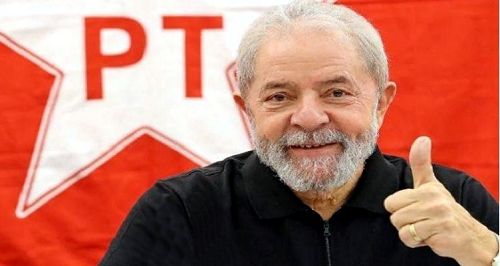
At one and a half months of the elections (first round on October 7), former President Lula da Silva condemned him for "passive bribery" and "money laundering" in a case related to the "Lava-Jato" scandal (Express wash) that splashed all the political parties. Nearly 3.5 billion euros were diverted. All Brazilian parties are involved, but in the first place those in power during the last two decades, the PT (party of Lula da Silva and his dauphine former president Dilma
and its allies, including the largest Brazilian party PMDB (current MDB), the current president Michel Temer, also subject to prosecution in a scandal related to the case).
This is the dismantling of the largest network of bribes in the history of South America.
The former president and founder of the left-wing PT party is serving his sentence in Curitiba (over 12 years in prison) and wants to run for president as he recalls in his column in the New York Times, published Tuesday, August 14th. Former deposed President Lula da Silva, who has been in prison since April, wants to run in the next elections in October. "It's the democracy that we kill" . This is essentially the defense of former President Lula da Silva, 72, who wants to seek a third term in the next elections
Head of the Workers' Party, Luiz Inacio Lula da Silva, who was twice Head of State (2003-2010), remains the immense favorite of polls (30% of voting intentions). His party submitted his candidacy Wednesday.
An expert committee believes that the former president's candidacy can only be canceled once all his appeals have been examined. An opinion that, technically, should prevail in Brazil. The UN Human Rights Committee, ruling on an urgent request filed by Lula's lawyers on July 27, ruled on Friday, Aug. 17: it must, according to experts, be allowed to participate in the presidential election in October, as long as all his court appeals have not been examined.
In a short statement, the committee "asks Brazil to take all necessary measures to allow Lula (...) to exercise its political rights since his prison, as a candidate for the presidential election" in October. Lula is also allowed to campaign from prison and use the media.
This committee, a monitoring body of the Office of the United Nations High Commissioner for Human Rights, is responsible for ensuring compliance with the International Covenant on Civil and Political Rights and the associated Optional Protocol. As Brazil has ratified both texts, it is technically obliged to respect the decisions of the committee.
The UN Human Rights Committee is asking Brazil to allow former President Lula to participate in the presidential election.
But it is very likely that his candidacy filed Wednesday will be invalidated, because a law in Brazil stipulates the ineligibility of any person having been condemned on appeal ...
|
|
|
|
|
|
|
|
| Joanne Courbet for DayNewsWorld |
 |
VICTORY WITHOUT SURPRISE FROM THE LEFT CANDIDATE "AMLO" TO THE PREDIDENTIAL MEXICAN
|
|
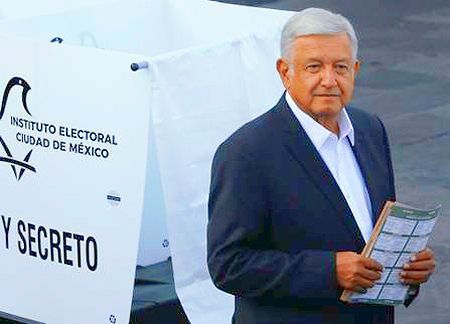
The two opponents of Andrés Manuel Lopez Obrador have acknowledged their defeat. The former mayor of Mexico City Andres Manuel Lopez Obrador (AMLO) obtained, according to an official estimate, between 53% and 53.8% of the votes after two unfortunate candidacies to the previous presidential ones. He leads and conservative Ricardo Anaya Cortes, credited with between 22.1% and 22.8% of the vote, and José Antonio Meade, of the Institutional Revolutionary Party (PRI), in power, credited with between 15.7% and 16.3% of the votes. This is a historic victory for the left after a campaign marked by violence. No wonder, polls gave him more than a 20-point lead over traditional party candidates. Leftist candidate Andrés Manuel Lopez Obrador won the presidential election in Mexico on Sunday (July 1st), the first official estimate promising "profound changes" and "no dictatorship".
At 64, he intends to capitalize on the general exasperation of a society plagued by drugs and corruption. Presenting himself as the antisystem candidate, he intends to chase "the mafia of power" after the mandate of the unpopular Enrique Pena Nieto.
AMLO pledged " austere government, without luxury or privilege" , up to 50% reduction in the salaries of senior officials, including his own, and the transformation into cultural center of the Los Pinos presidential residence., "Haunted According to him by the turpitudes of the previous presidents.
"There is a lot to do for the good of both the United States and Mexico!" Trump tweeted as relations between the two countries tightened as a result of the US administration's trade and migration policies. Canadian Prime Minister Justin Trudeau also congratulated Mexico's new president, close friend " . "We are united by common goals. (...) We have a mutually profitable business relationship that is the envy of the rest of the world. Our joint efforts to update the North American Free Trade Agreement for the 21st century are proof of that, " Trudeau tweeted.
In addition to the presidential mandate, the 89 million Mexican voters renewed more than 18,000 mandates, including 500 seats and 128 senators.
64-year-old left-wing veteran achieves historic success at national, but also regional and local level, winning at least six out of nine governorships at stake, with his party, the National Regeneration Movement (Morena ). Morena would win in Veracruz, Morelos, Puebla, Chiapas, Tabasco and Mexico City. In three other states, the results were tighter and could not announce a winner, according to the pollsters. .For the first time, a woman, Claudia Sheinbaum, a 56-year-old scientist and faithful of "AMLO", was elected head of the Mexican mega-city of more than 20 million inhabitants getting between 47.5% and 55, 5% of the vote, far ahead of the candidates of the traditional parties, and thus putting an end to twenty years of domination of the Democratic Revolution Party (PRD, left) in Mexico Gonzalez, Workers' Party (PT, opposition), was slaughtered near his home, in the state
But this day of voting was also marked by the death of two militants, shot dead. Flora Resendiz Gonzalez, Workers Party (PT, Opposition), was shot dead near her home, in the state
of Michoacan (West) while Fernando Herrera Silva, of the Institutional Revolutionary Party (PR of Michoacan (West) while Fernando Herrera Silva, of the Institutional Revolutionary Party (PRI), the party in power, was killed in Acolihuia, in the State of Puebla (Center): "We demand that the state guarantee the security of the electoral process , " the PRI said in a statement, so AMLO is at the head of the largest Spanish-speaking country in the world and the second-largest economy in Latin America. This is the first time that Mexico will be led by a party claiming from the left.Morena's program to lead the country was not detailed during the campaign but the priorities are imposed by them. the fight against corruption, violence and social inequality, and his supporters reminded him of his reasonable management when he was mayor of Mexico City, but concerns remain about his unnatural alliance with a party. vangéliste, Encuentro Social, which will have a weight in Congress and the Senate incommensurate with its real representation.
One of AMLO's major challenges is the tense relationship with its northern neighbor: the United States. US President Donald Trump congratulated the new Mexican president and said he was "ready to work" with him. |
|
|
|
|
|
|
|
| Joanne Courbet for DayNewsWorld |
 |
GENERAL ELECTIONS IN MEXICO IN
A CLIMATE OF VIOLENCE
|
|
Leftist candidate Andres Manuel López is credited with at least 51% voting intentions, which is 20% more than his nearest rival. Ricardo Anaya, promoted by a center-right coalition formed by the National Action (PAN), the Democratic Revolution (PRD) and Movimiento Ciudadano. Given the single-round Mexican electoral system, if the polls are proven, this score ensures him to be elected.
The Mexican presidential election entered yesterday in its last phase with the closure of the campaign of the main candidates. Andrés Manuel López Obrador, 64, left the supporters with the promise to promote a "transformation" of the country, but said however that it would happen in peace.
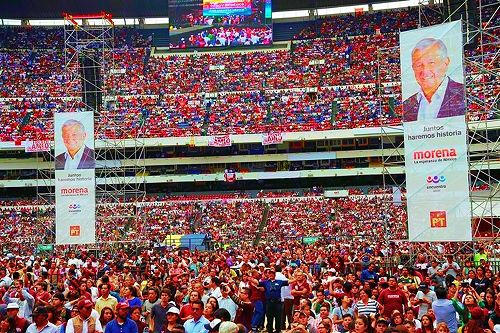
These crucial elections take place in a climate of unheard-of violence
The war launched in 2006 by Felipe Calderon's government against cartels has fragmented these criminal groups into smaller and often very violent criminal cells, so that they do not hesitate to get rid of politicians they can not manage. to control.
. One hundred and thirty-three politicians have been killed since the start of the electoral process in September, of which 28 were pre-candidates and 20 as candidates according to the consulting firm Etellekt.
Sunday's elections are the largest in Mexico's history as more than 18,000 seats will be renewed, including the bicameral Congress seats.
"We are on the verge of a bloodless transformation, the main problem in Mexico is corruption, the main cause of economic inequality, because of the corruption that triggered insecurity, " he said. declared the leader of the National Regeneration Movement (Morena), to the applause of the 80,000 spectators of the stadium.
"Finish the mafia in power! " Andres Manuel Lopez Obrador, a favorite of the July 1 presidential election in Mexico. The left-wing candidate has made the fight against corruption his hobbyhorse. His supporters see him as a providential man in a country undermined by inequality and crime.
In a festive atmosphere, with the sound of cumbia and vallenato, the veteran on the left had only a leitmotiv to his mouth: "change" . AMLO, as the Mexicans call it, with a coalition of the Left Workers Party (PT) and the right-wing evangelist, seduced his electorate with his personality: that of a man once considered radical and authoritarian, who is softened with experience
The man of the ruling Institutional Revolutionary Party (PRI), José Antonio Meade, appears third at a great distance. He has the oil machinery of a party that is almost 90 years old and 77 years old. But the bad image of Enrique Peña Nieto's government is a burden that reduces his votes.
So far, what defines the debate is, without a doubt, corruption. López Obrador opposes what he calls the unholy alliance of corrupt businessmen and politicians who blew Mexico and promises to destroy that relationship in a national historic transformation, just as President Benito Juárez defeated the control of the national economy by the Catholic Church.
An AMLO victory promises to completely change the Mexican political scene, which has been articulated since 1988 around three formations: the PRI, the PAN, as the main opposition of the center-right, and the Party of the Democratic Revolution (PRD). ).
It is not by chance that López Obrador gets the support of the majority at that time. Market-oriented economic policy has achieved economic growth of only 1.3% per year.
The advantage of Lopez Obrador in the polls is so wide that the question is whether his party MORENA can win the majority in Congress which would then leave his hands free.
|
|
|
|
|
|
|
|
| Paul Emison for DayNewsWorld |
 |
HISTORICAL VOTE IN FAVOR OF ABORTION
IN ARGENTINA
|
|

It is a historic vote in this country very marked by the Catholic Church, where Pope Francis is from. The bishops mobilized to try to convince the parliamentarians not to vote the law, even threatening them with excommunication. But in vain.
Argentine deputies voted Thursday, at first reading, for the legalization and decriminalization of abortion after more than 22 hours of passionate debates The bill legalizing abortion was approved by a narrow majority of 129 votes against 125 and one abstention. "It's the time of women's rights," said Republican MP (PRO, member of the government coalition Cambiemos) Silvia Lospennato.
The bill authorizes abortion at the request of the woman during the first fourteen weeks of pregnancy. Beyond this term, abortion remains possible only in the event of rape, danger to the health of the pregnant woman or malformation of the fetus making extrauterine life impossible. The 1921 Penal Code (although women did not yet have the right to vote) already established exceptions in these three situations, but these were rarely enforced for fear of judicial retribution or ideological conviction, so that women aborted clandestinely. A study commissioned in 2005 by the Ministry of Health pointed to the fact that nearly 500,000 women abort every year at the risk of losing their lives. The use of abortion had been punishable by four years in prison for more than a century.
In recent months a strong mobilization had risen what some have called "a green tide" , especially on the youth side. With green scarves on their necks, wrists and backpacks, tens of thousands of teenagers stormed not only the streets, but also the social networks, under the hashtag #LasPibasYaEligieron ("the girls have already chosen "). Last month, the legalization of abortion in Ireland - another country with a strong Catholic tradition - gave even more hope to Argentine activists.
This bill drafted by the "National Campaign for the Right to Legal, Safe and Free Abortion" had already been submitted to Parliament six times since 2007, but to no avail.
Despite Cristina Kirchner, a strong feminist, who ruled the country from 2007 to 2015, the project never reached the hemicycle. Many other progressive laws such as Comprehensive Sex Education (2006), Marriage for All (2010), Gender Identity (2012) and the PMA for all (2013) had been approved.
The bill must still be approved by the Senate, deemed more conservative, for abortion to be legalized. Debates in the Senate are expected in September. President Mauricio Macri has promised that if the law is finally passed he will not veto.
|
|
|
|
|
|
|
|
| Britney Delsey for DayNewsWorld |
 |
$ 50 BILLION LENDING
GRANTED BY THE IMF TO ARGENTINA
|
|
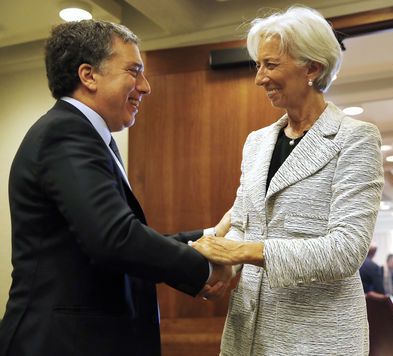
To consolidate its fragile economy, Argentina and the International Monetary Fund (IMF) reached an agreement on Thursday for a three-year funding program to avoid a new financial crisis. The IMF granted it a $ 50 billion loan, in exchange for which it committed to far-reaching reforms to limit state spending.
"We appealed to the IMF as a preventive measure to avoid a crisis," Argentine Economy Minister Nicolas Dujovne told a press conference in Buenos Aires on Thursday. "We are engaged in building a normal country. It is a support to our program, with the objective of increasing the economy, reducing inflation and reducing poverty , " he added. 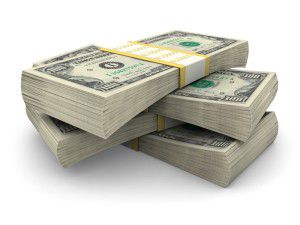
The agreement concludes that Argentina will reduce its deficit to 1.3% of GDP in 2019, against 2.2% previously, announced the office of the presidency in a statement.
The stated objective is the bailout of the state coffers, the attraction of investors again, and the fall in inflation. Today, restoring market confidence is the priority.
Nicolas Dujovne, Argentine Treasury Minister : "This aid is eleven times the amount of our quota in the IMF, and this shows the support enjoyed by Argentina to the international community. This is very good news, this integration of our country with support of this magnitude.
The situation of Argentina, Latin America's third-largest economy, is not catastrophic, but the South American country needs to strengthen its reserves, stabilize the foreign exchange market and create a better economic climate to attract investment. Annual inflation has exceeded 20% for 10 years. The Argentine minister said that Argentina has set a target of 17% inflation for 2019, 13% for 2020 and 9% for 2021.
After the April / May peso crisis, during which Argentina's currency depreciated by almost 20%, Mauricio Macri set as a priority the fall in the budget deficit. The budget deficit rose from 6 to 3.9% of GDP in two years of management of Mr. Macri, who came to power at the end of 2015. This policy of rigor, it is a bad moment to pass for the population, warns the economist Daniel Marx, former finance secretary, but the country "will reap the benefits next".
The agreement with the IMF comes amidst tensions between the government and the unions. Inflation has picked up again in 2018, more than 10% since the beginning of the year, and the government is slowing wage increases.
Earlier, the Economy Minister met with unions at the presidential palace threatening to convene a general strike, complaining that wage increases are not offsetting inflation.
|
|
|
|
|
|
|
|
| Steve Harrison for DayNewsWorld |
 |
COLOMBIA IN THE MIDDLE OF GUET
|
|
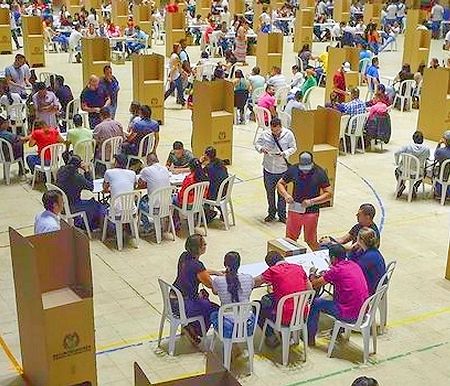
A small earthquake has shaken the political landscape in Colombia this Sunday , a country where the right has always reigned.
In June, the second round of the presidential election will see Ivan Duque, right-wing champion, face Gustavo Petro, former mayor of Bogota and former militant of the dissolved rebellion of the M-19.
No candidate in the Colombian presidential election has managed to gather more than 50% of the votes in the first round organized this Sunday, May 27.
The champion of the hard right, opposed to the peace agreement with the former guerrilla Farc, has certainly arrived at the top but he will face in the second round the candidate of a left anti-system.
Ivan Duque obtained 39.14% of the votes in the first round of the presidential election. Gustavo Petro (25.08%) and Sergio Fajardo (23.73%) achieve historical scores for the left in Colombia. He is followed by Gustavo Petro (25.08%), German Vargas Lleras (7.28%), Humberto de la Calle (2.06%) and Jorge Antonio Trujillo (0.39%).
A second round will take place on June 17th.
Ivan Duque's score is certainly a victory for opponents of peace agreements with the Revolutionary Armed Forces of Colombia (FARC) and their leader. Ivan Duque rejects the idea that former guerrilla leaders can stand for election: "Criminals against humanity can not be elected until they pay for the damage to the victims, they have not told the whole truth and they have not completed their sentences. " while saying that " Special justice is a source of impunity. It's an unacceptable insult to the victims. "
But Colombians did not hesitate to vote for progressive parties.
One of the most significant political advances in the peace agreements with the FARC is the arrival of the left - no longer marked by the stigma of the armed struggle - in the second round. "The left could not get massive votes," says Cesar Rodriguez of the NGO Dejusticia . Once this stigma is removed, the political field opens and this gives the possibility that the legal and peaceful left has a chance to run for president. "
Gustavo Petro, a former member of the M-19 guerrilla warfare disbanded in 1990, is both an outspoken advocate of peace agreements and a supporter of broad tax reform, broad land redistribution and a change in economic model. . "I do not want to impoverish the rich, I want to enrich the poor" he said during his campaign. With 4,850,000 votes, he is the left-wing candidate to get the most votes in a presidential election, the previous record of Carlos Gaviria in 2006 being limited to 2.6 million votes. Sergio Fajardo, also on the left, won 4.4 million votes.
This vote is crucial for the consolidation of peace in a country bruised by nearly half a century of fratricidal wars, concluded by a historic peace agreement signed in 2016 with the former guerrilla Revolutionary Armed Forces of Colombia (FARC).
The continuation of this agreement is one of the main issues of this election, the favorite, Ivan Duque, being opposed to it while Gustavo Petro defends tooth and nail this agreement, which he considers indispensable for the construction of peace in Colombia.
|
|
|
|
|
|
|
|
| Alyson Braxton for DayNewsWorld |
 |
CHAOS THREATENS BRAZIL
|
|
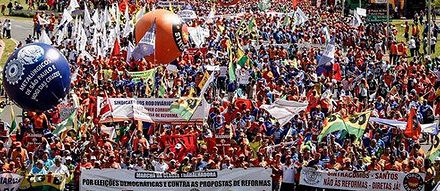
With a truck strike that has paralyzed the country since the beginning of the week, the Brazilian government raised its voice on Friday by mobilizing the army to raise the hundreds of roadblocks in the country.
" We accepted the twelve priority demands of the truckers, who pledged to stop the dams immediately. But unfortunately a radical minority continued to block the roads, " regretted Michel Temer.
Brazilian truckers have been on strike since the beginning of the week. The Sao Paulo City Council has declared a state of emergency. Brazilian President Michel Temer on Friday (May 25th) ordered the mobilization of the federal security forces to lift the roadblocks that have paralyzed Brazil since the beginning of the week.
The Sao Paulo City Council, the economic capital, as well as the capital Brasília, have declared a state of emergency, an extreme measure that makes it possible to requisition fuel.
"We will not allow the population to have access to basic necessities (...), that hospitals do not have the necessary medicines to save lives" , explained in a speech solemn.
The Brazilian defense minister issued a warning soon after. The army "will act quickly, co-ordinated and energetic (...) to free traffic in critical areas ," he said.
Economy at a standstill, canceled flights
Despite power concessions, this strike, launched in protest against rising diesel prices, has been maintained and is testing President Michel Temer's center-right government.
For the Brazilian Association of Truckers (Abcam), a union representing 700,000 truck drivers, "the idea is to maintain the strike, the roadblocks".
Roadblocks block the country's economy and take the country hostage.
The major supply problems have affected the entire economy, in this huge country that has almost no rail network and where 60% of the transport of goods is by road.
At the airport of the capital Brasilia, more than 30 flights were canceled, including two international flights, the kerosene reserves being exhausted.
Assembly lines at a standstill
According to the management company Infraero, ten other airports in the country are also dry, including that of Recife (north-east).
The country's exports are in the process of being heavily affected, and the auto industry, which employs 132,000 people, is already completely shut down. Exports from this major producer of meat and agricultural products were threatened.
Prices of vegetables and fruits have increased due to supply problems, sometimes up to 400% in a few days.
If the movement lasts, the economic consequences may be catastrophic for a country that is struggling to recover after the historic recession of 2015 / 2016.
|
|
|
|
|
|
|
|
| Jenny Chase for DayNewsWorld |
 |
CRISIS IN NICARAGUA
|
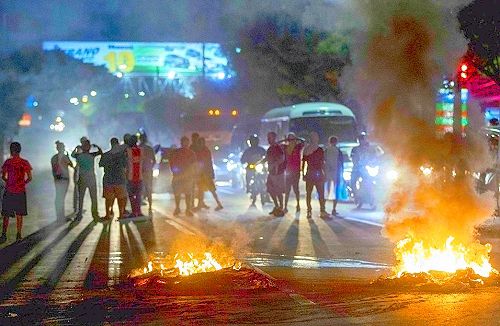 The dialogue is totally suspended while the government has repressed demonstrations in Nicaragua. In the absence of consensus, the Episcopal Conference suspended its mediation between the ruling party and the opposition. 10 wounded in clashes are to be deplored .. The dialogue is totally suspended while the government has repressed demonstrations in Nicaragua. In the absence of consensus, the Episcopal Conference suspended its mediation between the ruling party and the opposition. 10 wounded in clashes are to be deplored ..
The Nicaraguan Episcopal Conference (CEN) has suspended negotiations to end the political crisis after the government and the opposition failed to reach agreements to move the discussion forward. It was to advance the elections for a way out of the political and social crisis.
"Rebuilding democracy"
Triggered by students contesting a pension reform that increased contributions and reduced the amount of pensions, the wave of anger quickly spread to the entire population.
In the background, a general dissatisfaction with the harsh living conditions and the confiscation of power by Daniel Ortega, who already headed the country from 1979 to 1990 and returned in 2007. President Ortega and his wife and vice-president Rosario Murillo were elected in November 2016 for a five-year term ending in January 2022.
After several days of mobilization, clashes with the police, looting and burning, the streets seemed to have regained their composure. But some residents still fear a renewed tension.
Since the protests against the government began on April 18, 76 people have been killed, 868 injured and 438 arrested, according to the Inter-American Commission on Human Rights (IACHR).
Minister of Foreign Affairs Denis Moncada argued on Thursday that the issues on the agenda are "to change the government of Nicaragua outside the Constitution, the legal system and the violation of the Constitution and laws ". He further stated that the agenda should be to resolve the blockade of routes that affect the population and the economy.
"Since today there is no consensus between the parties, we regret to be forced to suspend the plenary session of the national dialogue , " said the Church hierarchy in a statement after eight hours. unsuccessful meetings in Managua. The draft agenda of the bishops in the fourth session of the dialogue envisaged to discuss a partial reform of the Constitution and the electoral law "in order to advance the presidential, municipal, legislative and regional elections as soon as possible".
The bishops said in the agenda that the call for free and fair elections should include international observation by the OAS, the European Union and the Carter Center, among other things, the document said.
Religious, who act as mediators in the talks, proposed the creation of a mixed commission of six people, three for each party to resume dialogue, while recalling that "peace and life depend on many Nicaraguans" .
|
|
|
|
|
|
| Britney Delsey for DayNewsWorld |
 |
REPETITION OF PRESIDENT NICOLAS MADURO IN VENEZUELA CONTESTED BY THE OPPOSITION
|
|
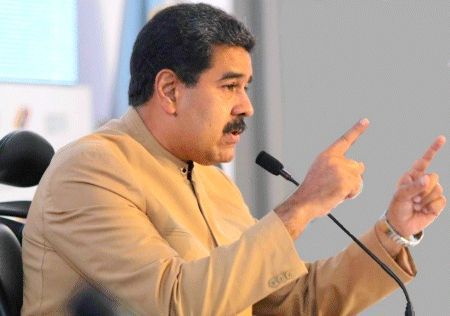
N icolas Maduro, successor in 2013 of the "Supreme Commander of the Bolivarian Revolution" Hugo Chavez, wins a presidential contest by the opposition.
Nicolas Maduro, from his palace in Miraflores, said "On twenty-four elections, this is our twenty-second victory in nineteen years, since the arrival of Chavez to power, says the president.
"It's the movement of a revolutionary people. It's a big victory. And I want to thank the Armed Forces and all the volunteers at the polls and red dots. Do not criticize the humble people who accompany our movement. It was an impeccable election. "
The outgoing Socialist President won 67.7% of the vote against 21.2% of his main opponent Henri Falcon, who rejected the electoral process, announced the President of the National Electoral Council (CNE) Tibisay Lucena, reporting a " irreversible tendency " . He was re-elected for seven years. The participation rate, at around 46%, is however the lowest in the country's history.
"We do not recognize this electoral process, for us there was no election. A new election must be held in Venezuela, " said 56-year-old dissenting chabadist Henri Falcon at a news conference. He called for "new elections in December," the traditional date of the Venezuelan presidential election when power this year convened an early election. A third candidate, evangelical pastor Javier Bertucci, joined this request.
He accused the government of putting pressure on voters.
"Red dots" , these tents were installed PSUV, the party in power. After voting, the voters came hoping to receive the reward promised by the president. "Everywhere we gave a voucher worth 10 million bolivars [about 8 euros on the black market] to every voter. It's an electoral felony!
It is playing with the hunger and misery of the poor. In addition, it is managed from a government platform. It's a double felony! "
In addition to the Venezuelan opposition, the United States, the European Union and the Lima group, an alliance of 14 American countries and the Caribbean, reject this election.
|
|
|
|
|
|
|
|
| Britney Delsey for DayNewsWorld |
 |
SCANDAL OF SEXUAL ABUSE
OR THE RESIGNATION OF CHILEAN BISHOPS |
|
It is from reading Father Bertomeu's 2,300-page findings, including 64 testimonies collected in Chile and the United States, that the Pope admitted in April that he had made "serious mistakes" in the assessment of situation in Chile and spoke of a "lack of truthful and balanced information".
I 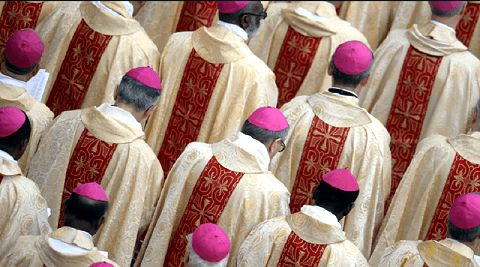 He had summoned all the bishops of Chile to Rome to examine the conclusions of the report. He had summoned all the bishops of Chile to Rome to examine the conclusions of the report.
The Spanish priest Jordi Bertomeu (co-author Msgr. Charles Scicluna) of an investigation commissioned by the pope on sexual abuse perpetrated by the Chilean clergy had noted Thursday morning that the convocation of the entire Chilean Bishops' Conference in Rome was exceptional.
Pope Francis has indeed received the 32 bishops to evoke the calamitous management of scandals of sexual abuse.
At a press conference on Friday, May 18 in Rome, the 32 Chileans have all handed over their work to the pope.
In a letter sent on Monday to the 32 Chilean bishops in office, the pope had deplored that this "wound" was "treated so far with a drug that, far from healing, seems to have dug more in its thickness and pain" .
"We need a change," he continued . Not only do we owe it to our communities and so many who have suffered and are suffering in their flesh, but we also owe it to the conversion spirit of mission and the identity of the Church. "
The pope acknowledges "serious errors" of appreciation in this hot issue. "We have deepened [the] gravity of abuses of power and conscience over minors, as well as their tragic consequences," he said while asking pardon for these victims.
In his letter he invites the Chilean bishops to build "a prophetic Church, listening to the hungry, the prisoner, the migrant and the abused".
A statement by the Secretary General of the Episcopal Conference of Chile, Bishop Fernando Ramos, is expected this Friday at midday in front of the press
|
|
|
|
|
|
|
|
|
|
|
| Joanne Courbet for DayNewsWorld |
 |
There are no translations available.
SCANDALE DES ABUS SEXUELS
OU LA DEMISSION DES EVEQUES CHILIENS
|
|
C'est à la lecture des conclusions de 2 300 pages d’enquête du père Bertomeu, dont 64 témoignages recueillis au Chili et aux États-Unis, que le pape avait reconnu en avril avoir commis « de graves erreurs » d’appréciation de la situation au Chili et parlé d’un « manque d’informations véridiques et équilibrées ».
Il avait alors convoqué tous les évêques du Chili à Rome pour examiner les conclusions du rapport.
Le prêtre espagnol Jordi Bertomeu – coauteur avec Mgr Charles Scicluna d’une enquête commandée par le pape sur des abus sexuels perpétrés par le clergé chilien – avait relevé jeudi matin que la convocation de l’ensemble de la conférence épiscopale chilienne à Rome était exceptionnelle.
Le pape François a en effet reçu les 32 évêques pour évoquer la gestion calamiteuse des scandales d’abus sexuel.
Lors d’une conférence de presse, ce vendredi midi 18 mai à Rome , les 32 chiliens ont tous remis leur charge au pape.
Dans une lettre adressée lundi aux 32 évêques chiliens en poste le pape avait déploré que cette « plaie » ait été « traitée jusqu’à présent avec un médicament qui, loin de cicatriser, semble l’avoir creusée davantage dans son épaisseur et sa douleur ».
« Nous avons besoin d’un changement, poursuivait-il. Non seulement nous le devons à nos communautés et à tant de personnes qui ont souffert et qui souffrent dans leur chair, mais nous le devons aussi à l’esprit de conversion propre à la mission et l’identité de l’Eglise ».
Le pape reconnaît de « graves erreurs » d’appréciation dans ce dossier brûlant. « Nous avons approfondi [la] gravité des abus de pouvoir et de conscience sur les mineurs, ainsi que leurs tragiques conséquences » , a-t-il assuré tout en demandant pardon à ces victimes.
Dans sa lettre il invite les évêques chiliens à construire « une Église prophétique, à l’écoute de l’affamé, du prisonnier, du migrant et de l’abusé ».
Une déclaration du secrétaire général de la conférence épiscopale du Chili, Mgr Fernando Ramos, est attendue ce vendredi à la mi-journée devant la presse.
|
|
| |
|
|
|
|
|
| Joanne Courbet pour DayNewsWorld |
 |
MIGUEL DIAZ -CANEL SUCCESSOR TO RAUL CASTRO WITHOUT THE CHOICE OF CUBAN
|
"On behalf of the National Nominating Committee, I have the responsibility and the honor to propose to you as comrade Miguel Mario Diaz-Canel Bermudez as President of the Council of State and the Ministers of the Republic of Cuba", said in front of the Assembly Gisela Duarte, President of this Commission.
|
|
|
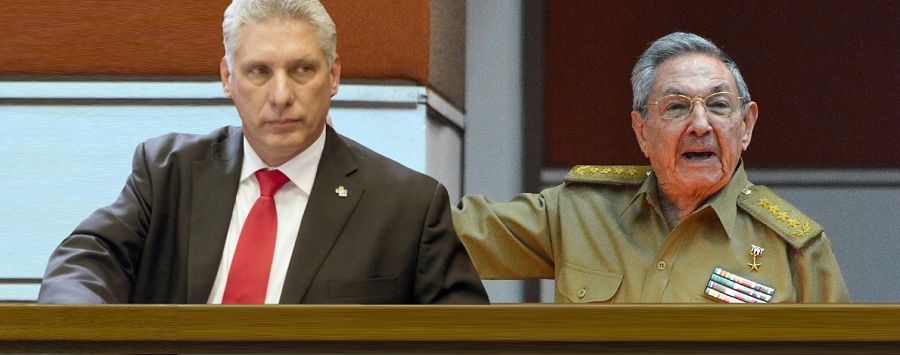
This is a historic event: for the first time, a Castro will no longer be at the head of the regime resulting from the revolution of 1959. Fidel died at the end of 2016 and it is the turn of Raul, 86, to give in his place, this time to a representative of the new generation.
The number two Cuban executive Miguel Diaz-Canel was designated Wednesday as the sole candidate to succeed President Raul Castro, ending six decades of exclusive power of the Castro brothers.
"On behalf of the National Nominating Committee, I have the responsibility and the honor to propose to you as comrade Miguel Mario Diaz-Canel Bermudez as President of the Council of State and the Ministers of the Republic of Cuba", said in front of the Assembly Gisela Duarte, President of this Commission.
His official appointment to the highest office is confirmed Thursday morning after the vote of the deputies, who never questioned the decisions made by the Nominations Committee.
Raul Castro, 86, gave his chair on Thursday, April 19 to his runner-up, Miguel Diaz-Canel, 57.
Ten-year reign of Raul, who remains at the head of the Cuban Communist Party.
For half a century, it was the Castro who held the country with an iron fist.
.Raul, 86, General, Minister of the Revolutionary Armed Forces (FAR) to succeed his elder brother Fidel (1926-2016) and made two five-year terms as President of the Council of State and Council of Ministers (2008- 2018). He himself has set a limit of two consecutive five-year terms for the presidency.
Once in power, Raul Castro initiated a series of reforms once unthinkable as the opening of the economy to private small entrepreneurship and especially the rapprochement with the United States, the enemy of the Cold War. In 2015, the two countries renewed their diplomatic relations, and the following year, US President Barack Obama paid a historic visit to the island. But since the arrival at the White House of Republican Donald Trump ...
But Raul Castro does not, however, leave power, since he should continue to occupy the key position of first secretary of the Communist Party of Cuba (CPC, single party) until the next congress scheduled for 2021.
Castroism finally begins a generational succession. The guerrilla commanders and the leaders of the "historical generation" let rise the cadres born after the seizure of power by the Castro. Thus Miguel Diaz-Canel, 57, the designated successor, made his political career in the provinces; Then he was co-opted by the CCP leadership. Miguel Diaz-Canel is a man of the system.
Lawyer of the opening of the island as the development of the internet, he showed an image of modernity of his country finally released a fifty Castro power
This engineer in electronics born after the revolution will have to continue the "actualization" initiated of the Cuban economic model sketched by the younger Castro.
The future president will be especially expected on the economic ground that requires reforms to recover a stagnant economy (1.6% in 2017) more heavily dependent on imports and assistance from his weakened Venezuelan ally.
"This transition is not improvised, it is very well studied and based on the experience deemed successful (of the transition) between Fidel and Raul," said Cuban expert Arturo Lopez-Levy, a professor at the University of Texas Rio Grande Valley.
"In this case they benefit from the fact that Raul is alive, although it is difficult to guarantee that he will stay healthy over the next four years (...) It is a stabilizer, an attenuator of potential friction between the leading figures, " continues the professor.
But will this authoritarian succession lead to a democratic opening?
|
|
|
|
|
|
| Joanne Courbet for DayNewsWorld |
 |
JAIL FOR THE FORMER PRESIDENT
BRAZILIAN LULA
|
|

The Supreme Court of Brazil rejected a request that would have allowed former President Lula to avoid prison and remain at large until all his appeals against his 12-year prison sentence for corruption were exhausted. , while this one remained until now favorite for the presidential election of October.
The Supreme Court refused him habeas corpus, which would have allowed him to remain at liberty until the exhaustion of all the appeals.
After an eleven-hour debate broadcast on television, the vote was very close among the 11 judges of the Supreme Court, Lula's application for habeas corpus being rejected by six votes to five.
A decision far from unanimous: the request was rejected by six votes to five, after debates that lasted 11 hours, six months of a presidential election for which he was given a favorite. Although very tight, this result is a brilliant victory for the prosecutors of Operation Wash-Express, a sprawling investigation that uncovered a huge corruption scandal involving politicians of all stripes.
In theory, Lula must now go to jail, but according to many jurists, he should not be behind bars until next week. Lula's lawyers can save time by having a new case before another court, but it is unlikely to succeed ...
The 72-year-old politician is thus caught up in the most important corruption case in Brazilian history: Operation Lava Jato, express washing.
In July, anti-corruption judge Sergio Moro sentenced him to nine and a half years in prison for obtaining a seaside triplex from a construction company in exchange for public contracts. A sentence increased to twelve years and a month on appeal in mid-January. Charges that Lula strongly denies and sees as a plot to prevent him from running for a third term, eight years after leaving power with record popularity.
But the politician has already received several statements of support. "The Brazilian people have the right to vote for Lula, the candidate of hope. His candidacy will be defended in the streets and in all the instances, until the last consequences " , affirmed on Twitter the Party of the Workers, founded by Lula in the 80s.
For his part, Venezuelan President Nicolas Maduro said on Twitter that he felt "a pain to the soul in the face of such an injustice" . Party President Gleisi Hoffmann spoke of a "sad day for democracy and for Brazil"
Despite the scandal, the two-term president (2003-2010) remains perceived as "close to the people".
|
|
|
|
|
|
|
| Alyson Braxton for DayNewsWorld |
 |
CARLOS ALVARADO ELU PRÉSIDENT
DU COSTA RICA
|
"We want not only to preserve democracy, peace and respect for nature, but also to project Costa Rica towards the future," Carlos Alvarado said after casting his ballot in the ballot box.
|
|
|

On 1 April, Carlos Alvarado, the center-left candidate, was elected President of Costa Rica. This former Minister of Labor and Social Affairs of the current government, took the lead
in front of conservative Fabricio Alvarado, just like him, a former journalist who likes to sing. Carlos Alvarado has won with 60.74% of the votes, the presidential election in Costa Rica, after a campaign marked by deep divisions on gay marriage and the place of religion ahead of the second round his opponent, the evangelical pastor Fabricio Alvarado, 43, strongly opposed homosexual marriage, which received only 39.3%.
The debate on gay marriage had emerged in the election. Fervent defender of human rights, Carlos Alvarado had posted his support for gay marriage - currently banned in the country - which was opposed by his opponent, also former MP and candidate of the National Restoration Party (RN, linked to churches neo-Pentecostal).
"This is the first time an election in Costa Rica has focused on religious and human rights issues," said Gustavo Araya, an analyst at the Latin American Faculty of Social Sciences.
"This election has allowed us, as a country, to look at ourselves in a mirror," said the winner to the crowd. "In this mirror, we have seen a diverse country, with different points of view, with inequalities, which must work to give more opportunities to certain parts of the country. Our task must be to unite the country .
During his university studies Carlos Alvarado developed his taste for music, incorporating a progressive rock band, Dramatika. But the new president has mostly studied political science, with a stint by the University of Sussex, UK. As a candidate of the outgoing party, he had to stand out from the current government involved in a case of trading in influence.
Carlos Alvarado, elected for four years, is in favor of the secularism of the state which he advocates more intervention in the economy. He said he wanted to "unite" the country to make it "go ahead".
"A government for all"
The elected president must meet with the leaders of the major parties to form a unity government. "We have heard the message of the citizens: a government for all," said Carlos Alvarado
Costa Rica enjoys a democratic tradition that has long been an exception in the region and a relative stability that have earned it the nickname "Central America Switzerland".
Even though Costa Rica is considered one of the most progressive countries in the region, with a literacy rate of 97.5% and an investment of more than 7% of GDP in education, according to UNESCO, Carlos Alvarado , former journalist and rock fan, won the presidential Sunday against a background of divisions, in a country with record deficit. Indeed, if the controversy surrounding gay marriage has relegated to the background other themes, that of the growing budget deficit that has earned the country four degradations of its credit rating over the past five years will have to be taken to arm the body.
Huge projects are waiting for the new elected to save a unique welfare state in the region.
Indeed, a scandal of conflict of interest tainted the image of renewal of the previous government, to which belonged Carlos Alvadoros, unable to reduce extreme poverty (6%), unemployment (9.3%) and galloping violence (12%). homicides per 100,000 population). In addition, public finances are in crisis: the new president, elected for four years, inherits a record fiscal deficit (6.2% of GDP) and a public debt of more than half of the GDP.
The crisis in the state finances threatens the survival of public education and health services, established after the abolition of the army in 1948.
This small country, which is alive with ecotourism and is renowned for its democratic tradition and political stability, has some challenges to overcome.
|
|
|
|
|
|
| Joanne Courbet for DayNewsWorld |
 |
There are no translations available.
ELECTIONS PRESIDENTIELLES AVANCEES
AU VENEZUELA
|
|
Si le monde veut nous infliger des sanctions, nous allons organiser des élections (...) Des pouvoirs impériaux et sans légitimité ont déclenché une campagne systématique de haine contre le Venezuela", a martelé le numéro deux du chavisme , Diosdado Cabello, à la tribune de l'hémicycle
|
|
|
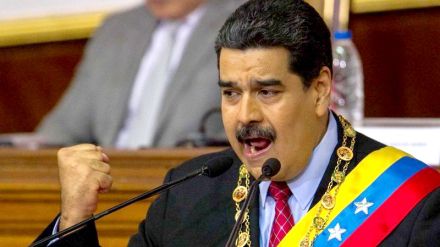 Au lendemain des sanctions adoptées par l'Union européenne contre de hauts dirigeants vénézuéliens, dont Diosdado Cabello , la réponse ne s'est pas faite attendre. Au lendemain des sanctions adoptées par l'Union européenne contre de hauts dirigeants vénézuéliens, dont Diosdado Cabello , la réponse ne s'est pas faite attendre.
"Si le monde veut nous infliger des sanctions, nous allons organiser des élections (...) Des pouvoirs impériaux et sans légitimité ont déclenché une campagne systématique de haine contre le Venezuela" a tonné l'un des mis en causeLe pouvoir vénézuélien a convoqué, ce mardi, un scrutin anticipé afin de profiter d'une dynamique électorale favorable et des divisions de l'opposition.
Or Diosdado Cabello,membre de l'Assemblée constituante, installée début août,n'a émis aucun doute sur leur candidat confirmé : l'actuel chef de l'État candidat unique du Parti socialiste uni du Venezuela (PSUV) au pouvoir.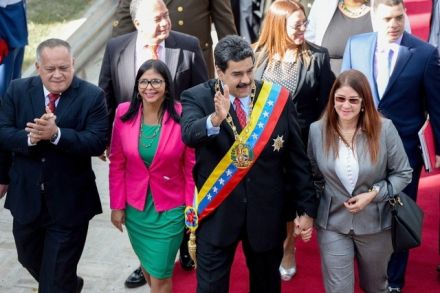
L’évolution politique au Venezuela, avec notamment l’élection en juillet d’une Assemblée constituante dotée de pouvoirs élargis et de la plupart des compétences du Parlement est aussi chargée est chargée de rédiger une nouvelle Constitution ...
Le président socialiste vénézuélien Nicolas Maduro s'est dit, ce mardi, «à disposition» pour à nouveau défendre les couleurs de son parti PSUV au cours de l'élection présidentielle que le gouvernement a convoquée par anticipation avant le 30 avril.
«Je suis un humble travailleur, un humble homme du peuple. Si le Parti socialiste uni du Venezuela (...) croit que je doive être le candidat à la présidentielle du camp révolutionnaire (...) je suis à disposition», a-t-il déclaré à la presse avant de participer à un rassemblement public à Caracas.
Le pouvoir vénézuélien a donc convoqué mardi une élection présidentielle anticipée afin de profiter d'une dynamique électorale favorable et des divisions de l'opposition. Jusqu'à présent, la présidentielle était officiellement prévue pour fin 2018.
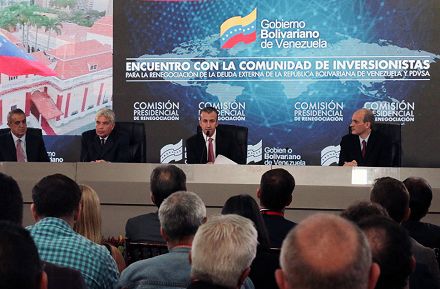 De plus cette annonce intervient alors que de délicates négociations sont en cours avec les adversaires du pouvoir pour tenter de résoudre la crise politico-économique . De plus cette annonce intervient alors que de délicates négociations sont en cours avec les adversaires du pouvoir pour tenter de résoudre la crise politico-économique .
De leur côté, les adversaires du président se sont engagés fin décembre à présenter également un candidat unique. Henry Ramos Allup, un des dirigeants de la MUD.
Mais il vient d'essuyer défaite sur défaite aux régionales et aux municipales...
Autre décision votée par la Constituante: les trois principales formations de la coalition anti-Maduro devront, pour participer à la présidentielle, se réinscrire auprès des autorités électorales pour avoir boycotté les municipales du 10 décembre.
C'est ce même Conseil national électoral (CNE) qui doit fixer la date de la présidentielle, a expliqué Diosdado Cabello. Qualifié par ses opposants de dictateur , Nicolas Maduro est certes confronté à une forte impopularité, imputable notamment aux pénuries de toutes sortes qui touchent la population depuis des années.
La crise qui secoue le pays des années s’est aussi traduite dans la rue avec des manifestations antigouvernementales au cours desquelles 125 personnes ont été tuées d’avril à juillet.
Mais en dépit d’une situation économique catastrophique, Nicolas Maduro peut compter sur la discipline et l’organisation quasi militaire de son parti, face à une opposition plus morcelée que jamais et qui prévoit des primaires pour désigner son candidat.
Et l’actuel président Nicolas Maduro entend bien s’y faire réélire.
Une organisation aussi rapide et anticipée pourrait prendre de court l’opposition à l’actuel président, dont la plupart des dirigeants sont emprisonnés, en exil ou privés du droit de se présenter.
|
|
|
|
|
|
| Joannes Courbet pour DayNewsWorld |
 |
There are no translations available.
INQUIETANT MESSAGE
DU SOUS-MARIN SAN JUAN
|
|
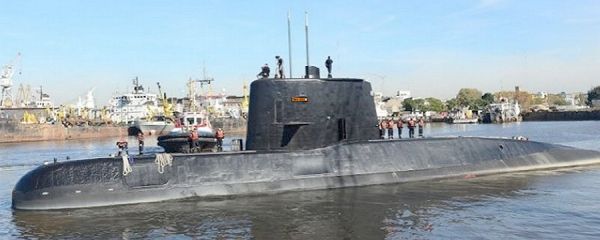 Le 15 novembre disparaissait le San Juan, un sous-marin argentin, dans les eaux de l'Atlantique Sud. Avec à bord, 44 marins. Le 15 novembre disparaissait le San Juan, un sous-marin argentin, dans les eaux de l'Atlantique Sud. Avec à bord, 44 marins.
Le San Juan avait appareillé le dimanche 11 novembre d'Ushuaïa, dans l'extrême sud de l'Argentine, pour regagner Mar de Plata, son port d'attache.
Lundi, douze jours après sa disparition, les navires et les avions de quinze pays ont continué leurs opérations pour détecter le sous-marin.
"Malheureusement, nous n'avons toujours pas localisé ou détecté le sous-marin", a déclaré le porte-parole de la Marine argentine, Enrique Balbi. Mais si les recherches ne donnent toujours rien, on connaît maintenant le dernier message du sous-marin argentin disparu dans l'Atlantique Sud .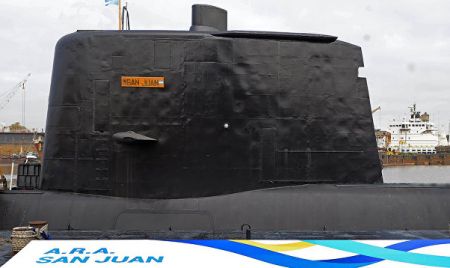
Il a été dévoilé par la chaîne de télévision A24 de Buenos Aires. Le dernier message du sous-marin faisait état d'un court-circuit et d'un début d'incendie .
"Entrée d'eau de mer par système de ventilation vers réservoir de batteries numéro 3 a provoqué court-circuit et début d'incendie", indique le texte du mercredi 15 novembre. "Batteries de proue hors service" .
Le message du sous-marin ajoute que le bâtiment "navigue pour le moment en immersion" et bien sûr qu'il tiendra le commandement informé.
L'eau de mer pourrait être entrée par le schnorkel, un tube qui permet aux sous-marins aux moteurs diesel de fonctionner en immersion en évacuant les gaz d'échappement et en aspirant de l'air frais.
Ce message ne laisse pas d'inquiéter !
Une explosion sous-marine avait été enregistrée si bien que les opérations de recherche se sont concentrée sur une zone de 36 kilomètres de rayon autour du point de cette dernière.
Peu de temps avant, le sous-marin avait déjà fait face à une avarie des batteries qui avait ensuite été maîtrisée.
Le lien de cause à effet n’a pas été établi officiellement, mais c’est probablement cette explosion qui a envoyé par le fond le submersible argentin
On ne sait pas si cette explosion est liée au message faisant état d'un incendie.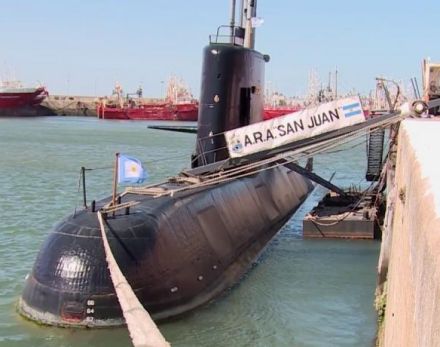
Un court-circuit a généré de la fumée mais le feu a été étouffé, selon le porte-parole de la marine Enrique Balbi qui s'exprimait lors d'une conférence de presse; Il a fermement rejeté la possibilité d'une attaque, mais affirmé qu'un court-circuit ou un feu avait pu rapidement diminuer la capacité d'oxygène dans le sous-marin bord.
De fabrication allemande, le San Juan avait été modifié par les Argentins eux-mêmes, au cours d’un chantier, entre 2007 et 2014.
Un défaut de structure du bâtiment pourrait être envisagé, la marine Argentine ayant remplacé les moteurs en coupant en deux le sous-marin.
La marine a démenti les informations de la presse dimanche faisant état d'anomalies dans l'achat de batteries, lors de réparations opérées en 2008 et 2014 comme elle a rejeté tout problème lié aux torpilles du sous-marin, puisque selon elle, il n’en transportait pas.
Le porte-parole a précisé que le navire russe Yantar, équipé d’un véhicule sous-marin capable de descendre à 6 000 mètres de profondeur, arriverait sur les lieux le 5 décembre.
A noter également que le submersible étant conçu pour ne pas être remarqué, « la détection d'un sous-marin est un processus très difficile, de nombreux facteurs, notamment climatiques, entrent en jeu », explique Adam Slavinsky, pilote d'un avion P8 Poseidon américain spécialisé dans la traque des sous-marins.
Les recherches se poursuivent donc pour retrouver le sous-marin. Au total, 15 pays participent aux recherches, dont les Etats-Unis, le Royaume-Uni, la Russie, la France, le Brésil ou l’Uruguay.
La Marine et les autorités civiles argentines se refusent à déclarer publiquement qu'il n'y plus aucune chance de retrouver des survivants.
|
|
|
|
|
|
|
|
| Britney Delsey pour DayNewsWorld |
 |
There are no translations available.
SEISME MEXICO LE BILAN EN HAUSSE
AU MOINS 310 MORTS
|
|
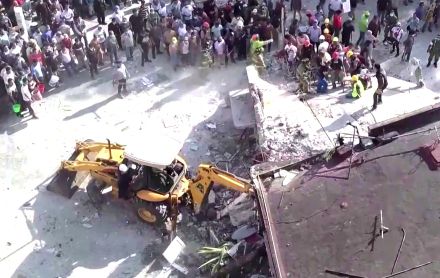 Bilan des morts d’alourdi d'heure en heure à Mexico Bilan des morts d’alourdi d'heure en heure à Mexico
On compte en ce moment 310 morts et un nombre important de blessés.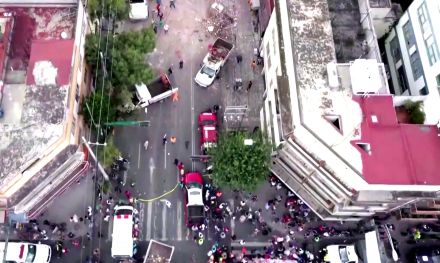
Environ 40% de la ville de Mexico et 60% de l'Etat de Morelos se trouvent sans électricité en ce mercredi 20 septembre 2017.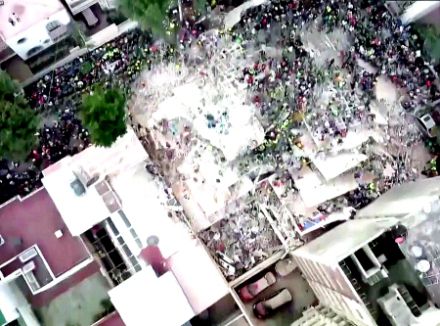
Le bilan des effondrements d'immeubles à Mexico en hausse également soit au moins une cinquantaine de bâtiments.
Le survol de Mexico en hélicoptère seul moyen actuel de survol carl’aéroport international de Mexico est fermé pour le moment laisse voir les plaies béantes un peu partout dans la ville est ses environs.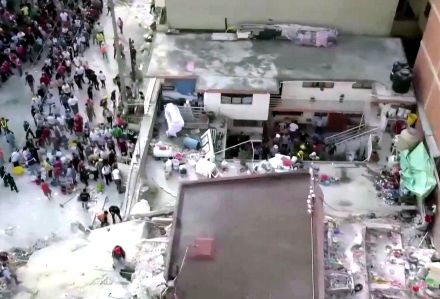
D'impressionnantes images vues d'en haut montrent l'étendue des dégâts dans la capitale.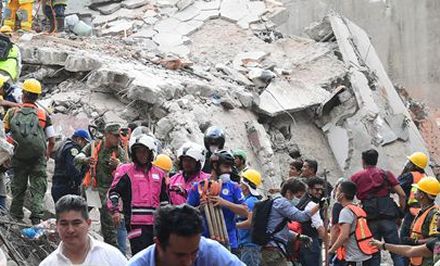
Les écoles ont également été évacuées et fermées.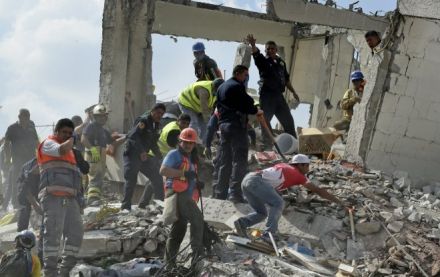
On observait des habitants paniqués descendus en nombre dans les rues.
Bâtiments effondrés, véhicules écrasés par la chute de débris qui jonchent l'ensemble de la capitale.
Les pompiers et secouristes sont un peu partout pour intervenir dans des situations et conditions des plus difficiles .
On est vraiment sous le choc !!!
|
|
| |
|
| |
|
|
|
| Paul Emison Mexico pour DayNewsWorld |
 |
There are no translations available.
AU MOINS 248 MORTS DANS LE SEISME MEXICO
|
|
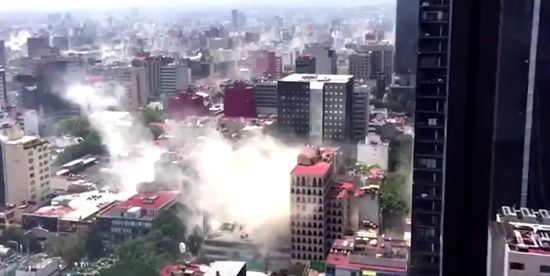 Un séisme de magnitude 7,1 a secoué Mexico ville 20 millions d'habitants,de et ses alentours, mardi 19 septembre 2017, provoquant des effondrements d'immeubles avec un bilan provisoire de 226 morts. Un séisme de magnitude 7,1 a secoué Mexico ville 20 millions d'habitants,de et ses alentours, mardi 19 septembre 2017, provoquant des effondrements d'immeubles avec un bilan provisoire de 226 morts.
On compte au moins 248 victimes au niveau national, dont 117 dans la capitale mexicaine.
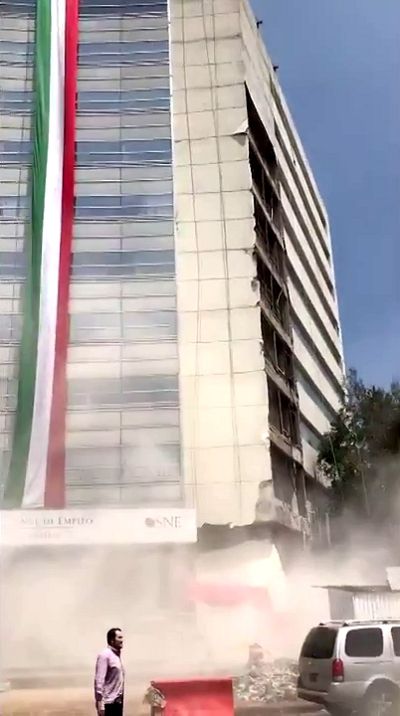
L'État de Mexico, celui de Puebla, de Morelos, et de Guerrero ont été touchés.
.Le séisme qui s'est produit à 13h 17, heure locale, a frappé une quinzaine d'écoles à Mexico faisant de gros dégâts . Dans l'une d'entre elle, une vingtaine d'enfants sont décédés.
Le séisme d'hier s'est produit 32 ans jour pour jour après celui du 19 septembre 1985 frappant la capitale mexicaine.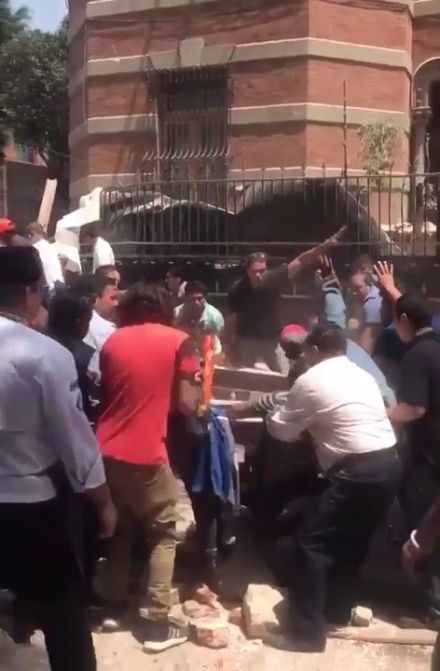
Des scènes de panique dans cette mégapole.Le chef de l 'Etat appelle la population à garder son calme et à ne pas envoyer de fausses rumeurs sur les réseaux sociaux.
Les secouristes tentent de retrouver des survivants sous les décombres.
La secousse est survenue quelques heures seulement après des exercices antisismiques qui étaient programmés dans le pays.
Il s'agit à ce jour de l'un des plus puissants tremblements de terre qu’ait connu le Mexique,hormis celui de 1985 qui avait fait à l'époque plus de 10.000 morts.
Selon le président Enrique Pena Nieto, au moins" 27 bâtiments importants se sont effondrés."
Des explosions et plusieurs départs d'incendie ont été signalés dans de nombreux bâtiments.
Selon l'Institut géologique américain (USGS), qui avait tout d'abord parlé d'une magnitude 7,4, l'épicentre du séisme de ce mardi 19 septembre 2017 a été localisé à quelques kilomètres au sud-est d'Atencingo, dans l'Etat de Puebla, à une profondeur de 51 kilomètres.
Le président américain Donald Trump a tweeté dés l'information connue en soutien aux habitants de Mexico.
«Que Dieu bénisse les gens de Mexico. Nous sommes avec vous et nous serons là pour vous», a tweeté le président Donald Trump.
Plus d'information vous seront fournies par nos envoyés spéciaux ….
A suivre...
|
|
|
|
|
|
|
|
| Paul Emison pour DayNewsWorld |
 |
There are no translations available.
EN SIERRA LEONE LA COLERE GRONDE SUITE
AUX INONDATIONS MEURTRIERES DE FREETOWN
|
|
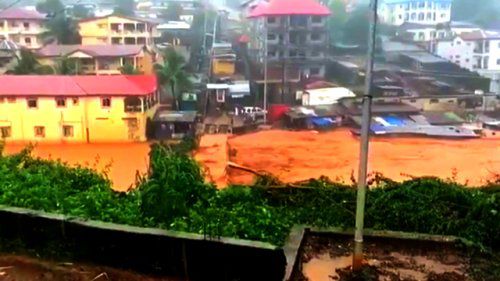 Freetown, capitale de la Sierra Leone, est sous le choc depuis que les pluies torrentielles ont provoqué l’effondrement, lundi matin, de toute une partie du Pain de Sucre, la colline du quartier de Regent surplombant le centre-ville. le président Ernest Bai Koroma a fait appel à l’aide internationale mardi. Freetown, capitale de la Sierra Leone, est sous le choc depuis que les pluies torrentielles ont provoqué l’effondrement, lundi matin, de toute une partie du Pain de Sucre, la colline du quartier de Regent surplombant le centre-ville. le président Ernest Bai Koroma a fait appel à l’aide internationale mardi.
Le bilan est lourd : Déjà près de 400 morts dont 105 enfants sont à déplorer et au moins 600 personne sont toujours portés disparus. Trois mille survivants restent sans le moindre abri. Les enterrements ont lieu dans la fosse commune de quatre cimetières de la métropole .Ce n'est pas la première fois que les bidonvilles du quartier Régent subissent des glissements de terrain et des coulées de boue dans une ville coincée entre la mer et la montagne et où la moyenne annuelle des précipitations reste la plus élevée d’Afrique.
Reste qu'une telle catastrophe survient à cause d'une la déforestation massive et d'une urbanisation galopante -la capitale comptant plus d’un million d’habitants, dix fois plus qu’en 1961, année de l'indépendance ! De plus la mauvaise gestion des déchets ne fait qu’accroître le risque de maladies comme le choléra, la typhoïde et la diarrhée en raison des eaux sales qui ne s'évacuent qu'avec difficulté : en cause les canalisation bouchées par les immondices.
En 2015, une note de l'Institut de recherche de l'Afrique alertait sur les risques de la déforestation, de l’accumulation des déchets qui bouchent les canalisations auxquels s’ajoutent les effets du changement climatique.
Selon Ian Douglas, professeur à la School of Environment and Development de l’Université de Manchester, interrogé par la BBC, d'autres villes d'Afrique comme au Ghana, en Ouganda, au Mozambique ou au Kenya sont de plus en plus souvent touchées par de graves inondations, mettant en péril la vie de populations pauvres..
|
|
|
|
|
|
|
|
| Carl Delsey pour DayNewsWorld |
 |
There are no translations available.
« UNE ATTAQUE TERRORISTE »
DEJOUEE
CONTRE L'ARMEE AU VENEZUELA
|
|
 De graves incidents se sont déroulés dans une base militaire à Valencia, à 180 km à l'ouest de Caracas. De graves incidents se sont déroulés dans une base militaire à Valencia, à 180 km à l'ouest de Caracas.
Le pouvoir vénézuélien a affirmé avoir déjoué dimanche une "attaque terroriste" fomentée par une vingtaine d'hommes contre une base de l'armée. Deux assaillants auraient été tués et huit autres capturés. Les morts et les prisonniers ont été identifiés comme étant un officier déserteur et neuf civils, a affirmé le Président Nicolas Maduro.
Des "combats" ont eu lieu pendant environ trois heures, a-t-il ajouté y voyant une "attaque terroriste" et non pas une "rébellion" militaire.
Selon le ministre de la Défense Vladimir Padrino, les prisonniers ont avoué avoir été recrutés "par des militants de l'extrême droite vénézuélienne en contact avec des gouvernements étrangers", et les forces de sécurité étaient encore à la recherche "d'une partie du groupe, qui a réussi à s'emparer de quelques armes".
Selon le général Jesus Suarez Chourio, l'opération était "financée par la droite et ses collaborateurs, financée par l'empire nord-américain" (les Etats-Unis, NDLR).
"Une normalité absolue règne dans le reste des unités militaires du pays", a assuré sur Twitter Diosdado Cabello, vice-président du parti au pouvoir et membre de
Une vidéo circulant dimanche sur les réseaux sociaux et plusieurs médias vénézuéliens montrait un homme se présentant comme un officier et se déclarant "en rébellion légitime" contre "la tyrannie assassine de Nicolas Maduro".Elle aurait été prise sur la base militaire.
"Ceci n'est pas un coup d'Etat, ceci est une action civique et militaire pour rétablir l'ordre constitutionnel", affirmait cet homme, se présentant sous le nom de capitaine Juan Caguaripano qu'entouraient quinze personnes en tenue de camouflage.
"Nous exigeons la formation immédiate d'un gouvernement de transition et des élections générales libres", ajoutait-il.
Il s'agirait d'après le ministère de la Défense d'un "officier subalterne renvoyé de l'armée il y a trois ans pour trahison à la patrie et rébellion" en fuite aux Etats-Unis.
L'armée vénézuélienne soutenant jusqu'à présent le pouvoir chaviste n'a pas cédé jusqu'à présent aux sirènes de l'opposition dénonçant la Constituante alors que le pays est en proie à de violentes manifestations antigouvernementales comptant 125 morts depuis avril. Cette dernière se voit en effet dotée de tous les pouvoirs jusqu’à la possibilité de dissoudre le Parlement et envisage notamment la réécriture de la Constitution de 1999 promulguée par Hugo Chavez. Mais le malaise est palpable au sein de l'armée.
La communauté internationale s'inquiète de la dérive autoritaire du régime du Président d'autant que le limogeage de la procureure générale Luisa Ortega, l'une des principales adversaires du président Maduro a été une des premières décisions de la Constituante, la toute puissante Assemblée constituant élue le 30 juillet
Le président du Parlement vénézuélien, Julio Borges, porte-voix de l'opposition, a demandé la "vérité" sur cet incident refusant toute "chasse aux sorcières"..
|
|
|
|
|
|
|
|
| Alize Marion pour DayNewsWorld |
 |
THE VENEZUELA ON THE EDGE OF THE CIVIL WAR
|
"The problem is that the population has nothing to lose because it has lost everything," deplored Rodrigo Diamanti, president of the association for the defense of human rights, Mundo sin Mordaza (World without bailiff)
|
|
|

Venezuela is on the brink of civil war. For more than three months, the majority opposition in Parliament has called for the Maduro government's departure. Nearly daily demonstrations have already killed more than 100 peoples. Two men aged 16 and 30 have lost their lives on Wednesday during clashes between demonstrators and police.
Tension is extreme as Wednesday began a two-day general strike at the call of the opposition which demands the departure of President Chavista Maduro and the boycott of Sunday's election.
The call to strike, launched for 48 hours, was followed up to 85% across the country during the first 24 hours, according to the opposition Democratic Unity (MUD) coalition, The origin of the movement. The main trade union centers supported the mobilization launched by the opposition, union leader Marcela Maspero speaking of "historic strike that tries to stop the tyranny".
"Finish the dictatorship! "Reads banners in the capital and other cities.
On Friday, a demonstration organized by the Unit Table (Mesa de la Unidad, MUD) is planned in the Venezuelan capital. The objective of the anti-Shawist opposition is the paralysis of all economic activity, the blocking of all the axes of circulation. Their leader Henrique Capriles called on the Venezuelans to "give it all for the all" during the strike Wednesday and Thursday and Friday's march. "Maduro wants to isolate Venezuela from the democratic world," he denounced.
Opponent Leopoldo Lopez, under house arrest as part of his 14-year prison sentence, has called on the Armed Forces to join the protest in a video broadcast on Twitter not to be "accomplices of the Disappearance of the Republic, electoral fraud, repression and a group whose sole purpose is to remain in power ".
An increase in violence is feared as more than 7 million illegal weapons circulate in the country, opposition MP Rosmit Mantilla said.
The opposition intends to cancel the election of members to the Constituent Assembly scheduled this Sunday. Some 70 percent of Venezuelans are opposed to the constituent assembly, according to the Datanalisis survey institute.
For the opposition this project to rewrite the Constitution is an attempt for Mr. Maduro to cling to power while bypassing the elected parliament with a majority opposition, and avoiding the presidential election of late 2018.
Nicolas Maduro, on his part, asked the population "to defend the government with arms in hand". The government controls the very strategic petroleum industry and the public service, which has nearly three million employees.
But even among his own party, the PSUV, Nicolas Maduro, dissent voices rise against this election more. Ortega Diaz, the Attorney General, appointed in 2008 by Hugo Chavez and re-appointed in 2014 to this position in the Venezuelan judicial system, did not hesitate to denounce the "persecution and abuse" Election of "coup d'état" Sunday.
Thousands of Venezuelans leave their country for Colombia ...
At the same time, international pressure on Caracas has intensified in recent days. Washington has threatened President Maduro with sanctions, and several governments in Latin America and Europe have called it to give up its constituent assembly.
But the Head of State of Venezuela reaffirmed his determination
|
|
|
|
|
|
| Joanne Courbet for DayNewsWorld |
 |
There are no translations available.
SUCCES DU VOTE CONSULTATIF
CONTRE MADURO AU VENEZUELA
|
|
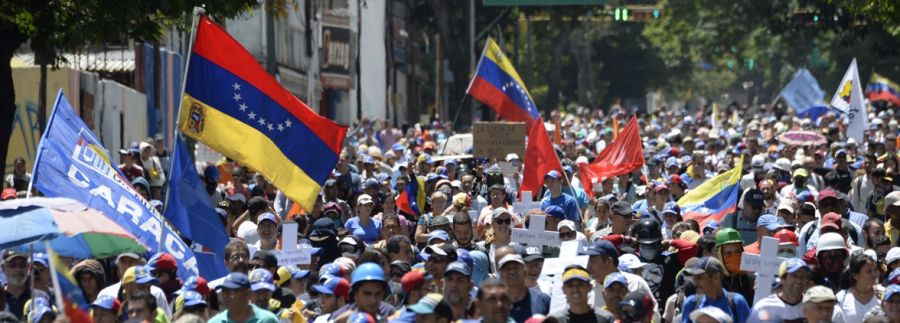
L'opposition avait tenté d'organiser un référendum révocatoire en 2016 mais le processus avait été bloqué par les autorités électorales.
Plus de 7,1 millions de Vénézuéliens sur 19 millions d'électeurs potentiels ont participé dimanche à la consultation populaire, organisée sans l'aval des autorités et légalement non-contraignante, selon 95 % des bulletins dépouillés.
Selon ces résultats, 98,3 % des votants ont répondu par l'affirmative aux trois questions posées : La première question demandait s'ils rejetaient la Constituante, la seconde s'ils exigeaient des Forces armées qu'elles respectent la constitution actuelle, et la troisième s'ils soutenaient un renouvellement des pouvoirs publics à travers des élections pour l'instauration d'un gouvernement d'"unité nationale".
L'opposition vénézuélienne sort grandie d'un vote massif de plus de 7 millions de personnes à la consultation symbolique contre le président socialiste Nicolas Maduro, après plus de trois mois de manifestations violentes dans ce pays en grave crise économique.
La chute des cours du pétrole frappe de plein fouet l'économie, dont 95 % des devises proviennent de l'or noir. L'inflation atteint trois chiffres et aliments et médicaments sont soumis à restriction.
Un pays dépendant uniquement de sa manne pétrolière
En 2001, la manne pétrolière faisait du Venezuela la nation la plus riche d’Amérique latine mais ce pays pétrolier ruiné par la chute des cours du brut.Car si Hugo Chavez élu en 1999, a pu lancer de grands chantiers sociaux, la construction de dispensaires, l’accès aux soins pour tous, des programmes d’aide aux maternités et contre l’analphabétisme, il n'a construit aucun grands chantiers industriels.
Le pays est dépendant de ses exportations pétrolières à 95 % pour ses ressources en devises ; le cours chute, et il est au bord de la faillite. Plus question d’importations. Alors, dans cet Etat qui ne produit rien, on manque bientôt de tout.
Le pays est donc à cours de devises. Devant les distributeurs de billets, les files d’attente se mesurent en dizaines de mètres. Pourtant, les retraits ne peuvent dépasser 10 000 bolivars : autant dire rien dans un pays où un simple café en coûte 3 500 et un litre de lait 1 500, soit sept fois le montant d’un plein d’essence.
"Maduro est mathématiquement révoqué"
Avec le résultat chiffré de participation et les réponses aux questions posées, "Maduro est mathématiquement révoqué", a estimé Julio Borges, actuel président du Parlement, seule institution aux mains de l'opposition. "Le mandat qui nous est donné par 7.186.000 de Vénézuéliens est clair (...) pour que nous puissions avoir la certitude de parvenir à un changement démocratique", a-t-il ajouté.
La coalition à l'origine du scrutin, la Table de l'Unité démocratique (MUD), veut freiner le projet de Constituante lancé par le président en provoquant des élections anticipées avant la fin du mandat de M. Maduro en décembre 2018.
Mais comment se servir des résultats pour "fracturer l'adversaire, ce qui pourrait faire pression en faveur d'une négociation qui déboucherait sur une opportunité pacifique de changement" (Luis Vicente Leon, président de l'institut de sondages Datanalisis).
Il est vrai que la Constituante, dont les 545 membres doivent être élus le 30 juillet, viserait officiellement à apporter paix et stabilité économique au pays.
Mais pour l'opposition'elle ne servirait qu'à contourner l'Assemblée nationale, où elle détient la majorité depuis 2016 après 17 ans de domination chaviste --du nom du président décédé Hugo Chavez, dont Nicolas Maduro est l'héritier--.
"Le Venezuela l'a clairement dit : nous ne voulons pas d'une Constituante frauduleuse et imposée. Nous ne voulons pas devenir Cuba", a déclaré dimanche soir le chef de l'Assemblée, Julio Borges, faisant allusion au régime de l'île communiste.
"L'opposition doit avoir une feuille de route, après avoir suscité tant d'espoir. Sinon, sa légitimité peut en prendre un coup, le peuple attend des actions fermes", a commenté pour sa part Felix Seijas, directeur de l'institut de sondages Delphos.
Du côté du gouvernement, la consultation est considérée "illégale".
Nicolas Maduro a demandé dimanche à ses opposants de "ne pas perdre la tête" avec les résultats de la consultation et de "venir s'asseoir pour discuter".
La consultation symbolique de dimanche a reçu le soutien d'associations de la société civile, des Nations unies, de l'Organisation des Etats américains (OEA), des Etats-Unis et de plusieurs gouvernements d'Amérique latine et d'Europe.
Cinq anciens présidents latino-américains sont venus en tant qu'"observateurs internationaux" du scrutin, Jorge Quiroga (Bolivie), Vicente Fox (Mexique), Andres Pastrana (Colombie), Laura Chinchilla et Miguel Angel Rodriguez (Costa Rica).
"La communauté internationale doit maintenant demander l'annulation de cette Constituante putchiste", a déclaré le Bolivien Jorge Quiroga.
|
|
|
|
|
|
|
|
| Britney Delsey pour DayNewsWorld |
 |
There are no translations available.
ETAT D'URGENCE DECRETE EN COLOMBIE
UNE IMMENSE COULEE DE BOUE FAIT
DEJA PLUS DE 200 MORTS ET 200 DISPARUS
|
|
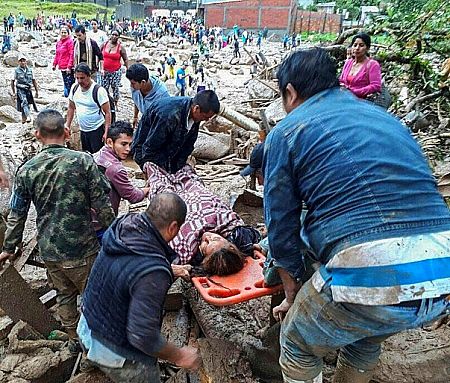 La Colombie compte ses morts et disparus après une gigantesque coulée de boue dans la province de Putumayo au le sud de la Colombie. La Colombie compte ses morts et disparus après une gigantesque coulée de boue dans la province de Putumayo au le sud de la Colombie.
Le bilan est lourd : 200 morts, 202 blessés, plus de 220 disparus d’après la Croix-Rouge colombienne .Le bilan pourrait s'alourdir dans les heures qui viennent.
L’état d’urgence a été décrété dans cette région. L'armée est sur place pour venir en aide à la population.
« Nos coeurs sont avec les familles des victimes et les personnes affectées par cette tragédie », a tweeté le président Juan Manuel Santos, qui a pris sur place la direction des secours .
« C’est une tragédie sans précédent, il y a des centaines de familles dont nous sommes sans nouvelles, des quartiers ensevelis », a affirmé le gouverneur du département de Putumayo, Sorrel Aroca, à W Radio.
Dans la soirée de vendredi, 130 millilitres de pluie sont tombés, soit 30% de la moyenne mensuelle à Mocoa.
«La situation à Mocoa est dramatique. Nous appelons à la solidarité de toute la Colombie», a de son côté tweeté le vice-ministre de l'Intérieur, Guillermo Ri
La catastrophe a eu lieu suite au débordement simultané des trois rivières Mocoa, Mulato et Sangoyaco, qui coulent en surplomb de la ville. Cette gigantesque coulée de boue est dû au phénomène climatique El Niño. Ce dernier touche depuis plusieurs semaines la région andine du nord-ouest de l’Amérique latine. La Colombie n'est pas le seul pays touché : des inondations ont fait au Pérou déjà 101 morts et plus de 900 000 sinistrés, en Equateur 21 morts et 1 280 sinistrés.
De nombreux pays européens ont proposé leur aide.
Le Président Hollande a assuré que la France était «prête à toute demande d'assistance» de la Colombie.
« Les terribles conséquences des dérèglements climatiques montrent combien la mobilisation de toutes les nations est nécessaire »,selon le chef de l’Etat dans un communiqué.
Le «changement climatique génère des dynamiques et nous en voyons les graves résultats en termes d'intensité, de fréquence et de magnitude (...) comme à Mocoa», a déploré le chef de la délégation de l'ONU en Colombie, Martin Santiago.
|
|
| Britney Delsey pour DayNewsWorld |
 |
VENEZUELA DIVES IN BLACK OR CRIMINAL ATTACK
|
| A new blackout plunged Venezuela late Monday night into darkness.
The breakdown began in Caracas, but cuts took place in all 23 Venezuelan states. The capital Caracas and many parts of Venezuela were plunged into darkness at the end of the day Monday following a new blackout tied by the government to an "electromagnetic attack".
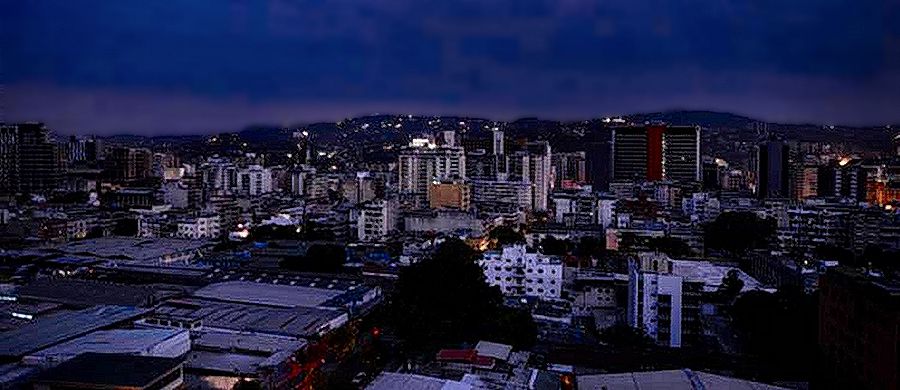 The power outage started in Caracas at 8:41 pm GMT affecting, among other things, water distribution, public transport services and telephone links. The power outage started in Caracas at 8:41 pm GMT affecting, among other things, water distribution, public transport services and telephone links.
"The first elements of the investigation in the region of Caroni (in southern Venezuela) suggest that it is an electromagnetic attack aimed at damaging the hydroelectric production system," said the Minister of Communication Jorge Rodríguez on television, promising that the national electricity system would be back in service "as soon as possible".
Later, it is the turn of President Nicolas Maduro to denounce on Twitter a "new criminal attack".
" Corruption "
"They try to hide the scale of the tragedy by rationing the whole country, but the failure is obvious: they destroyed the electrical system and have no solutions," responded on Twitter the Leader of the Opposition Juan Guaido, Speaker of the Parliament.
The latter proclaimed himself as interim president of Venezuela in January and is recognized as such by some fifty countries headed by the United States. The Venezuelan opposition generally puts the power outages on the account of "negligence" and "corruption" within the government of Nicolas Maduro.
Tense context with the United States
This breakdown occurs in a tense diplomatic context with the United States, which Caracas accused Monday of having violated its airspace with a "spy plane".
The day before, US military officials had denounced the fact that a Venezuelan fighter aircraft approached Friday very close to a US aircraft, in an "aggressive" and "dangerous" way, over the Caribbean Sea , describing the maneuver as "unprofessional".
Other "blackouts" plunged Venezuela into the dark this year, a first beginning of March and a second at the end of the same month, crippling, again, the country for a week.
The national electricity company Corpoelec has meanwhile simply indicated that a failure affects several sectors of the capital.
|
|
|
|
|
|
|
|
| Alyson Braxton for DayNewsWorld |
 |
|
|